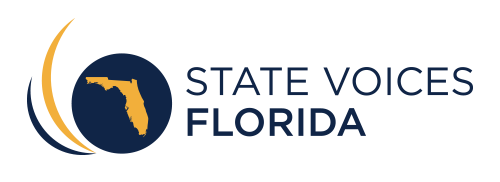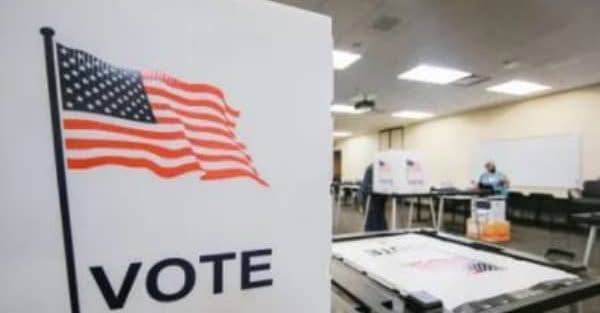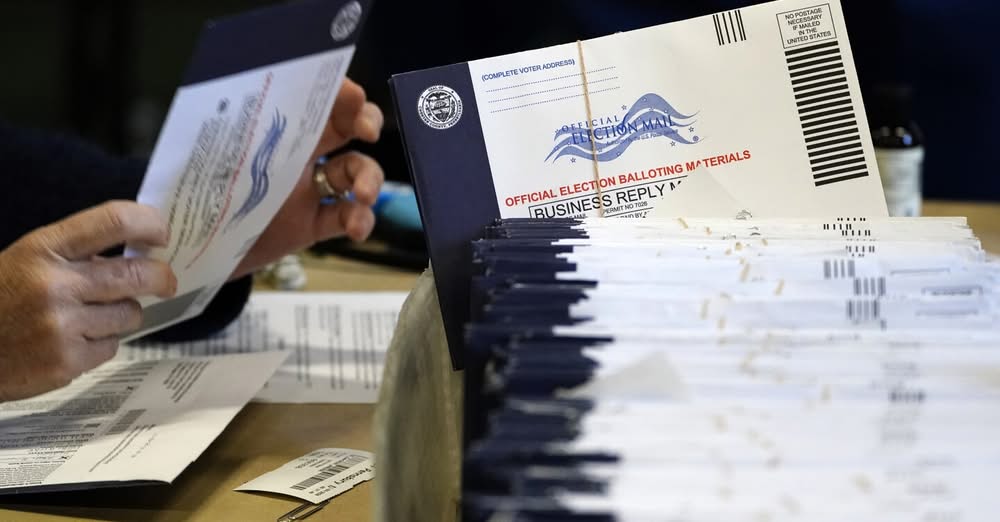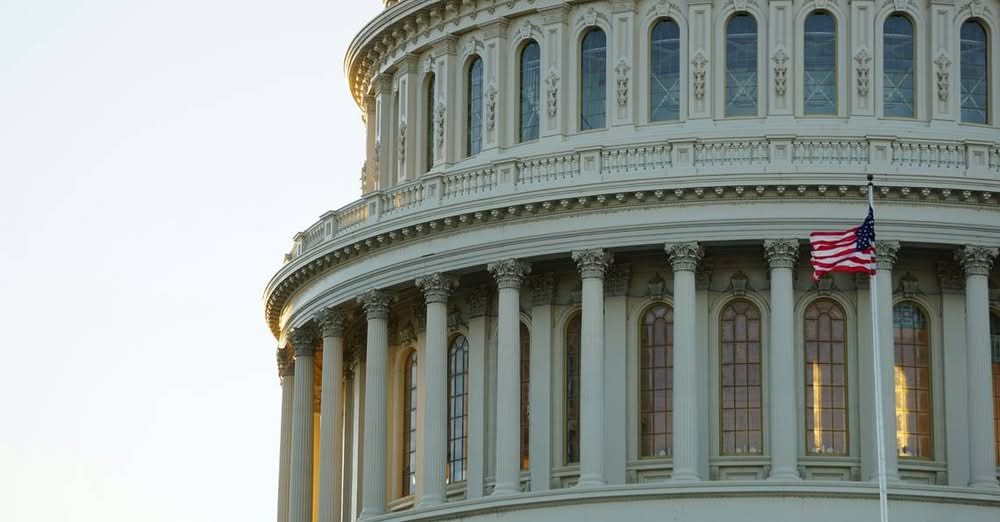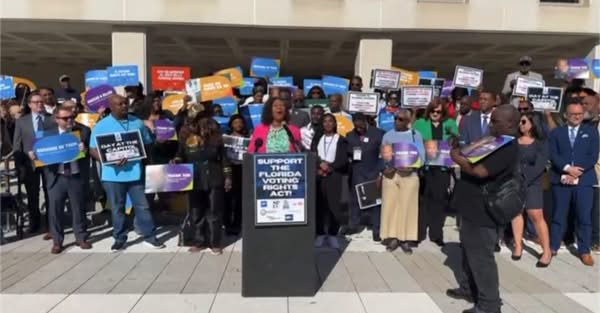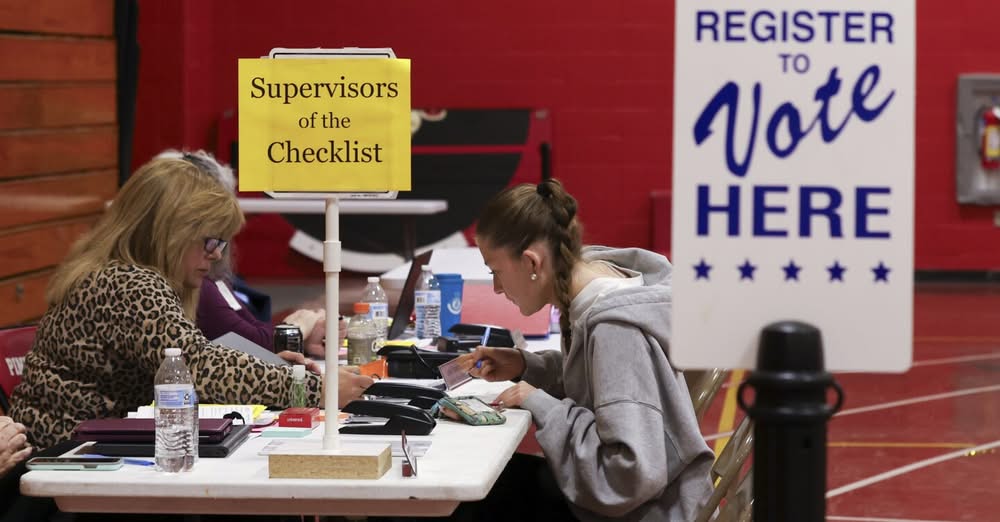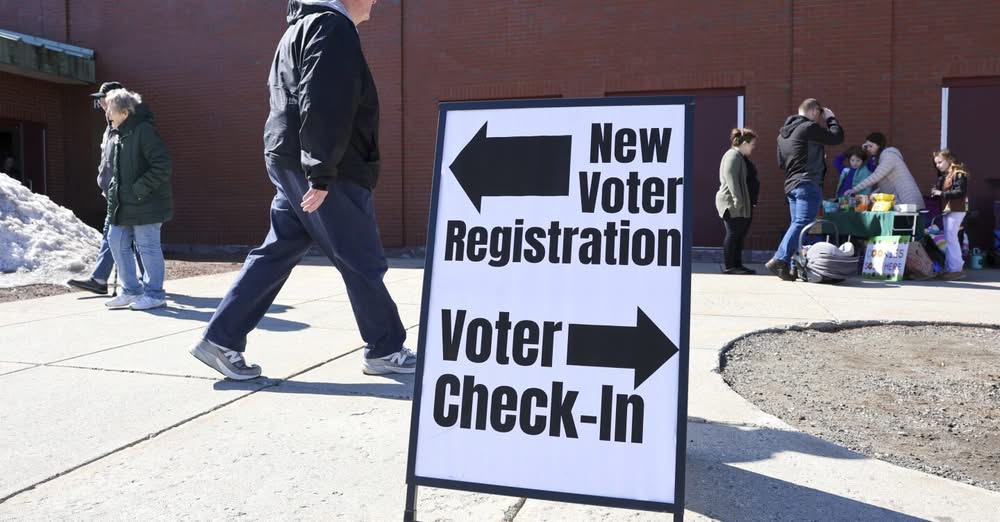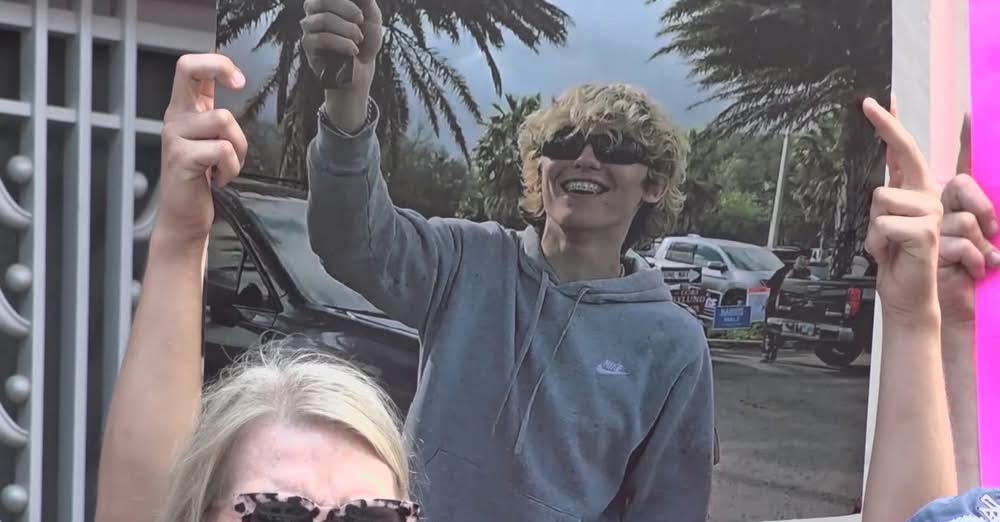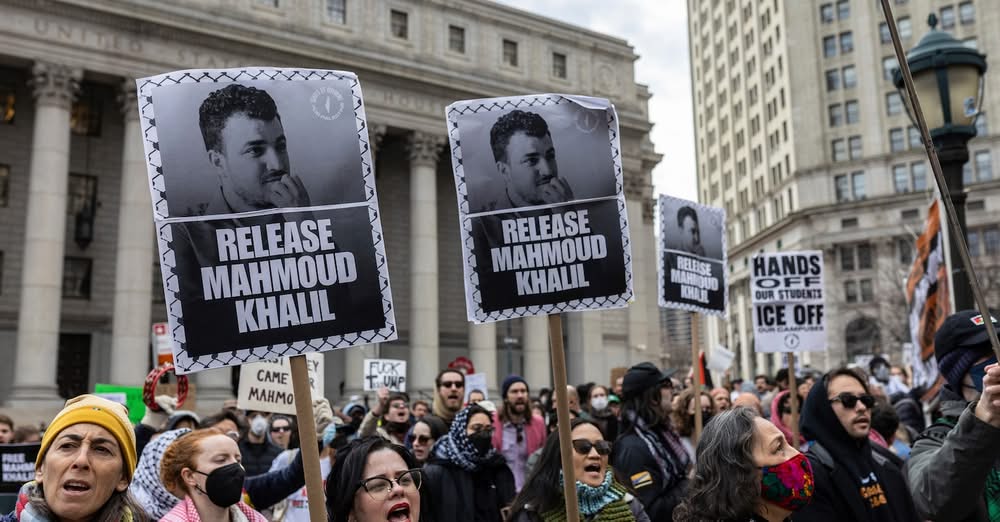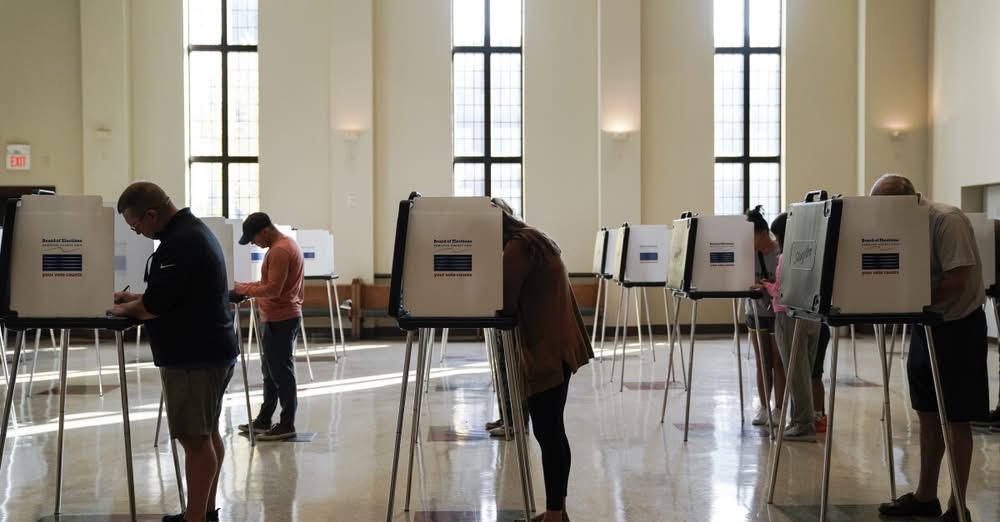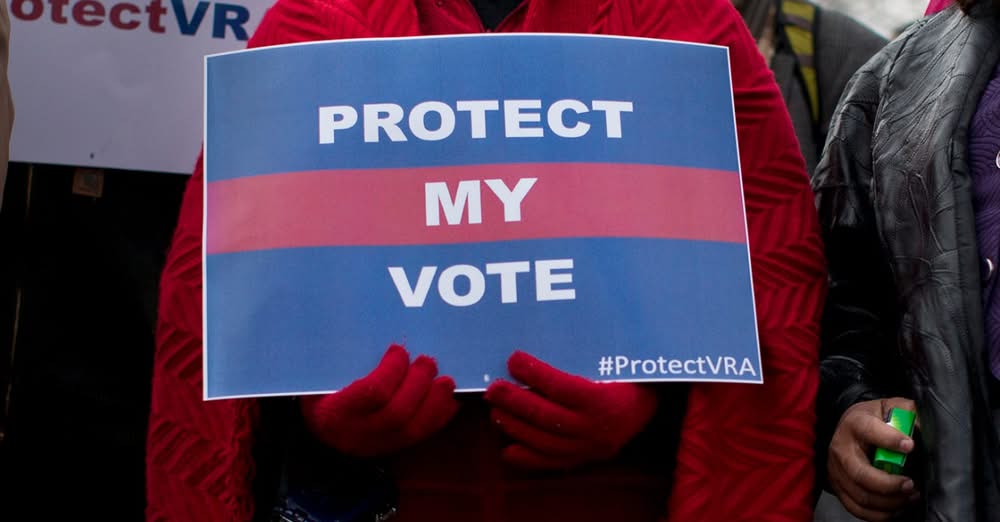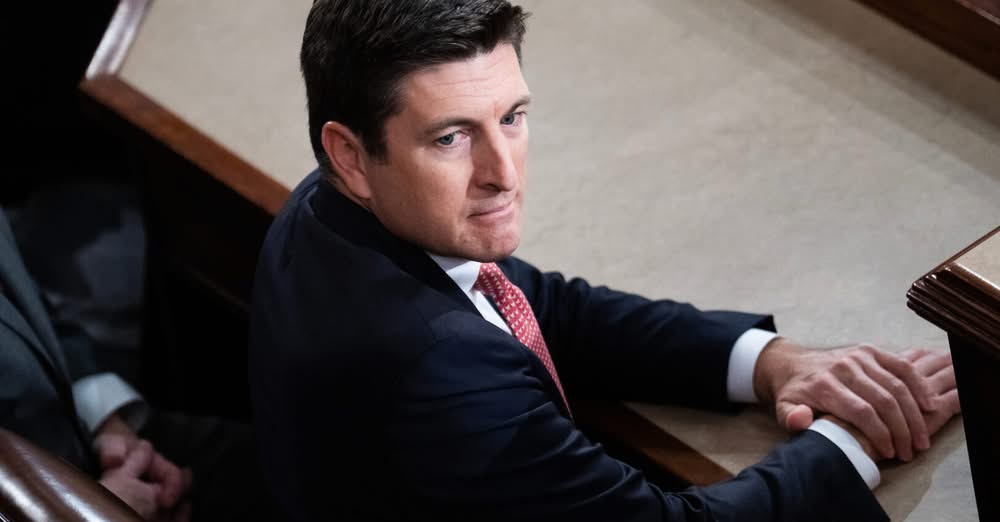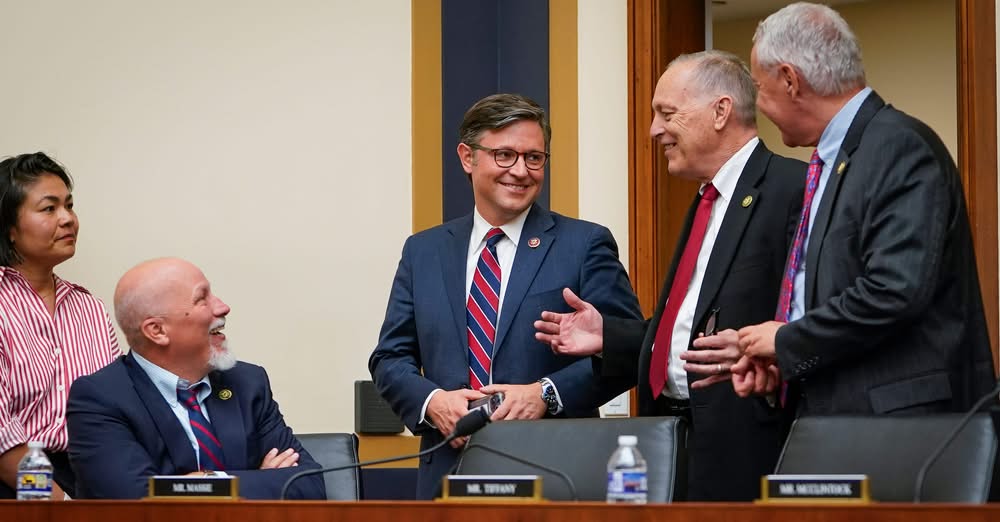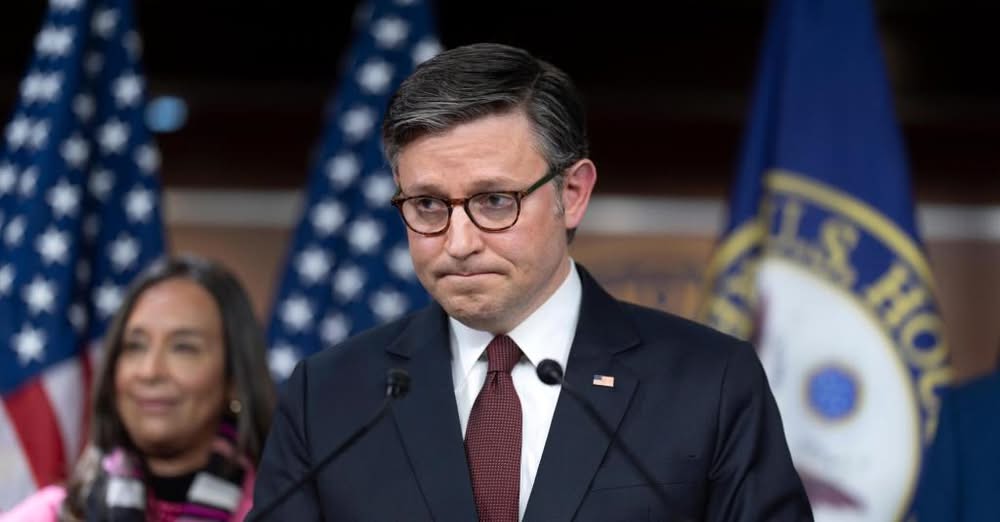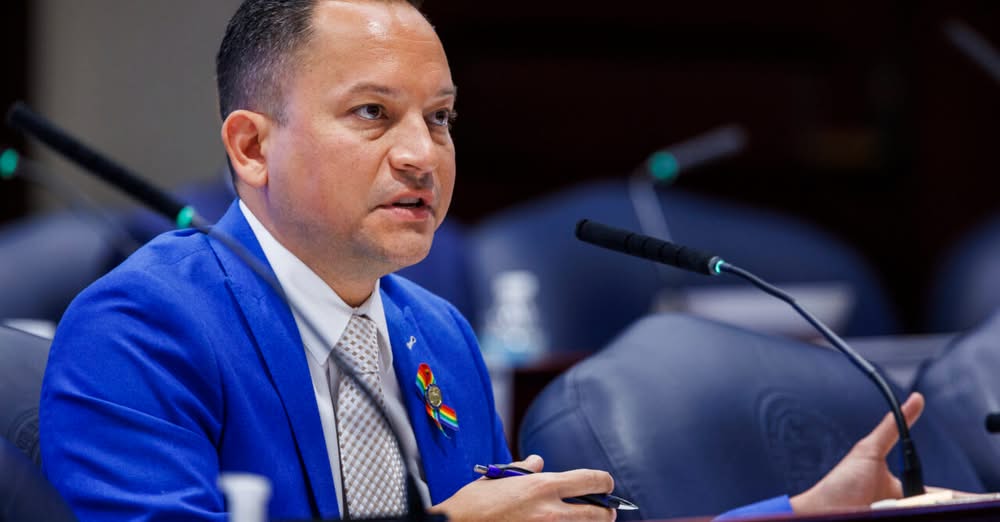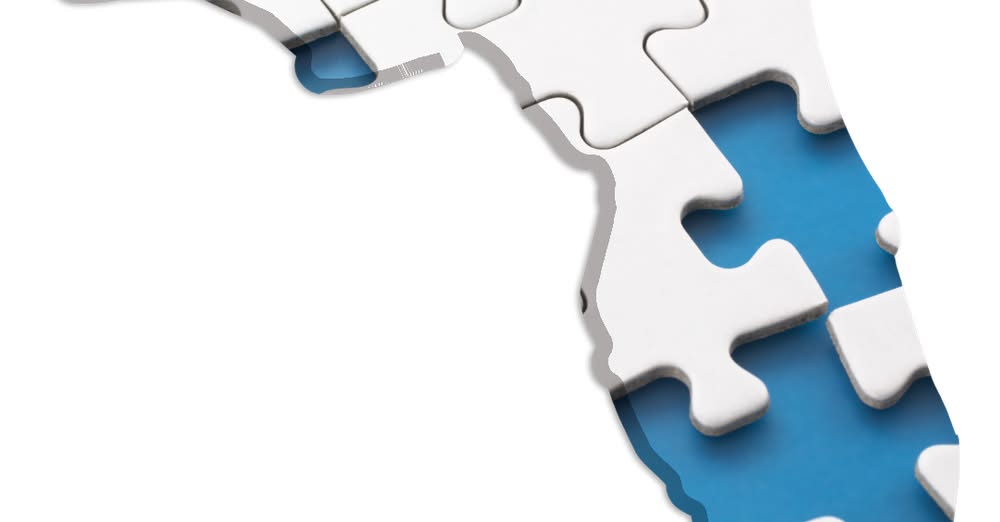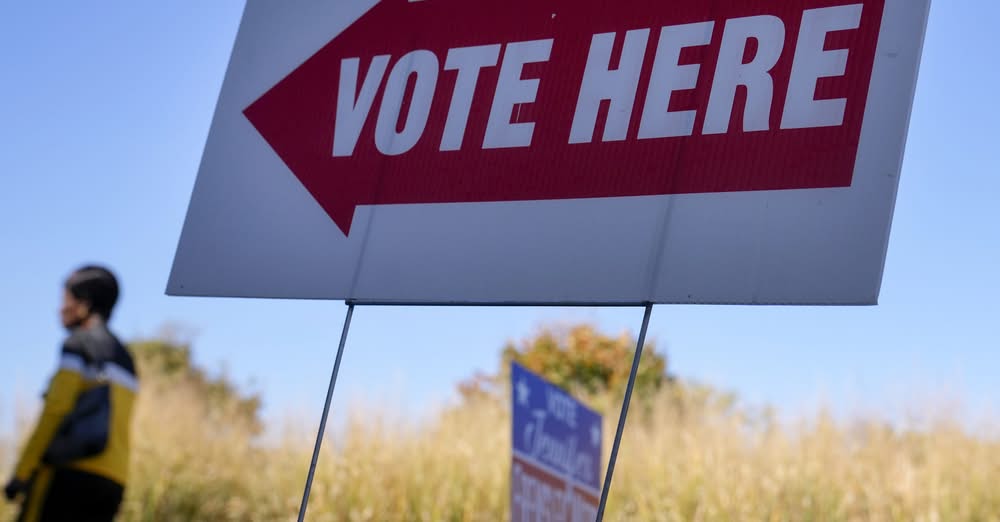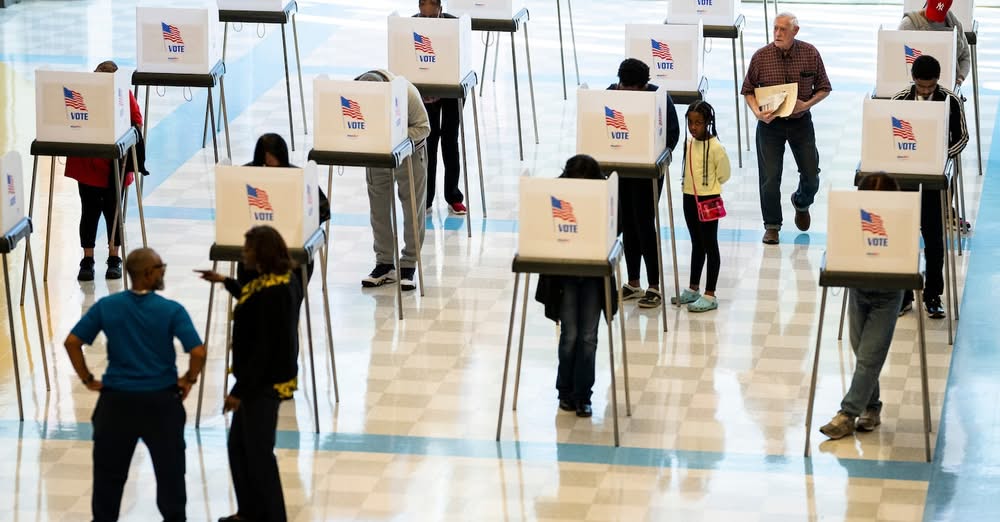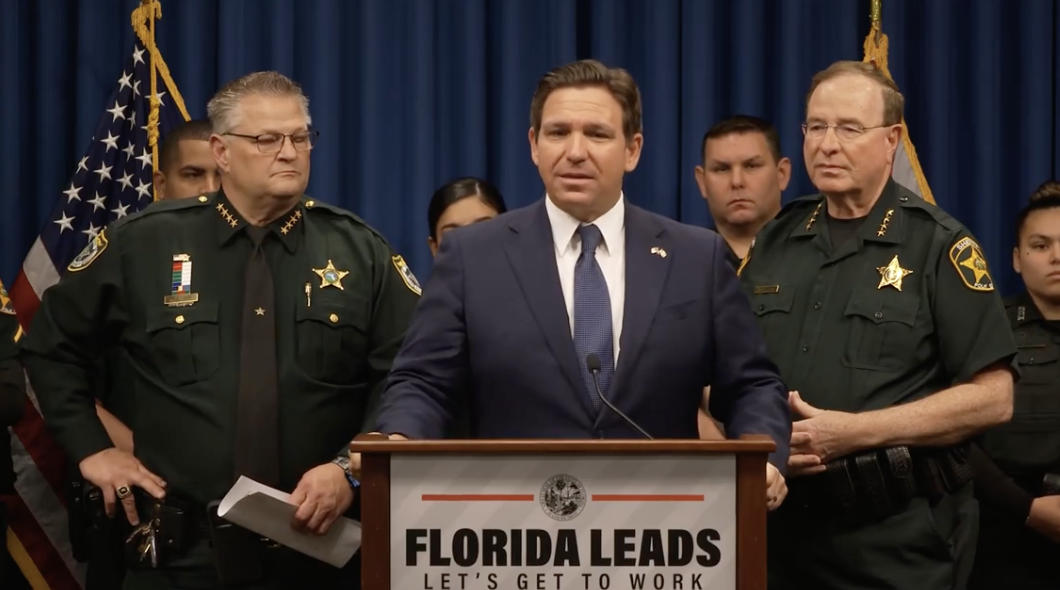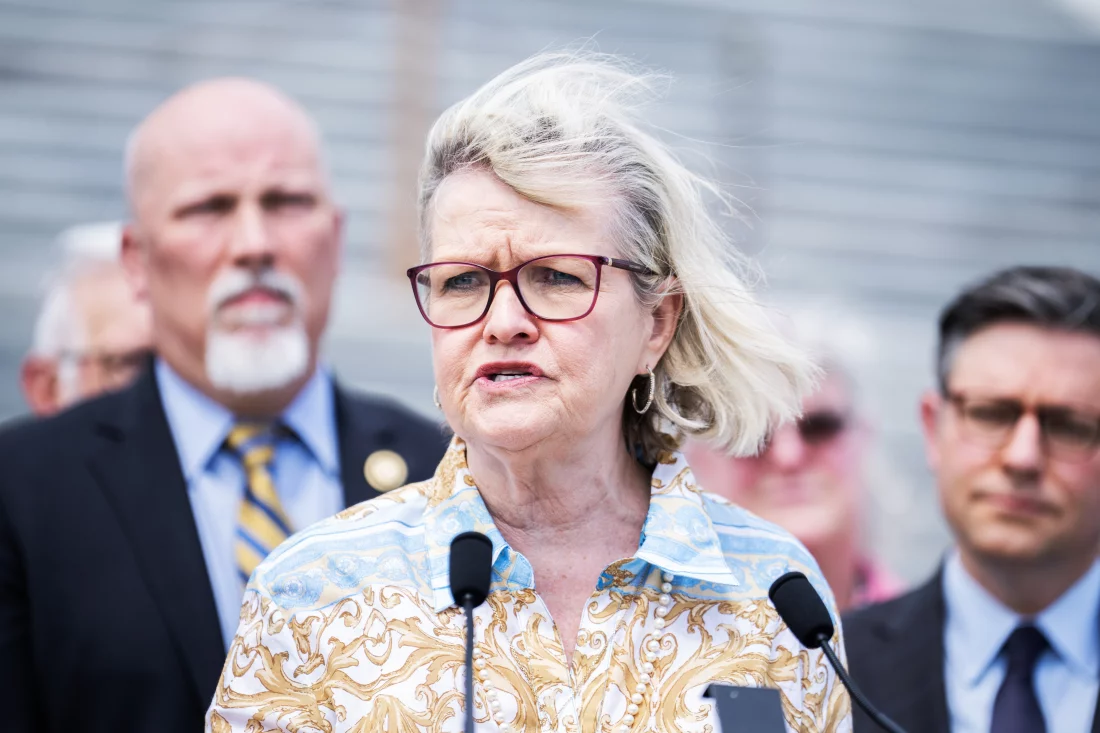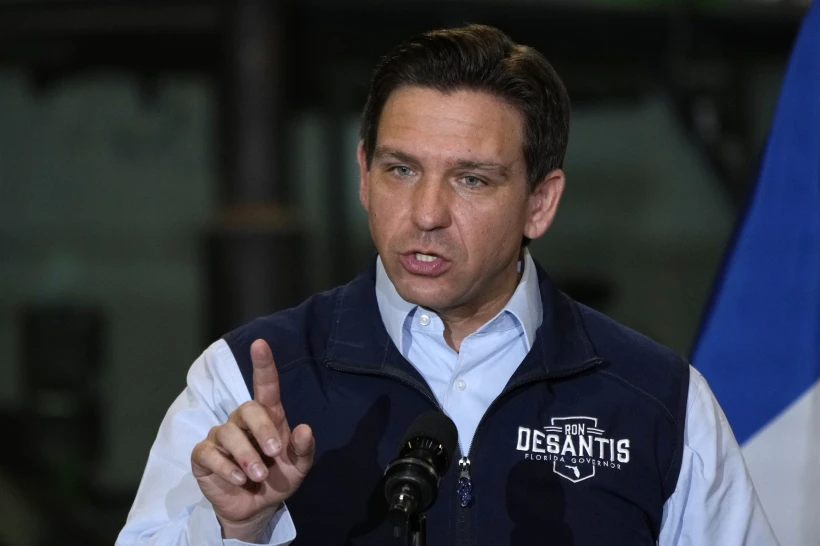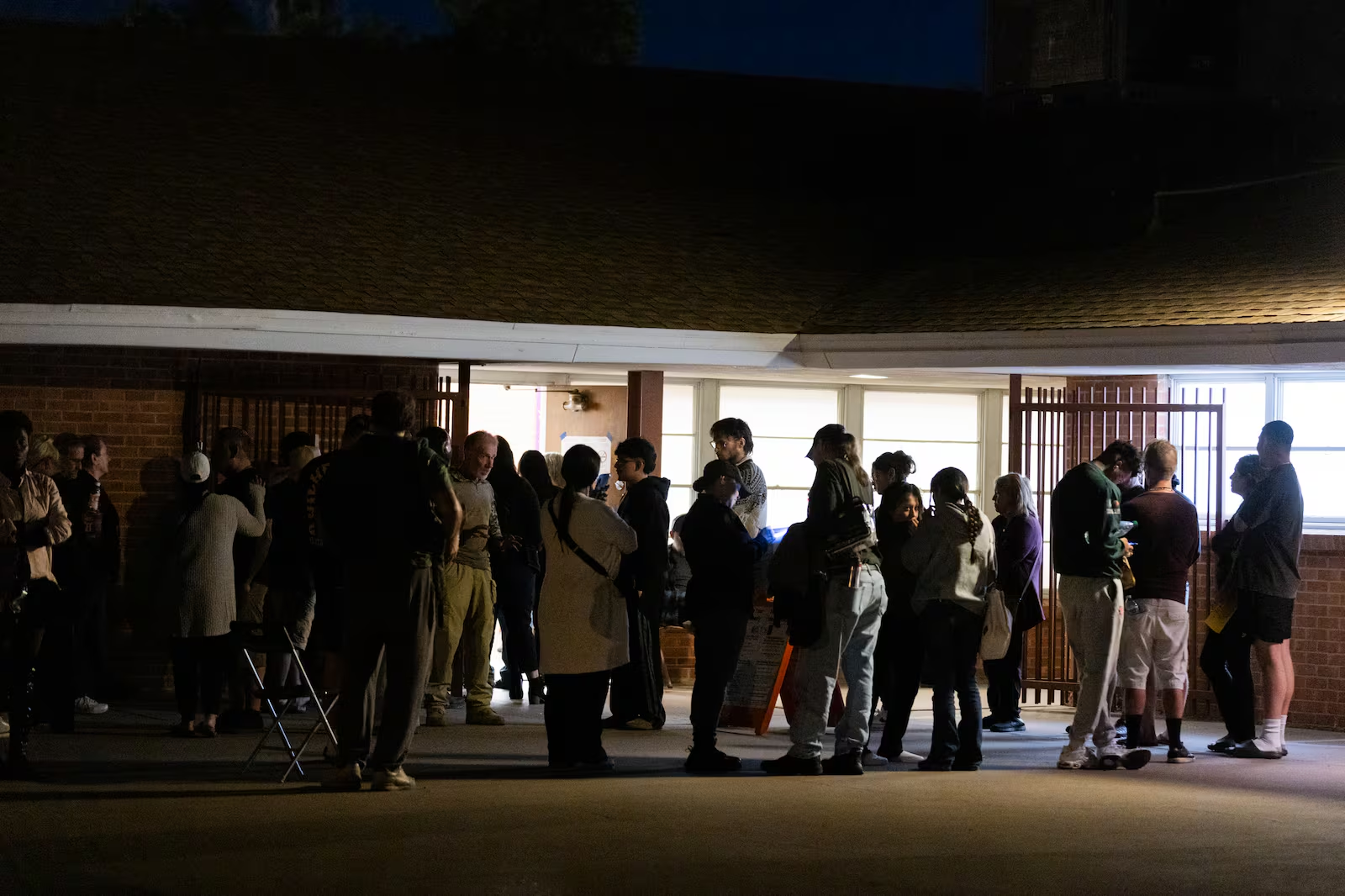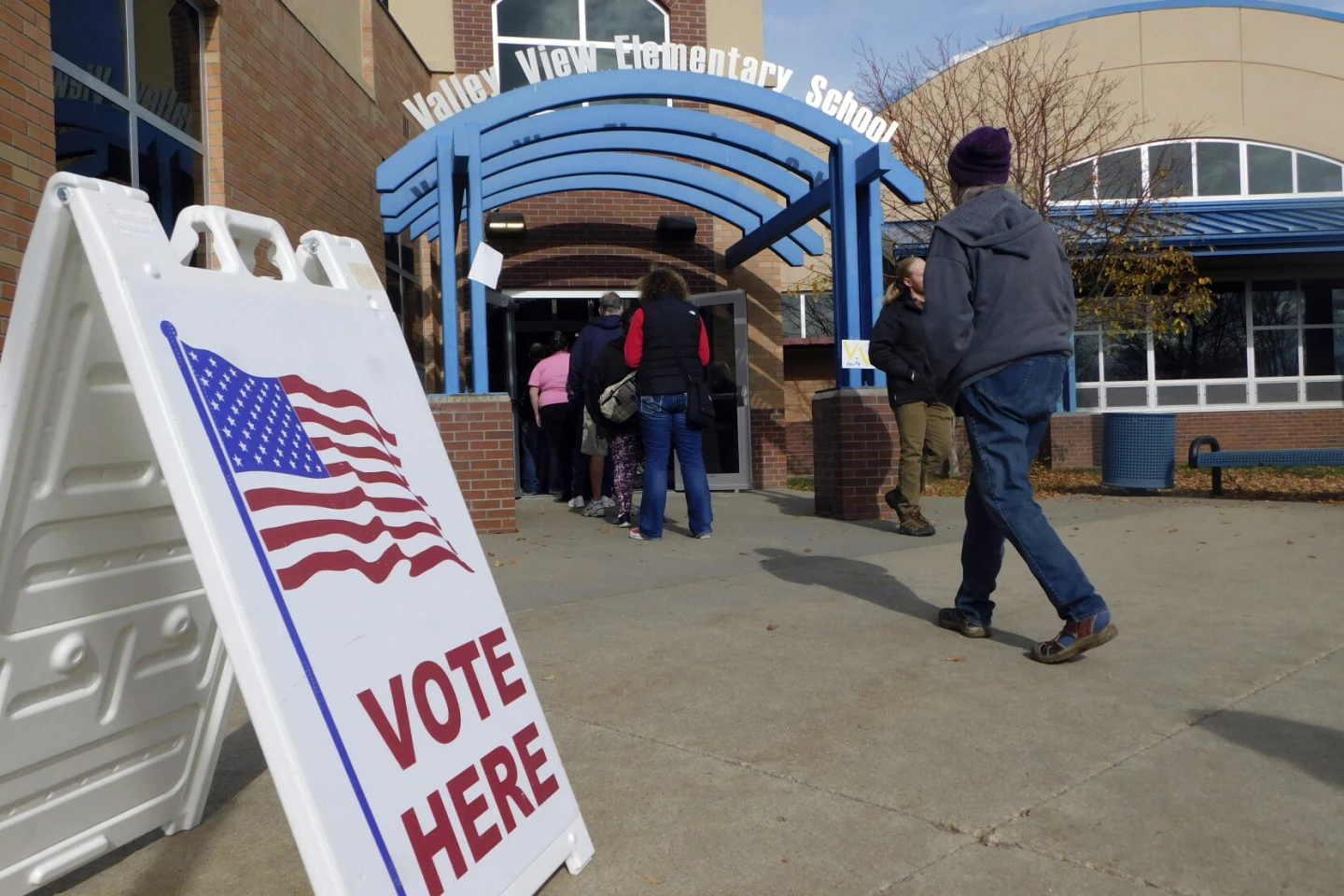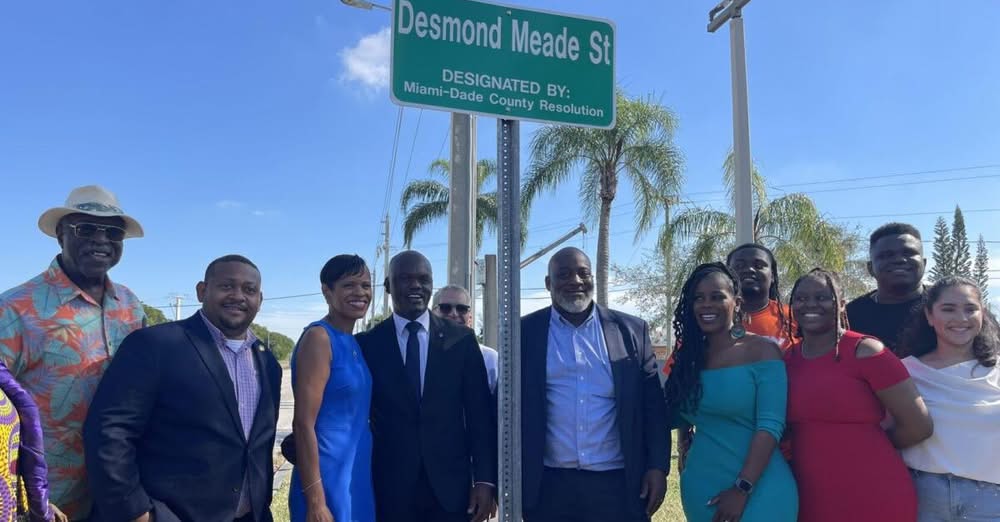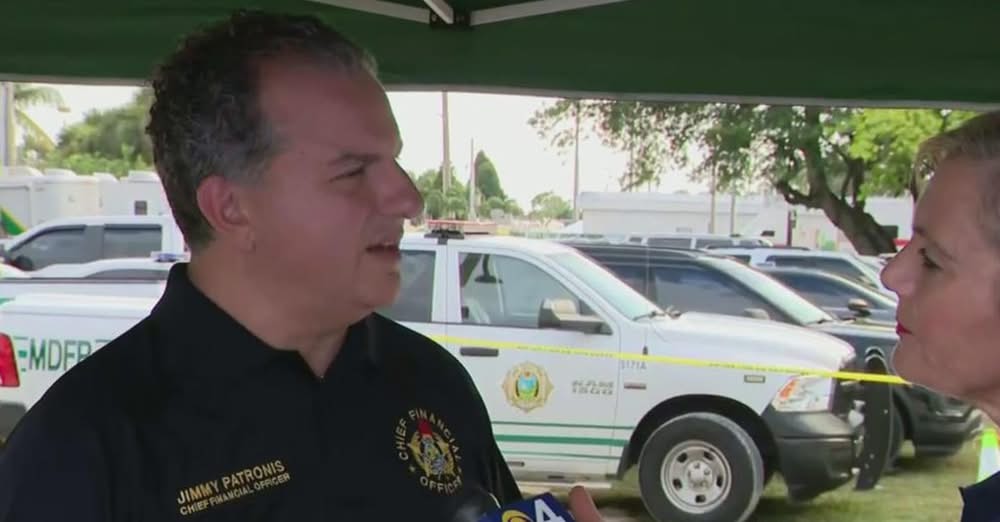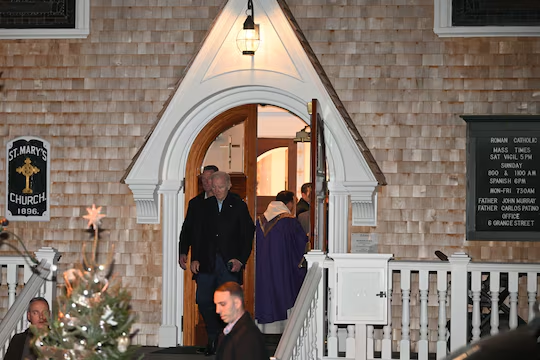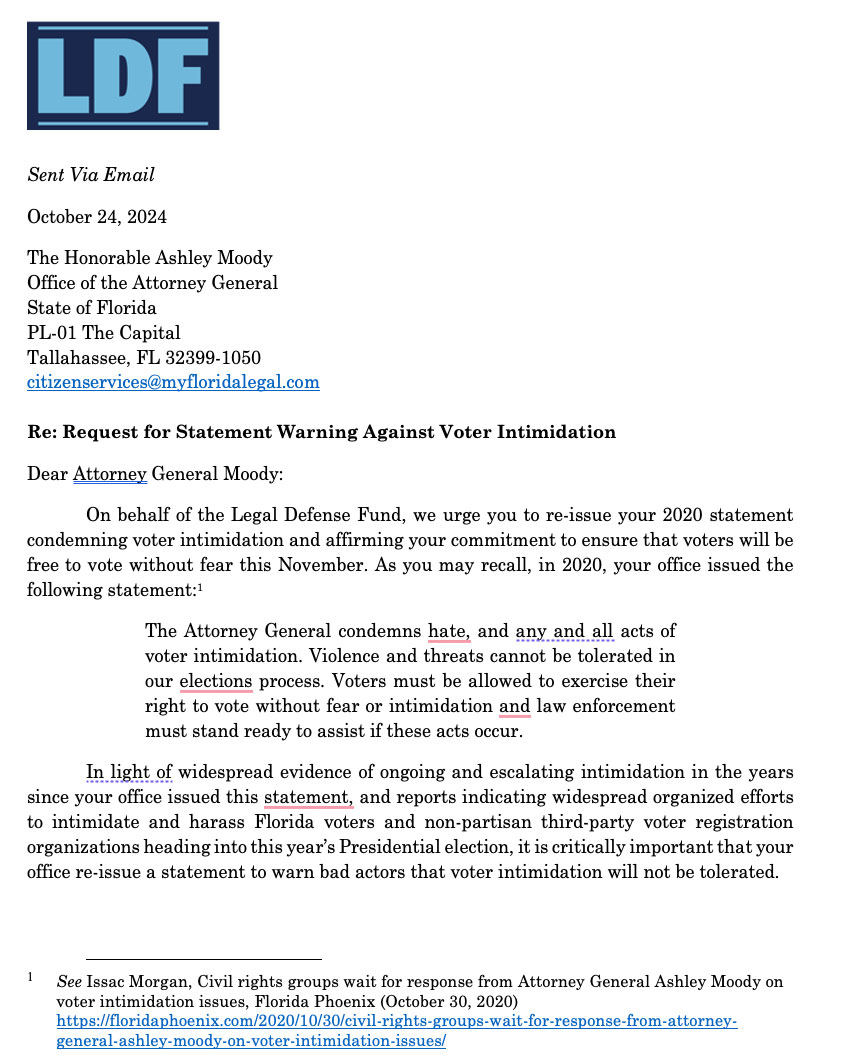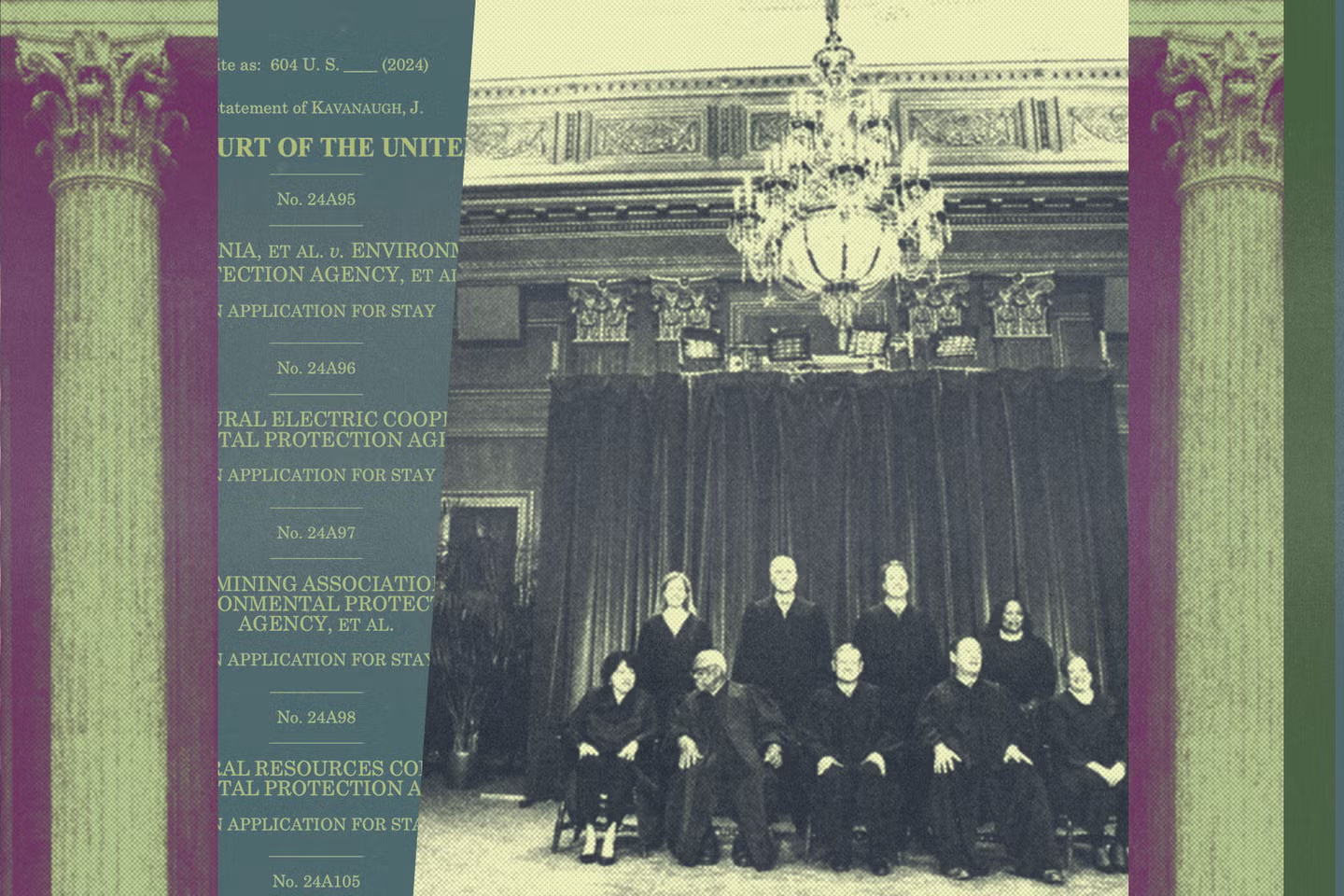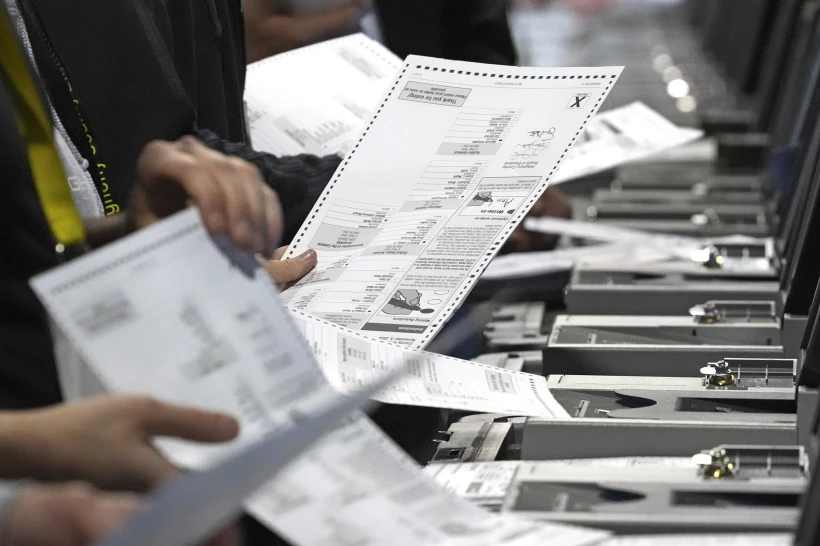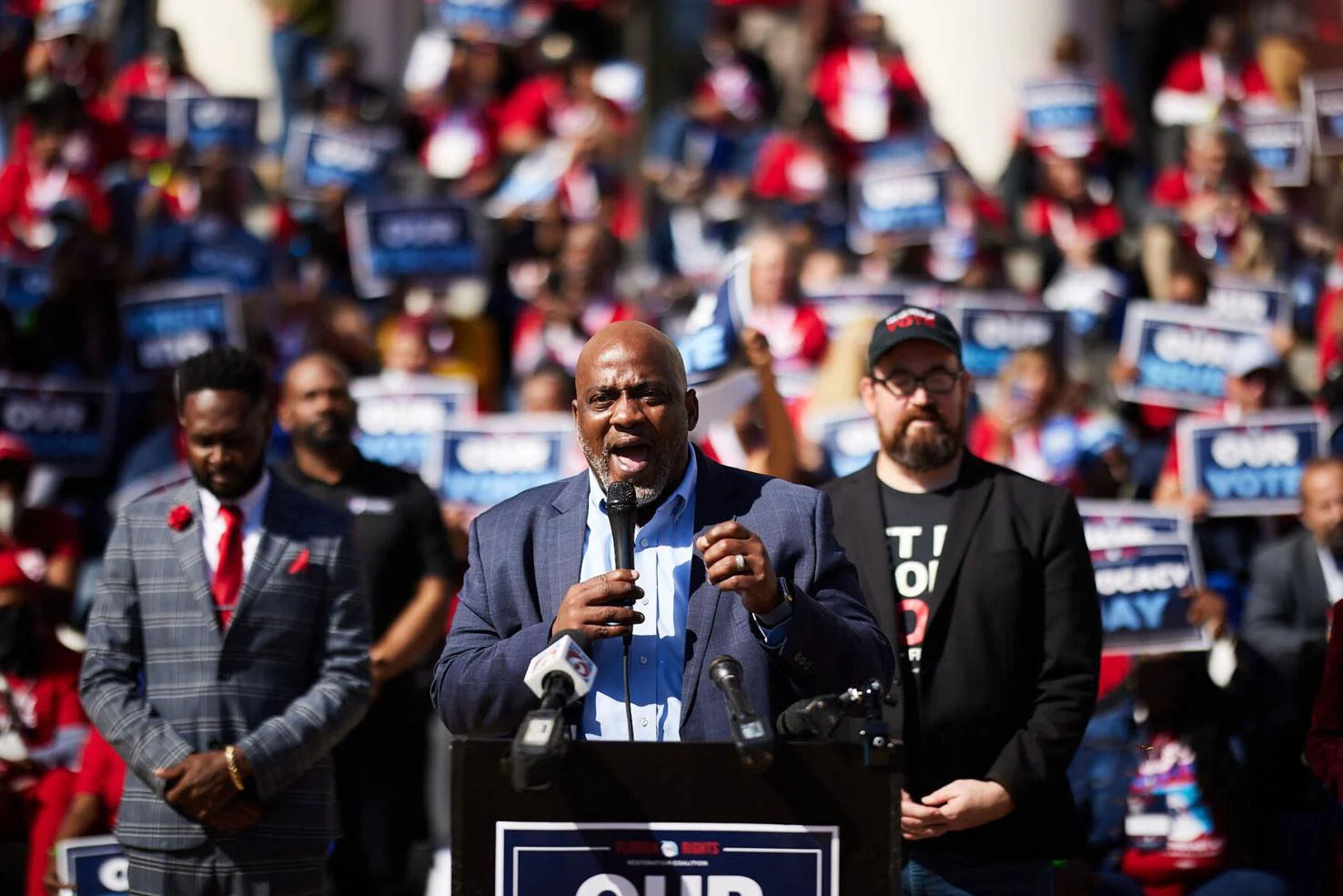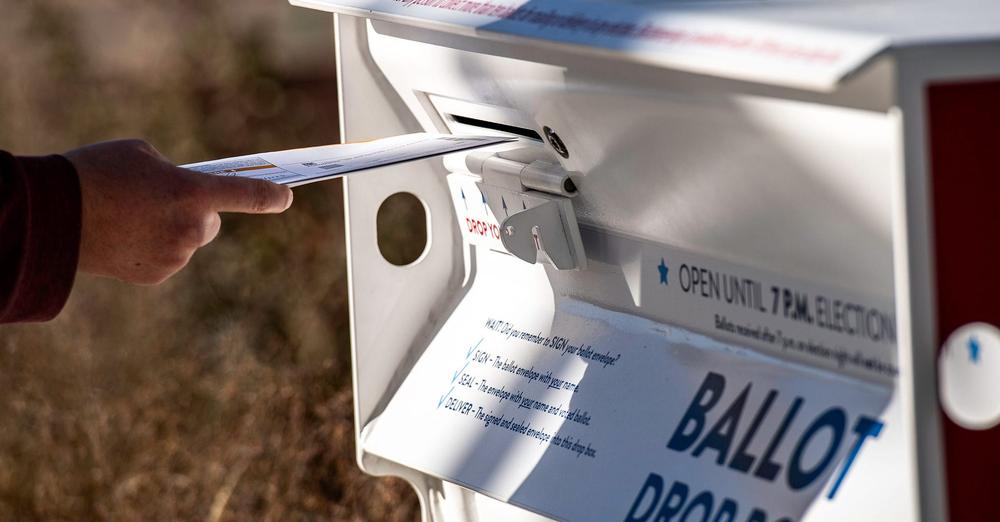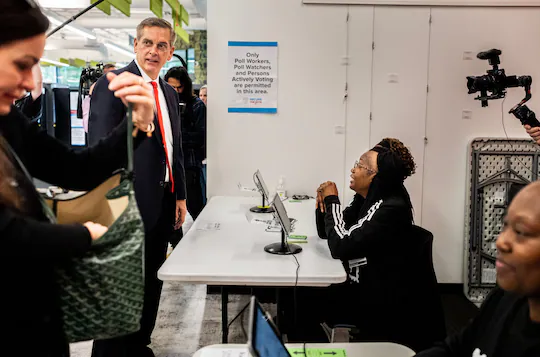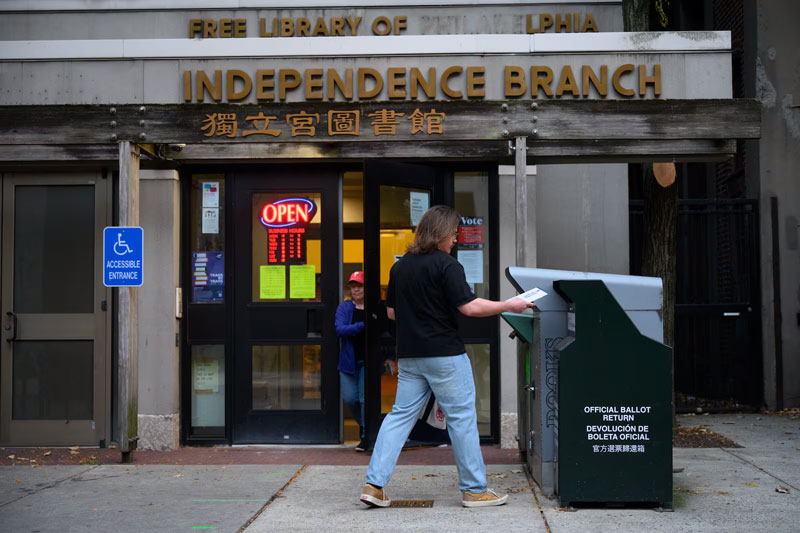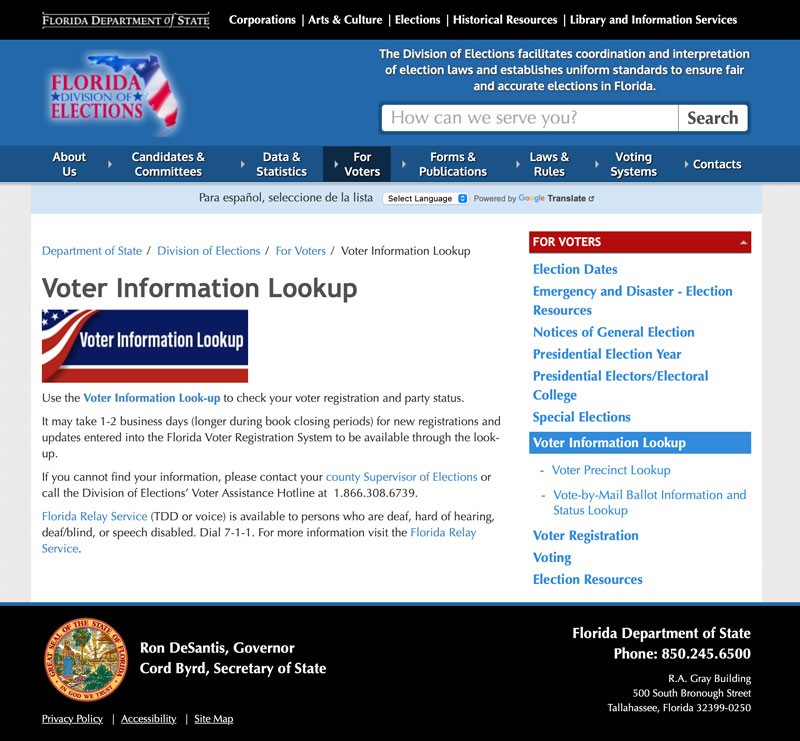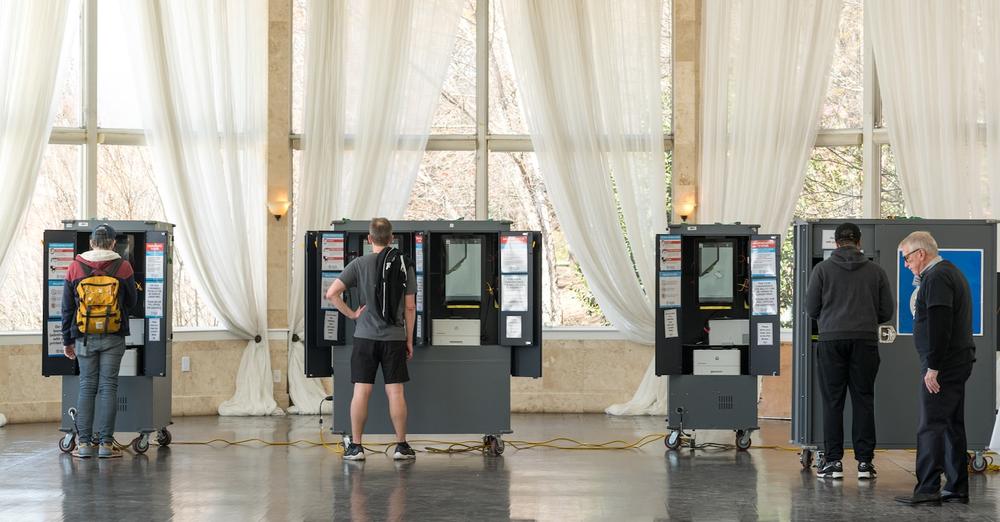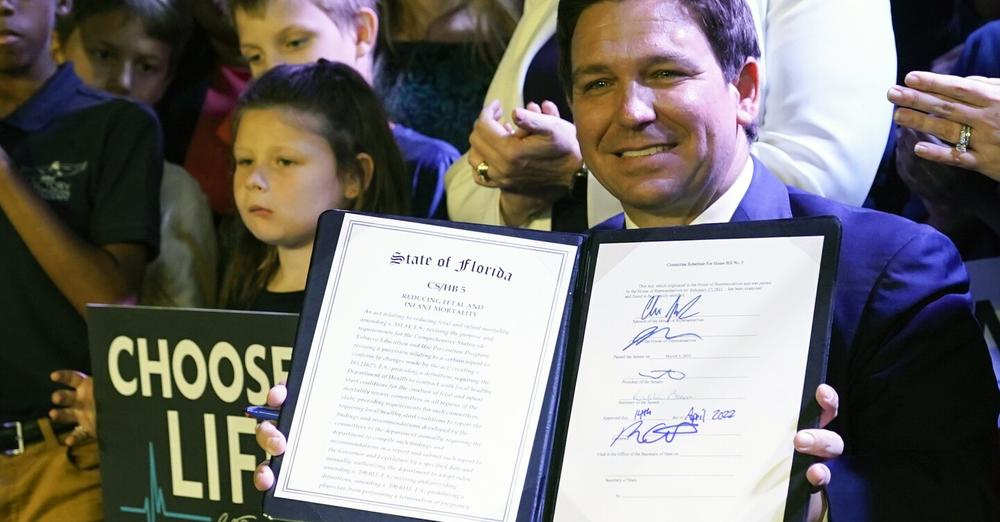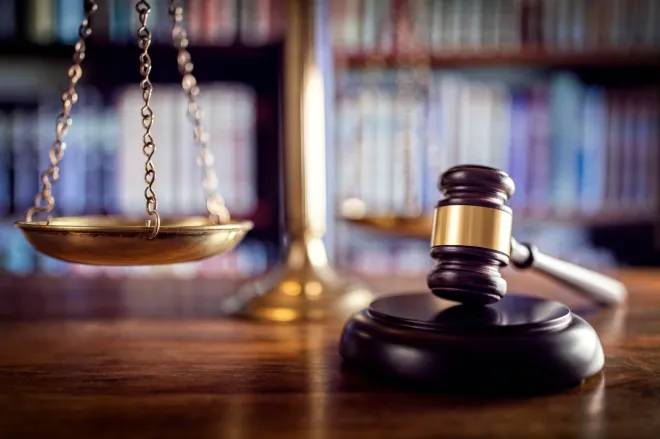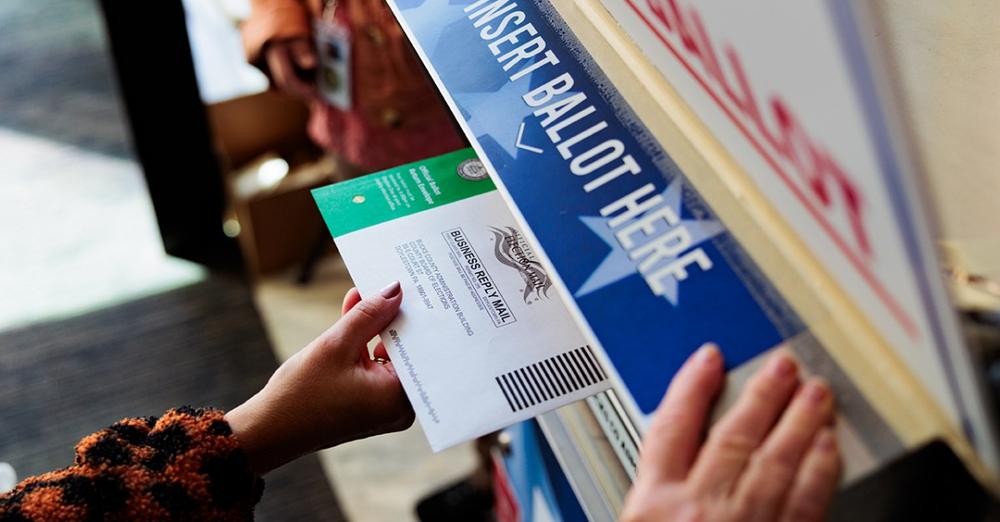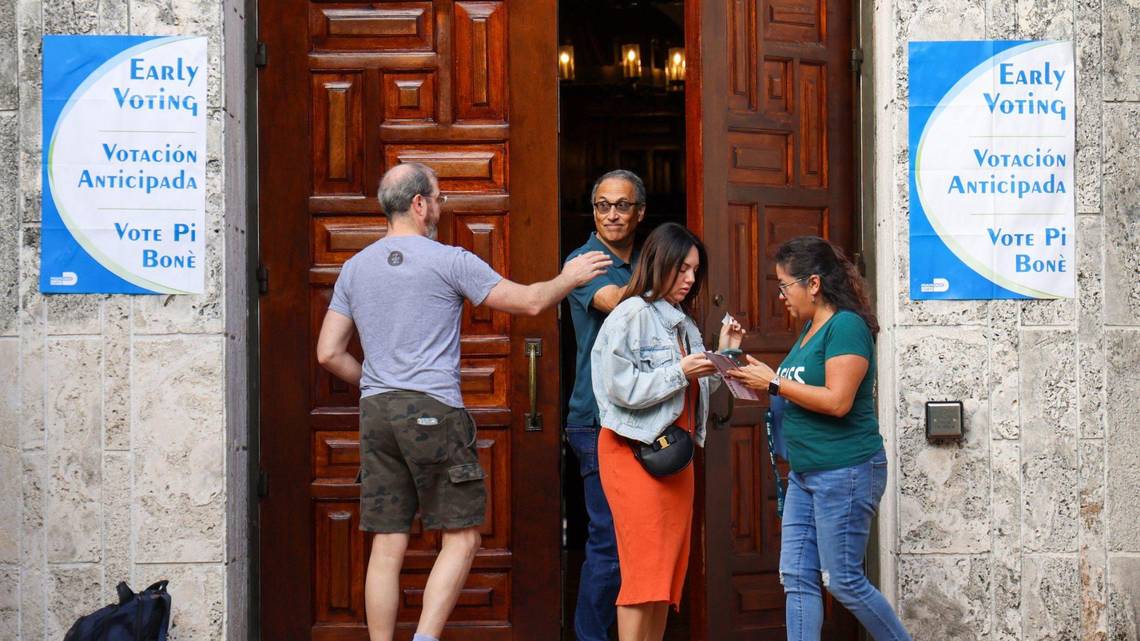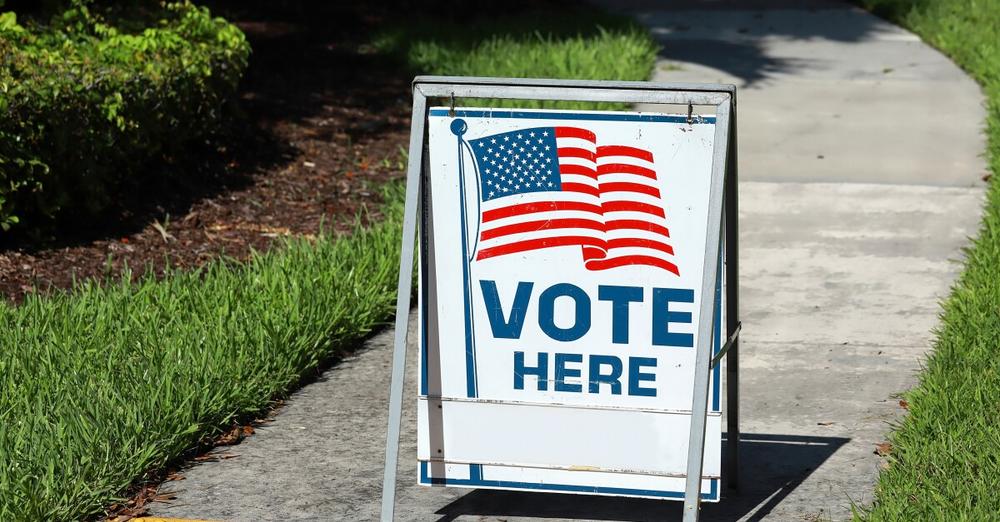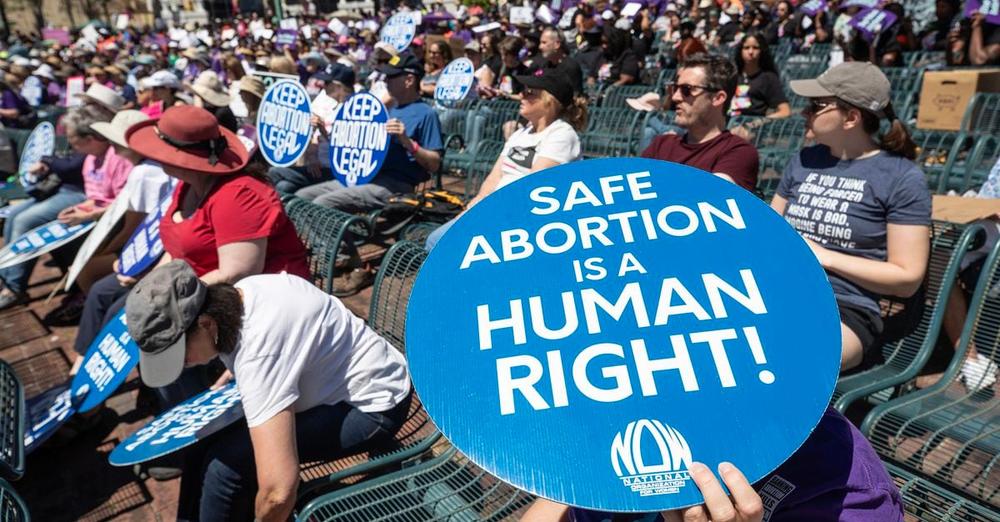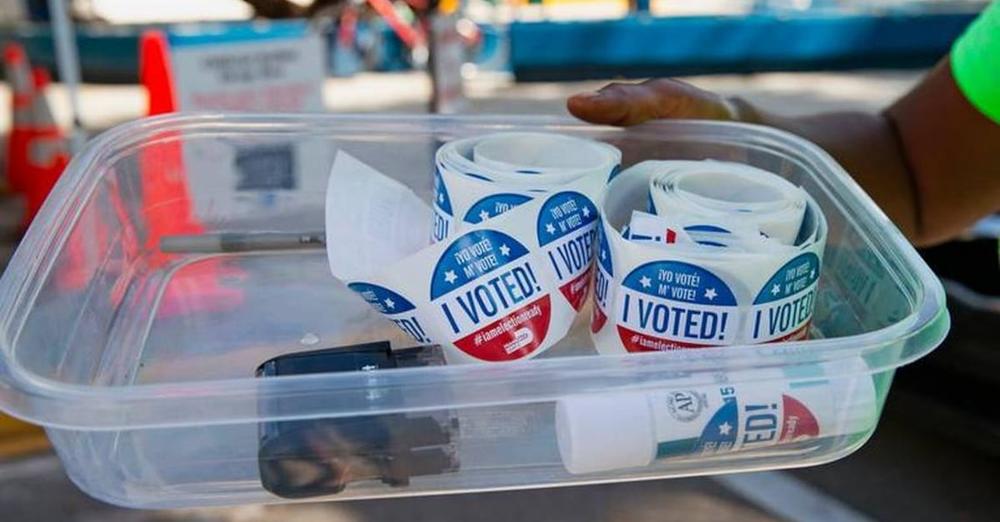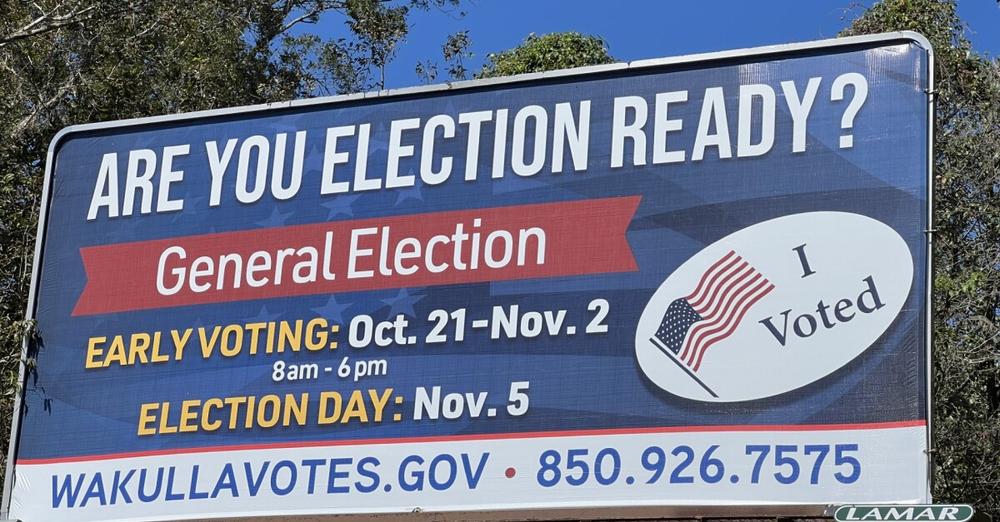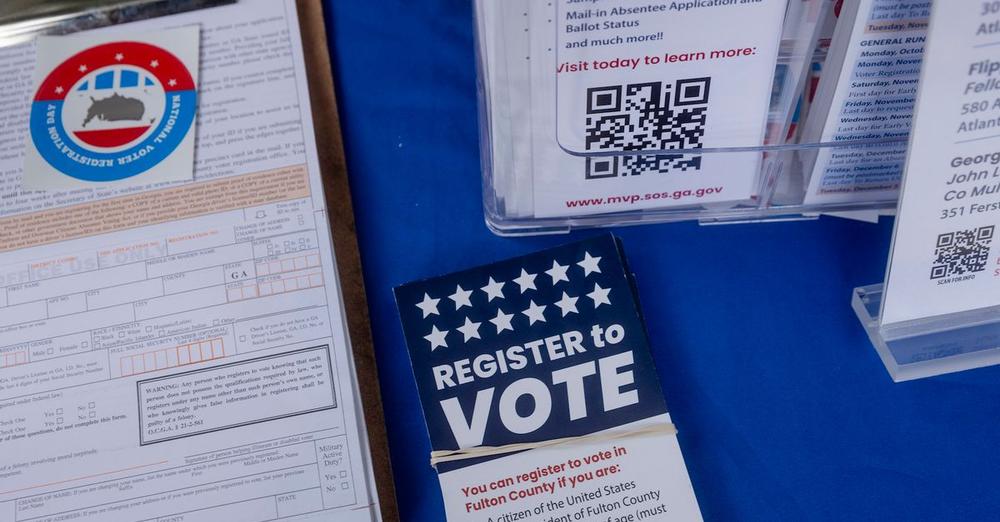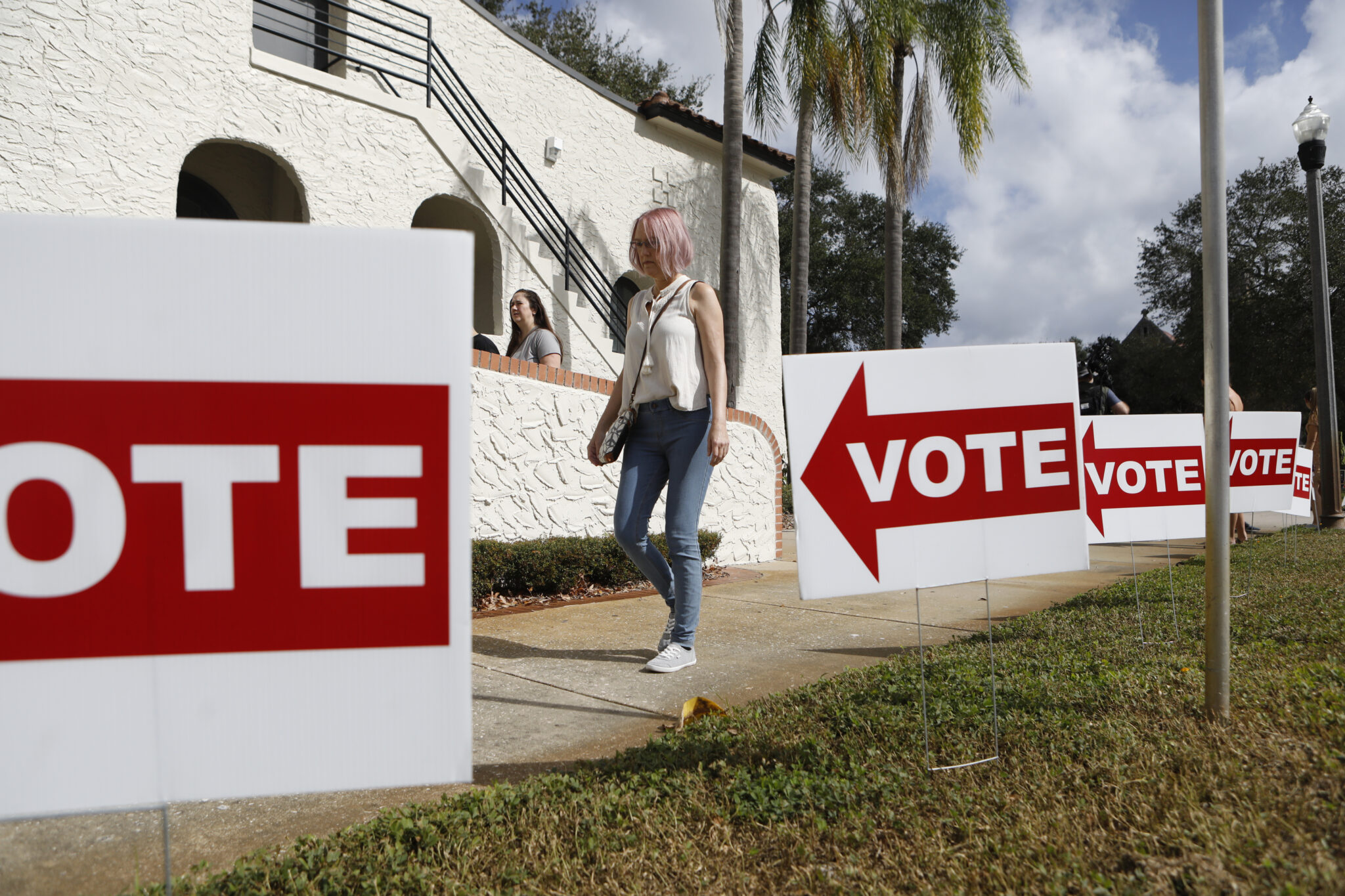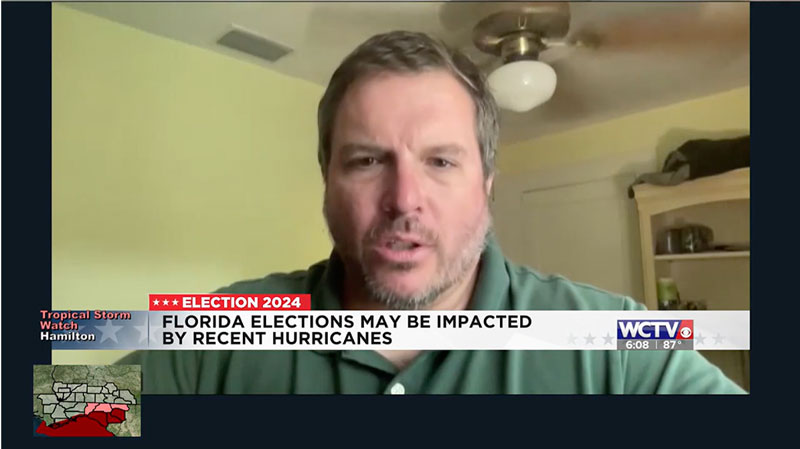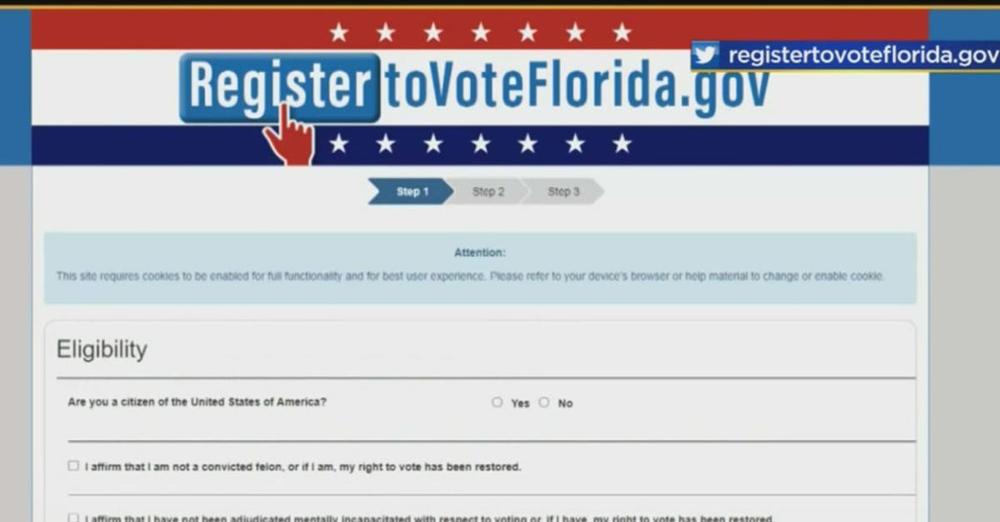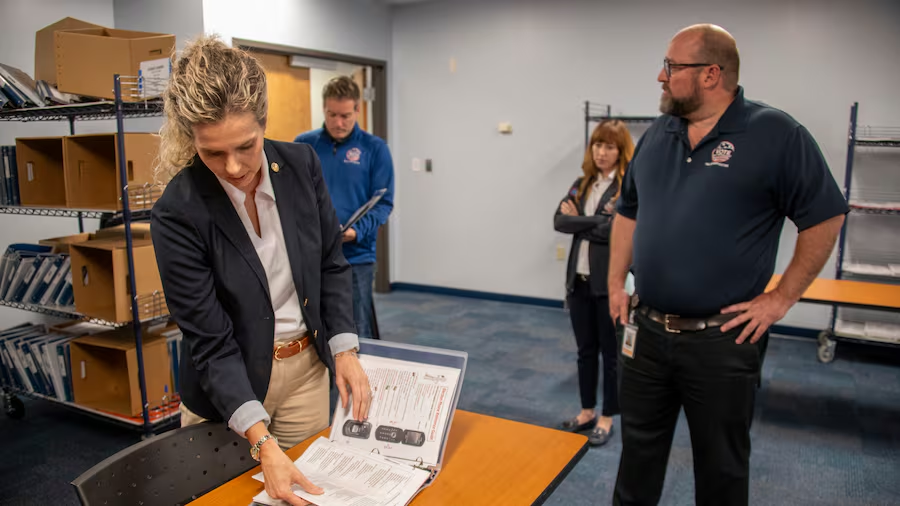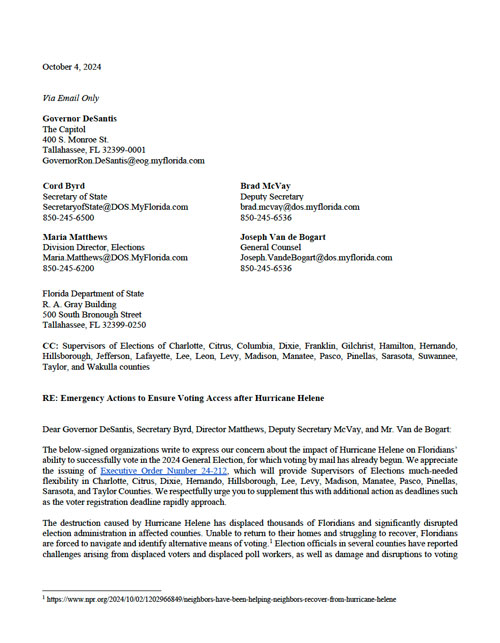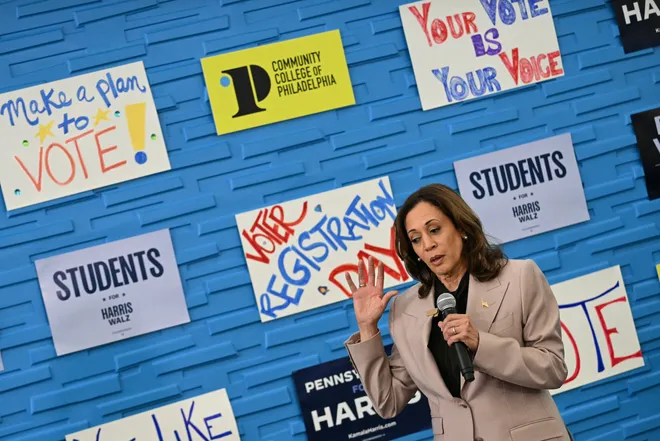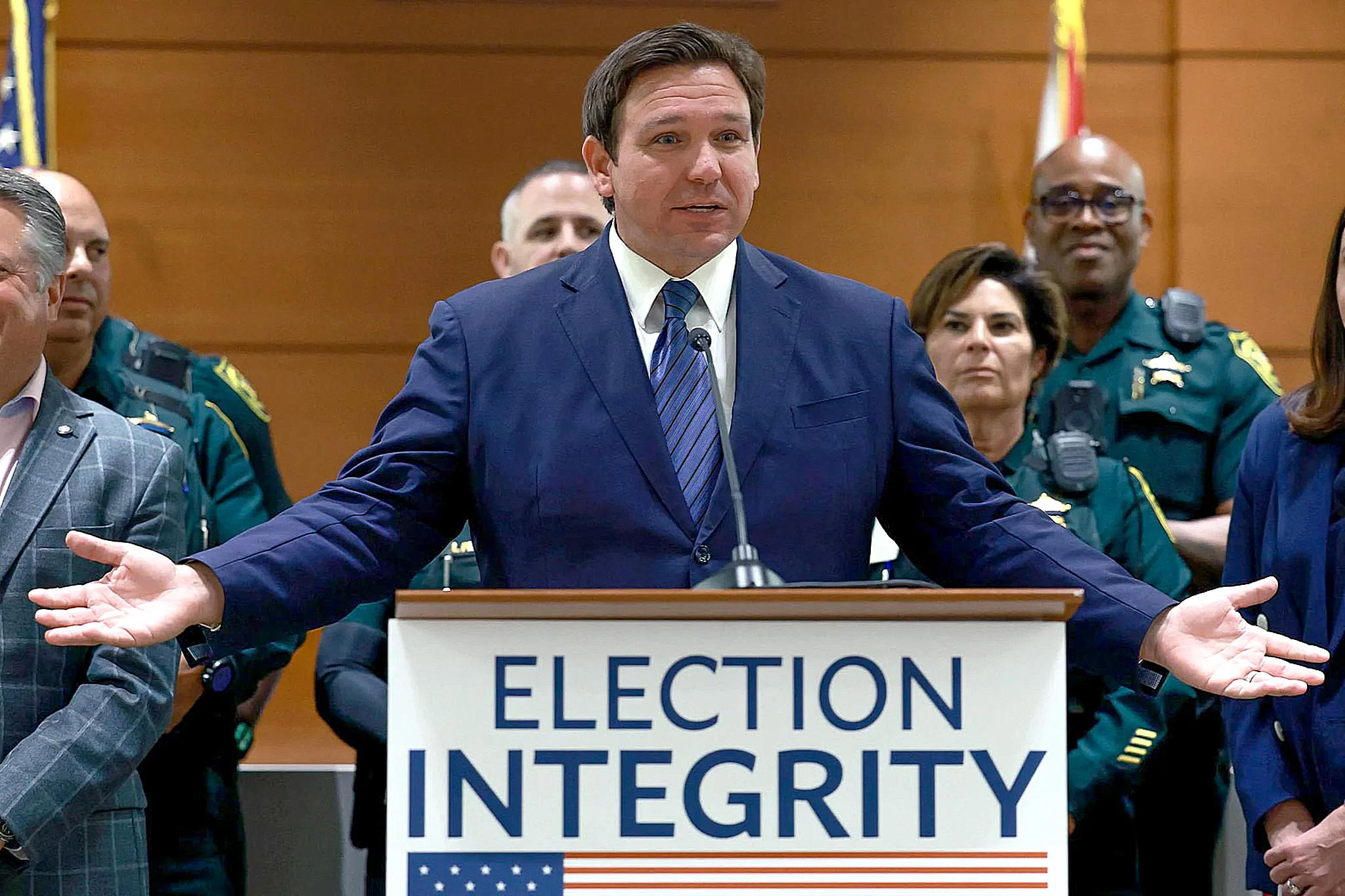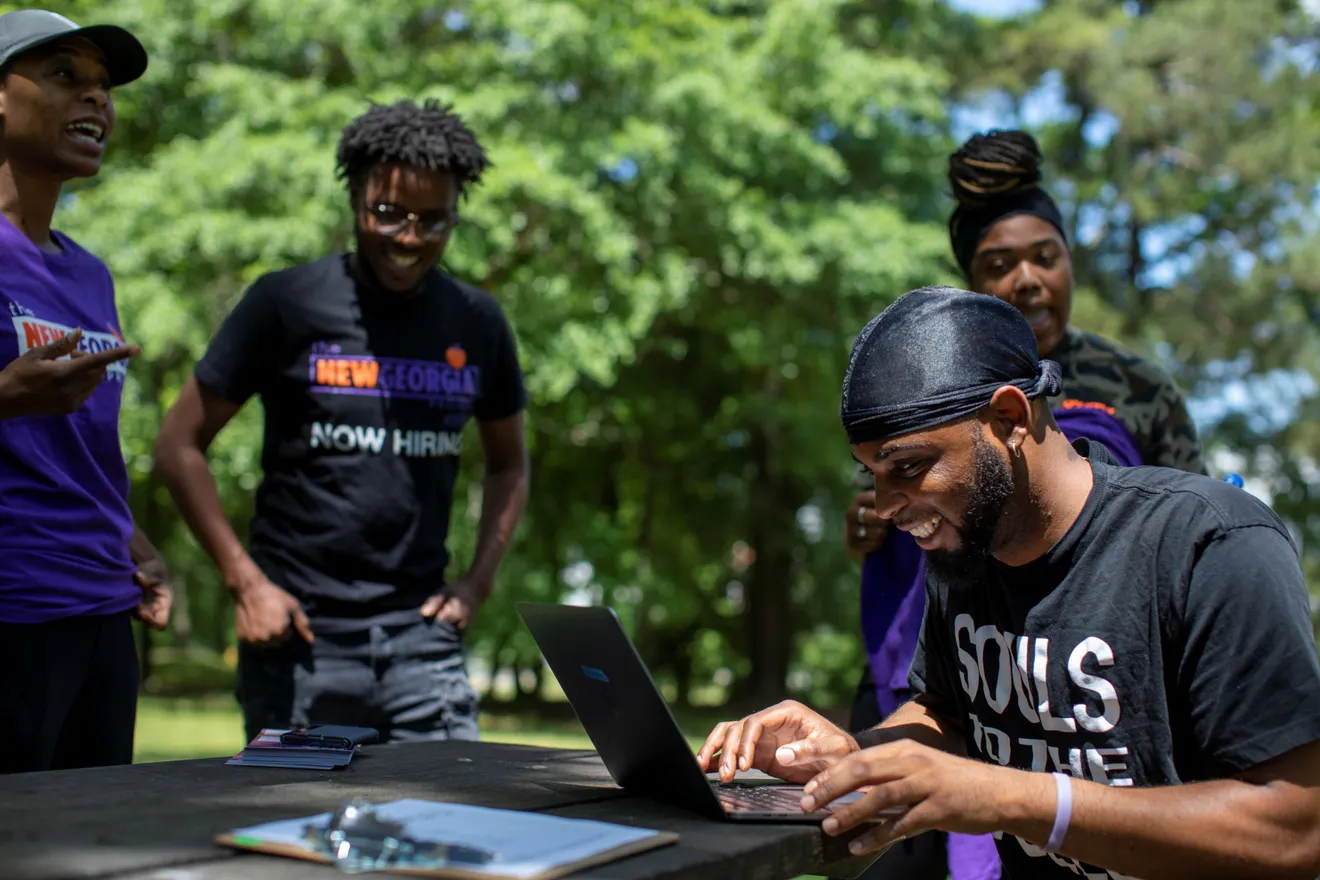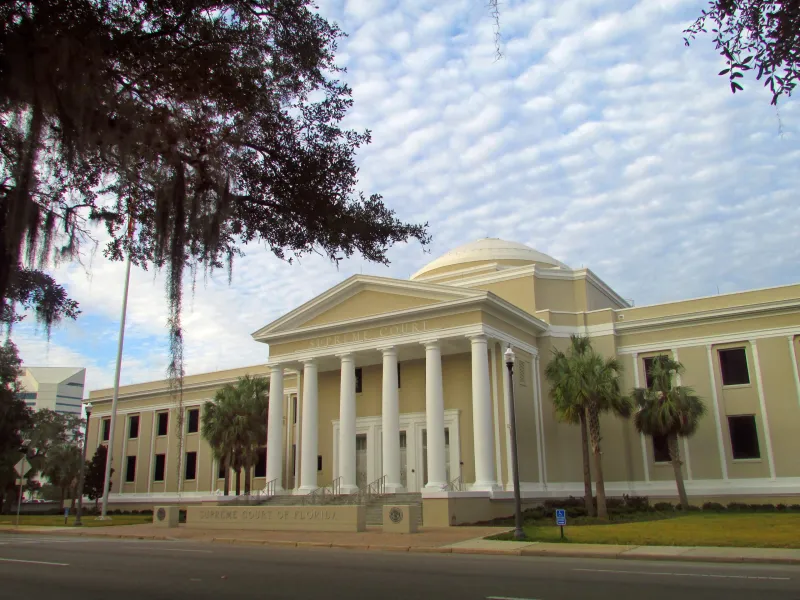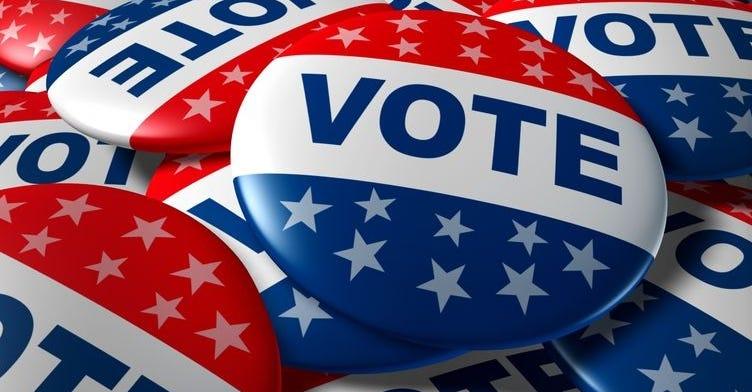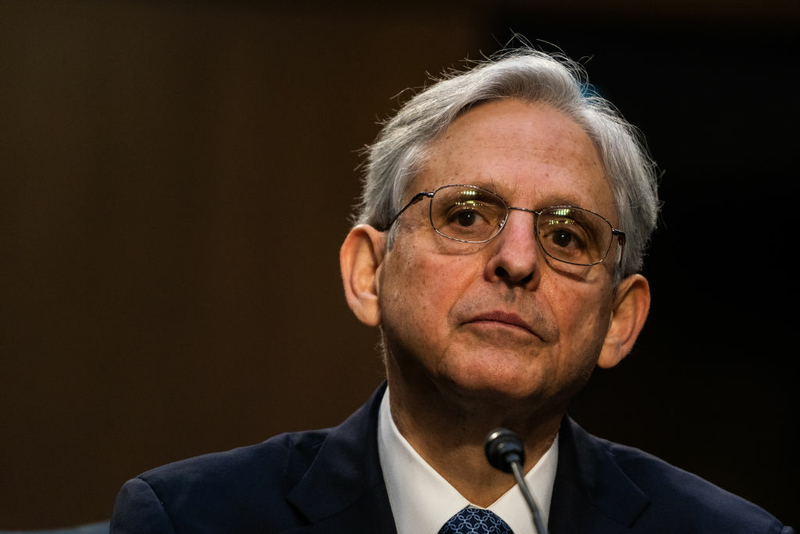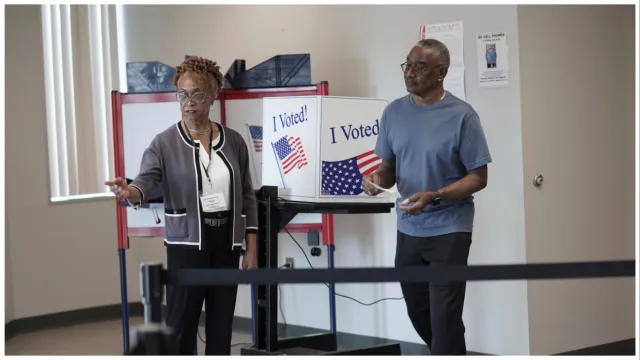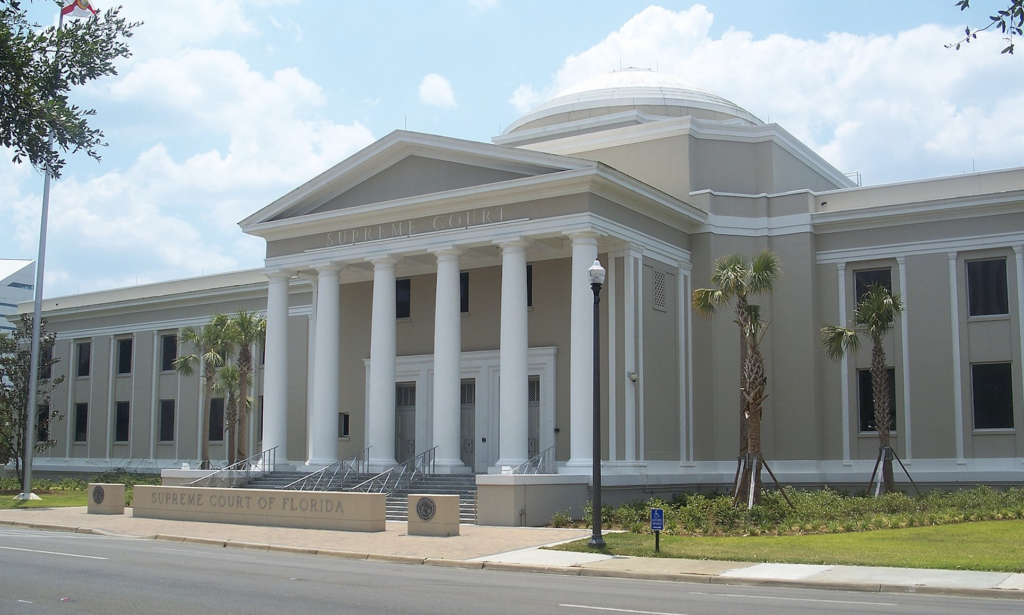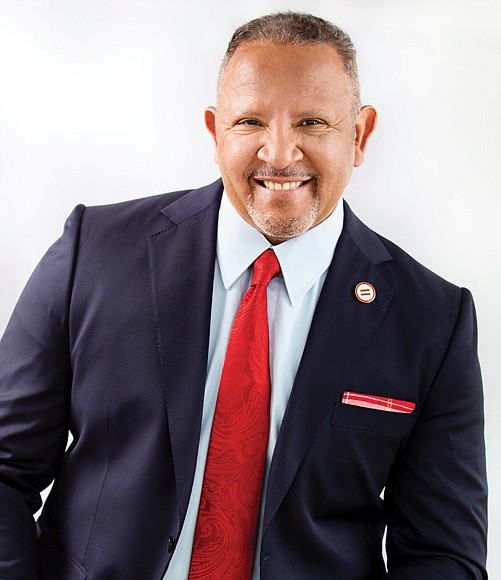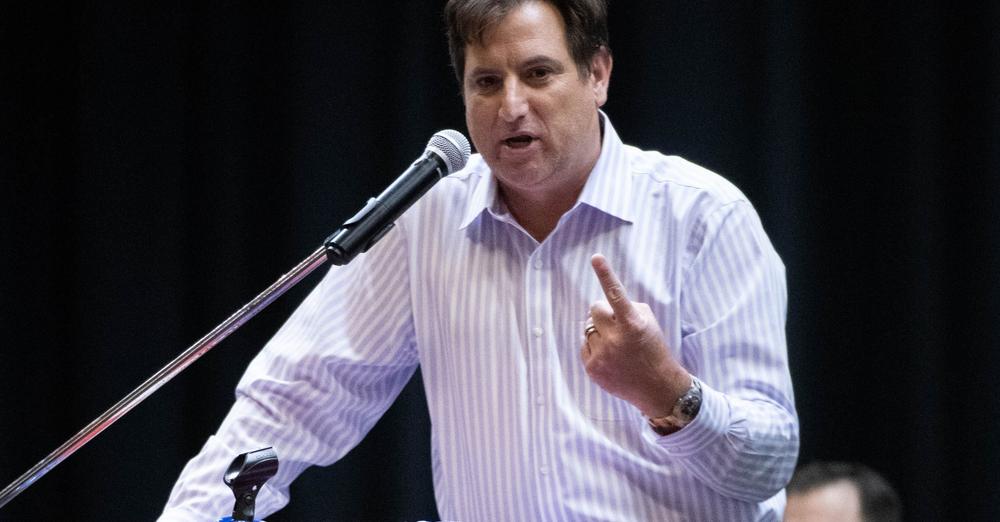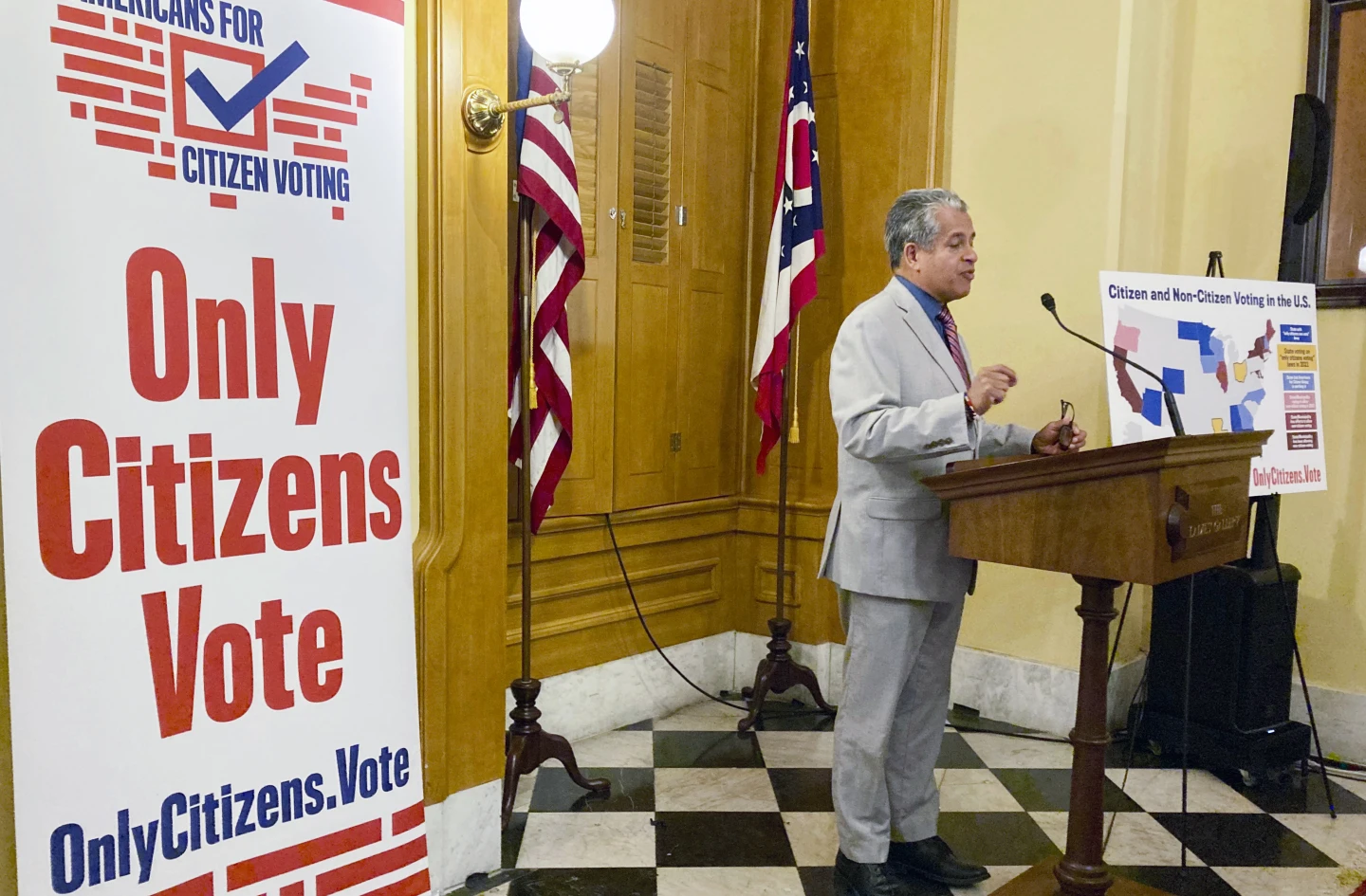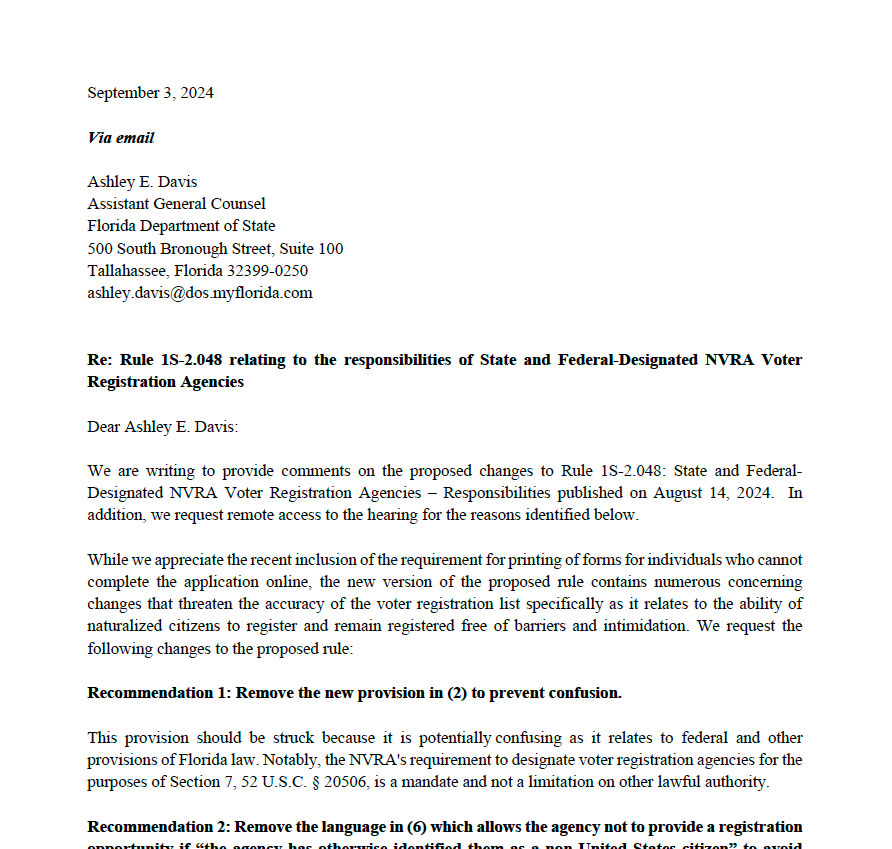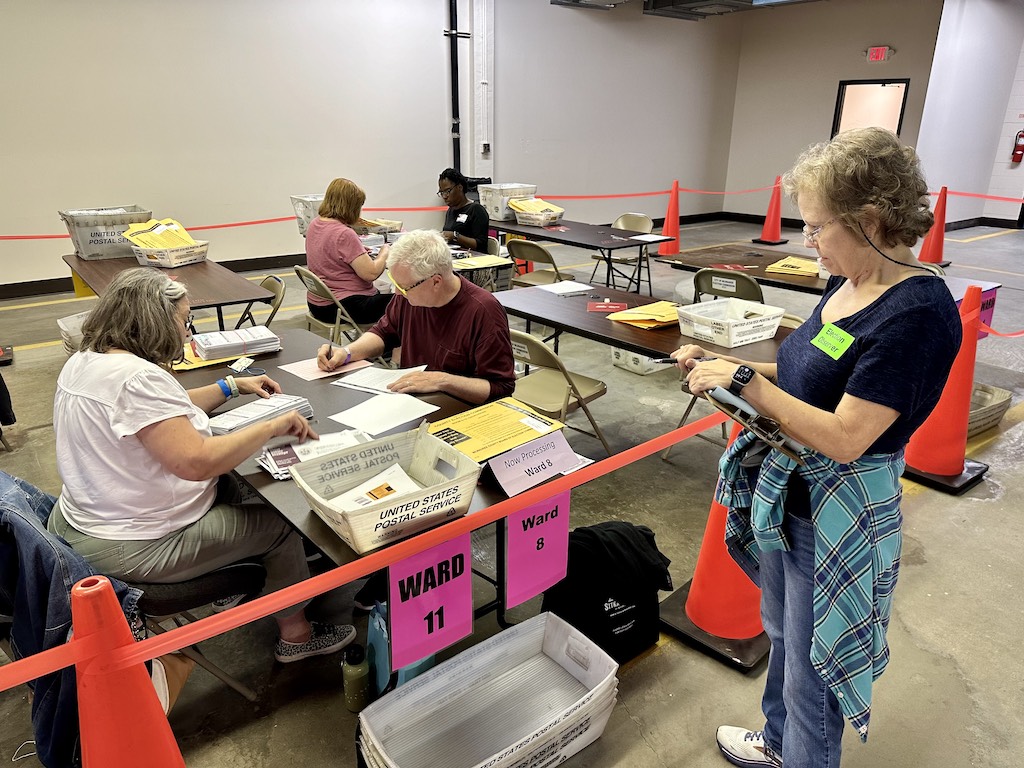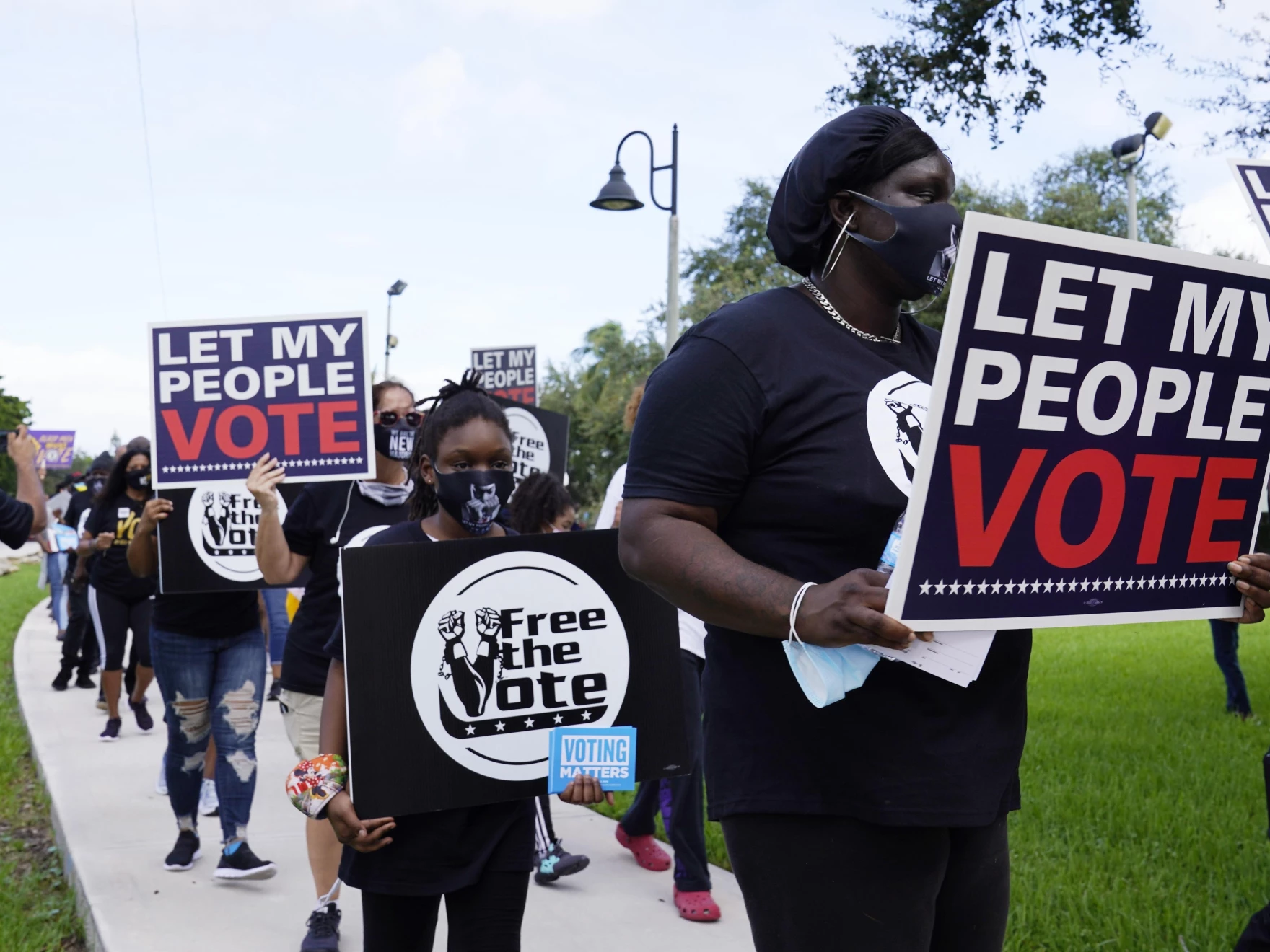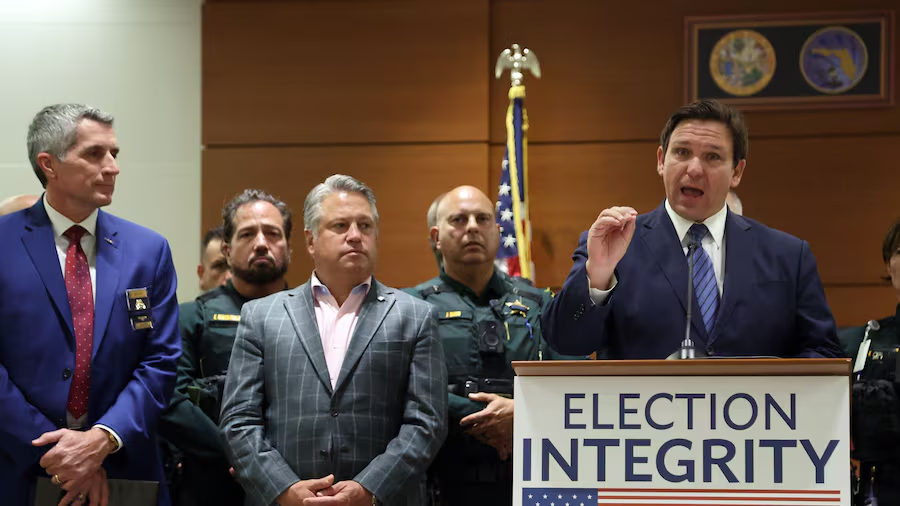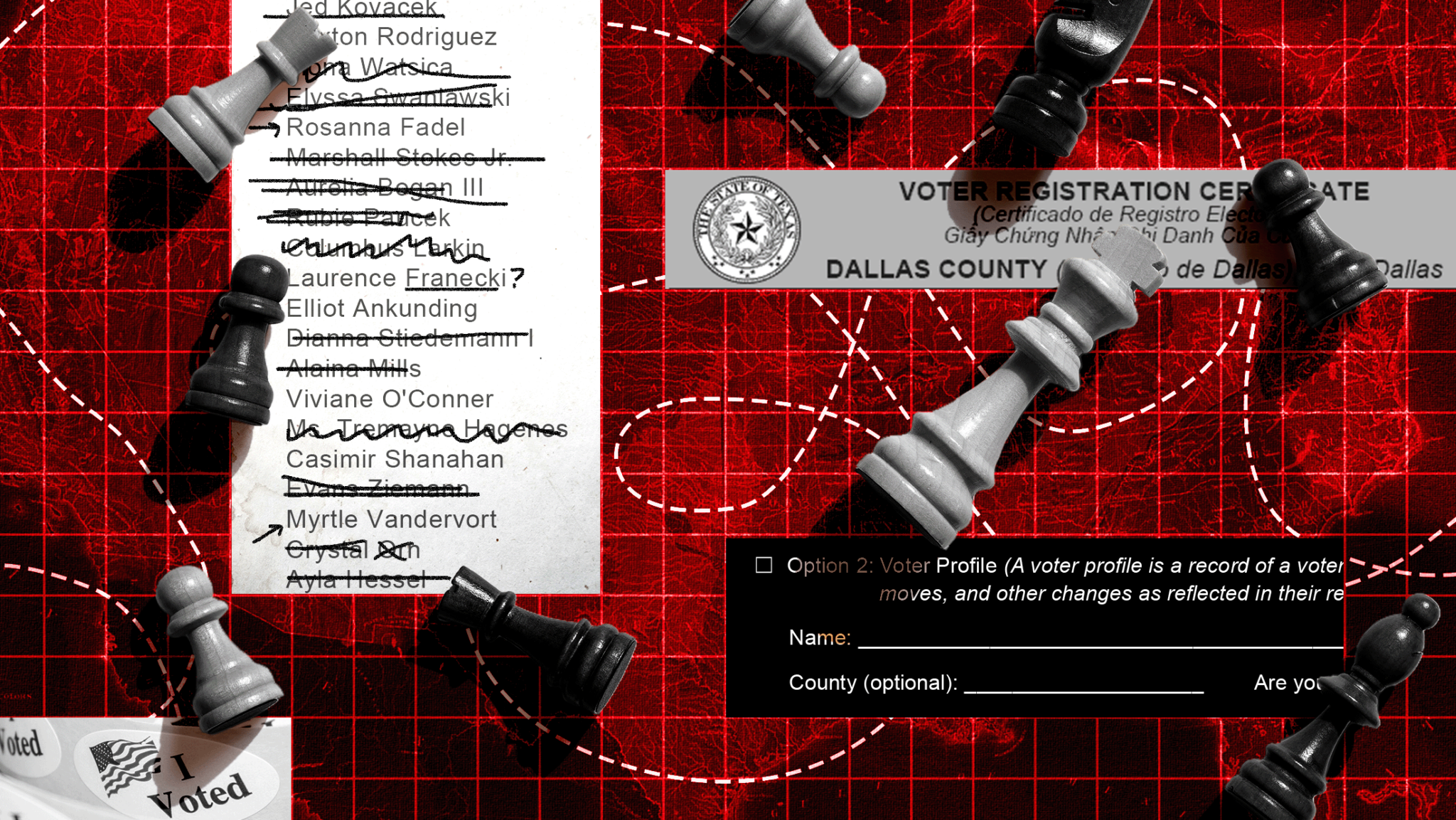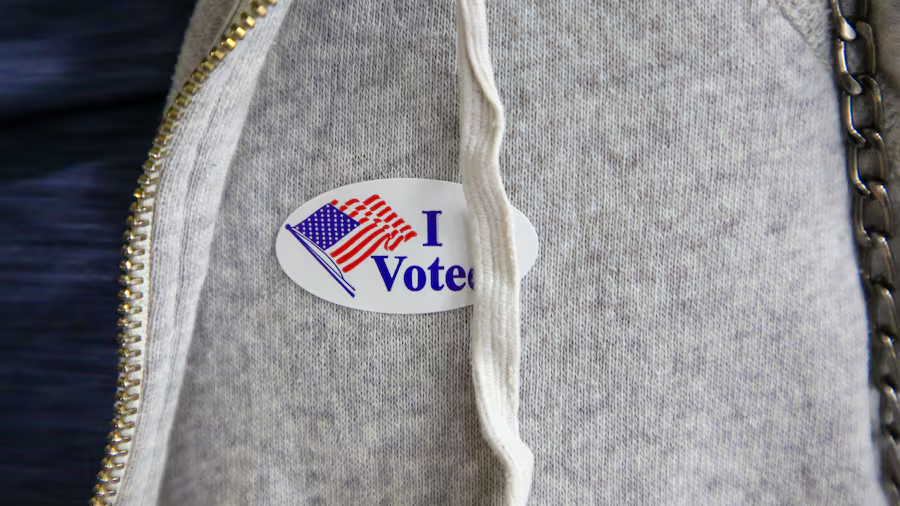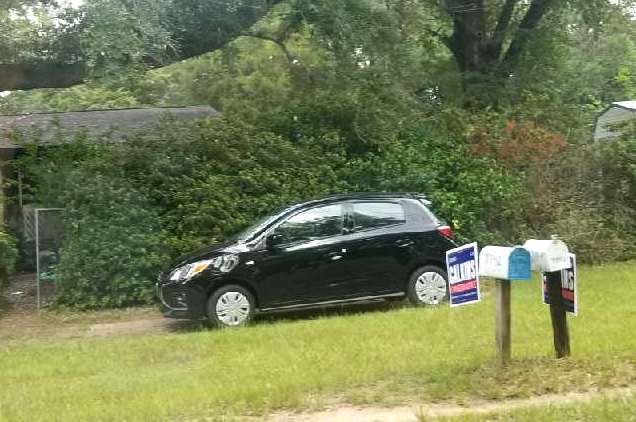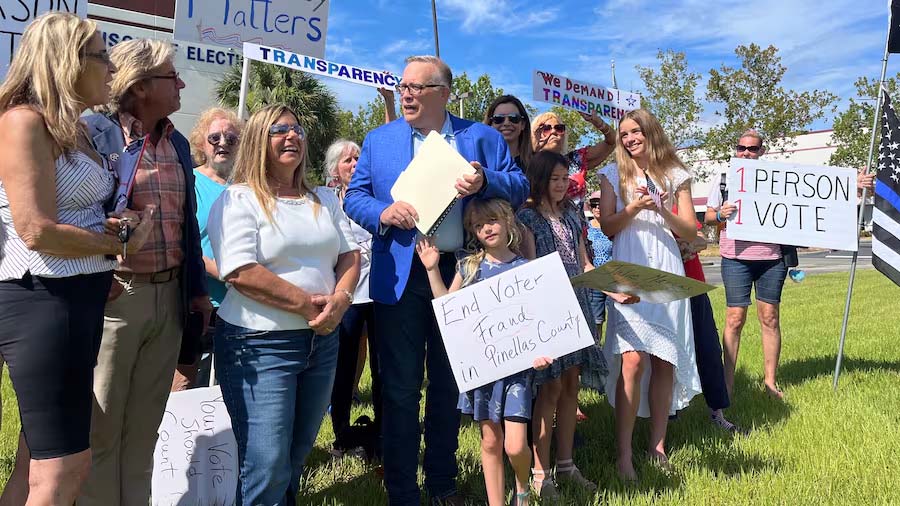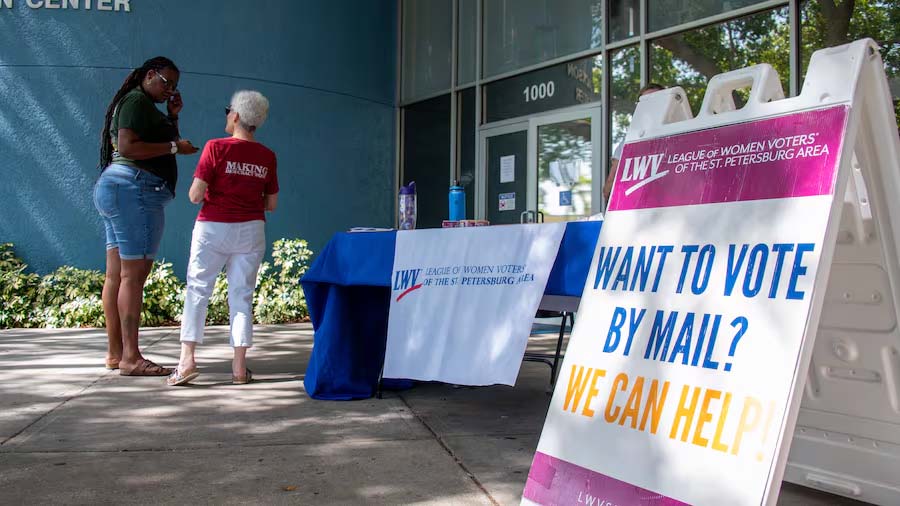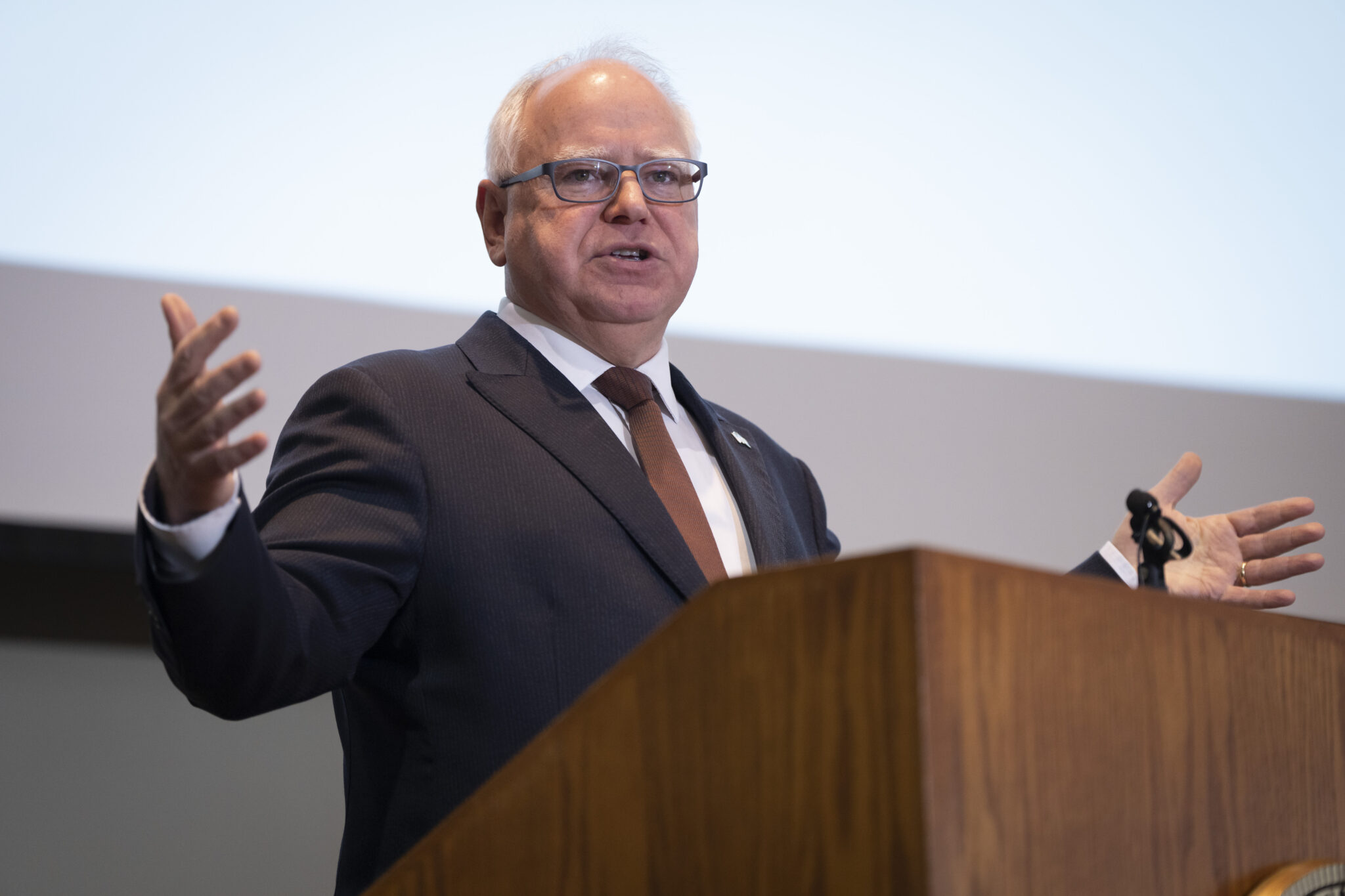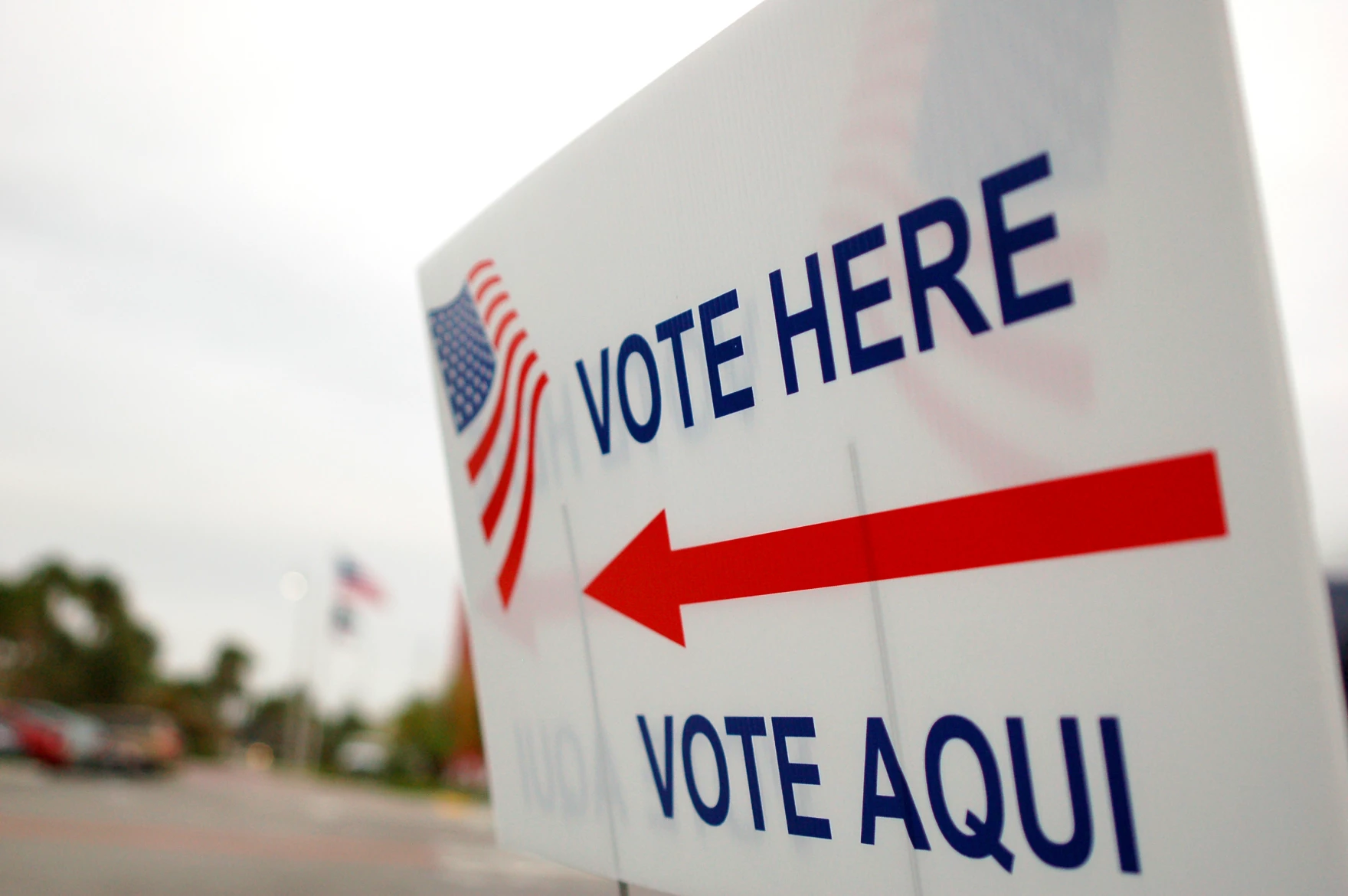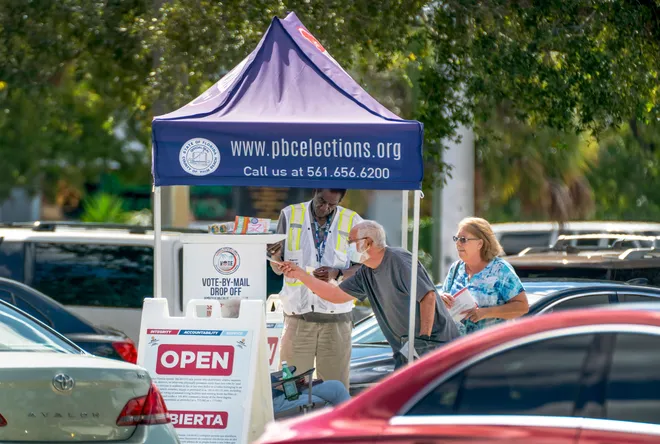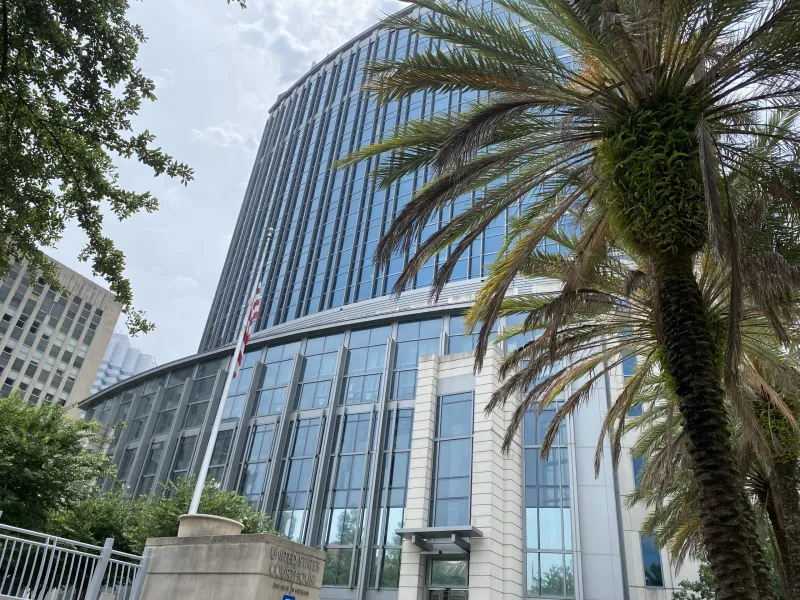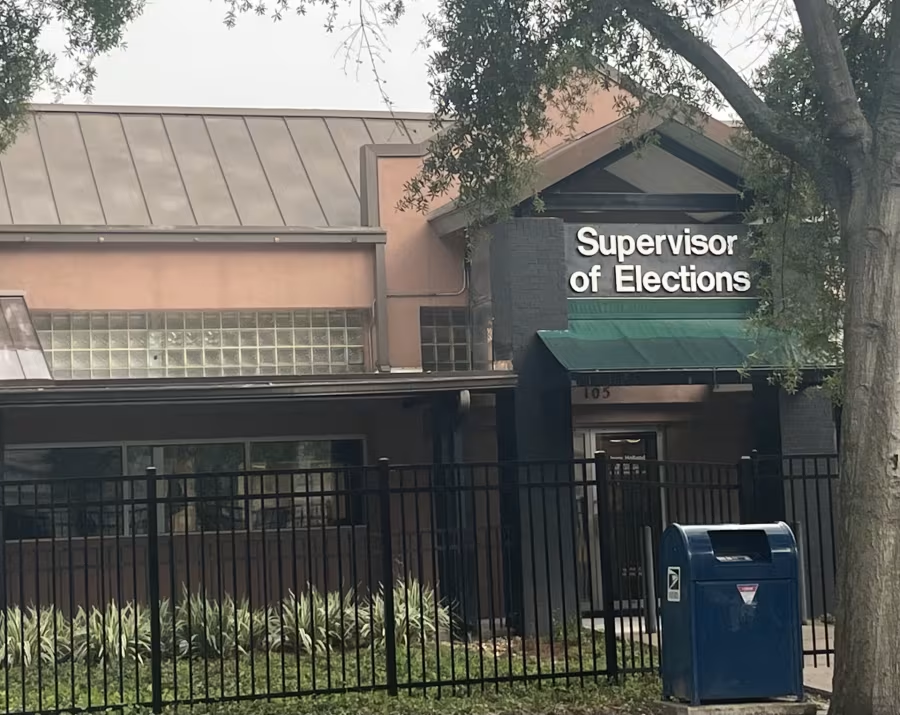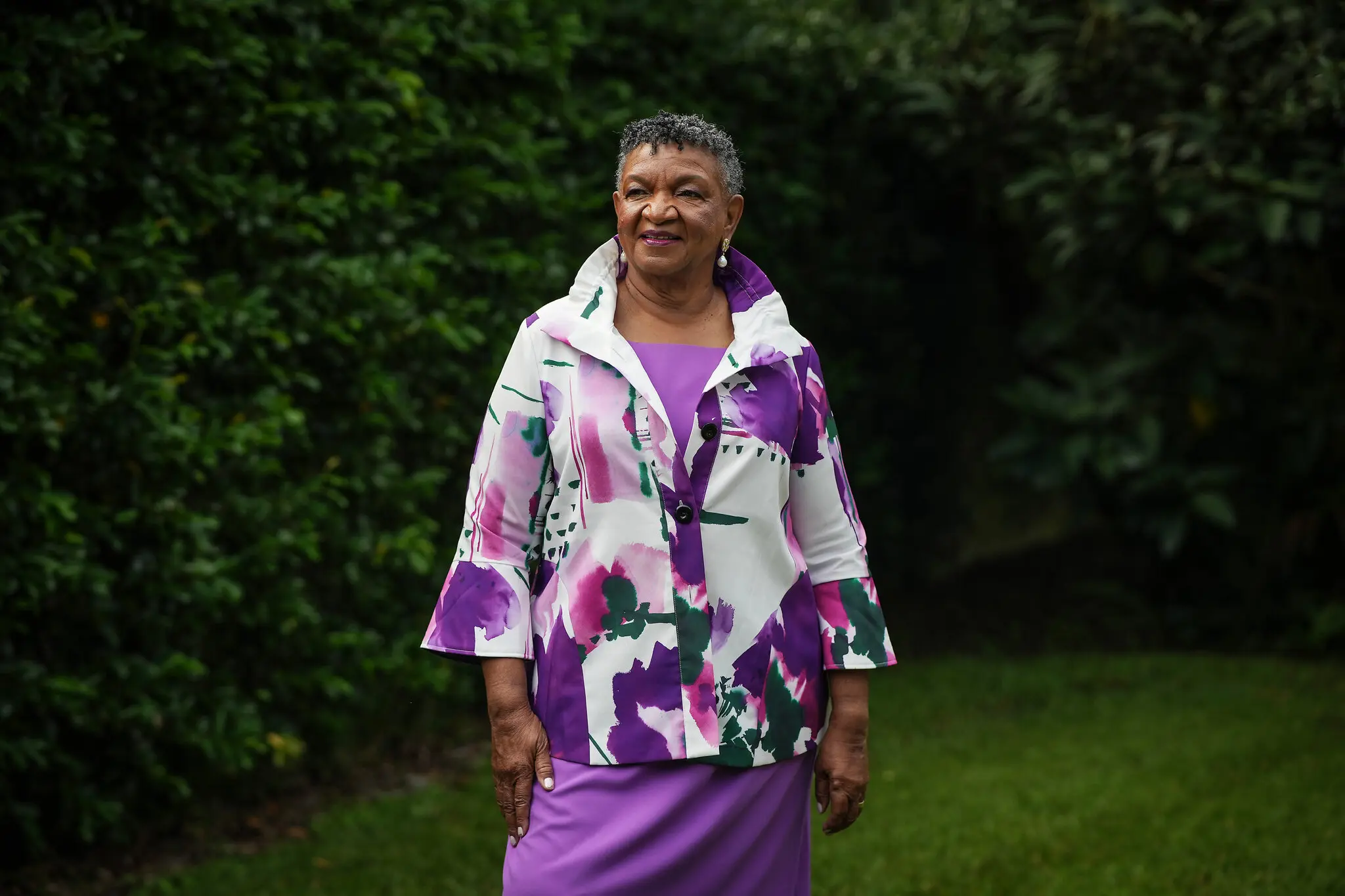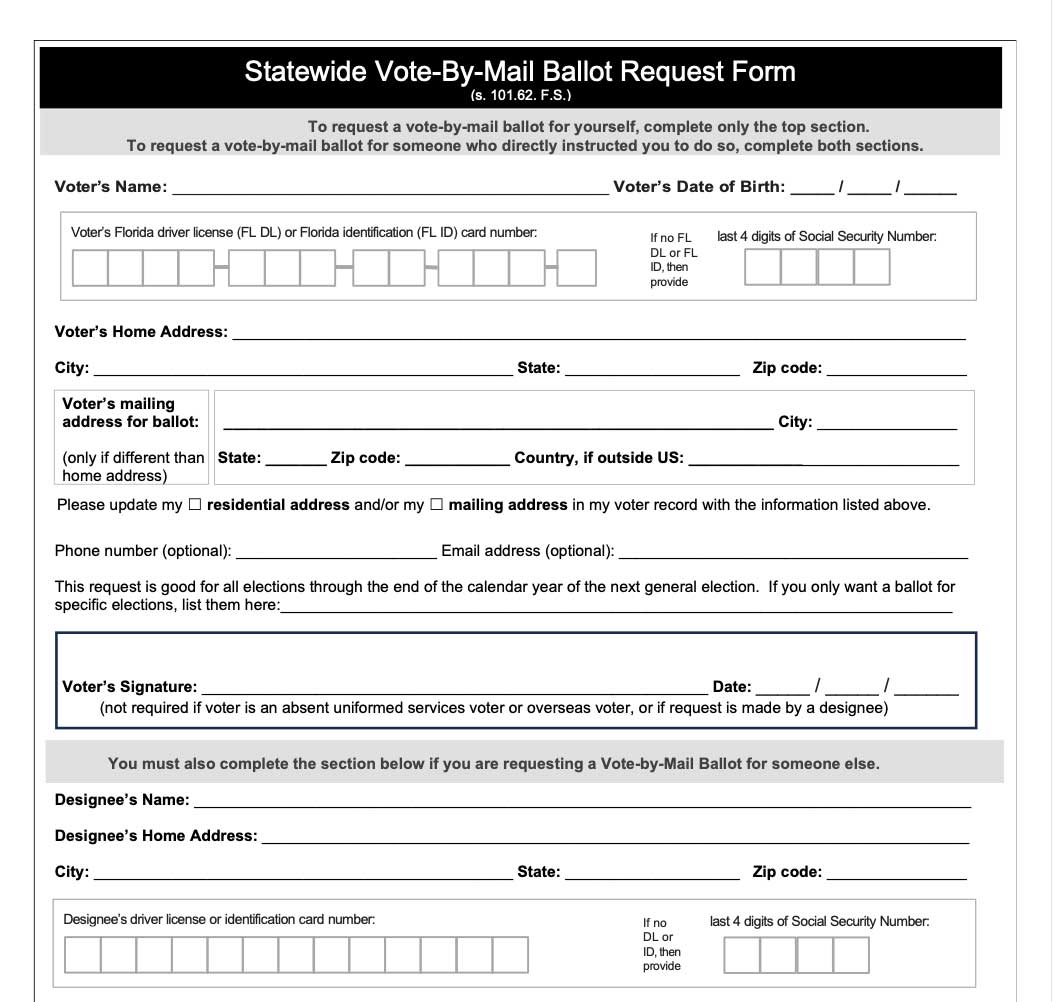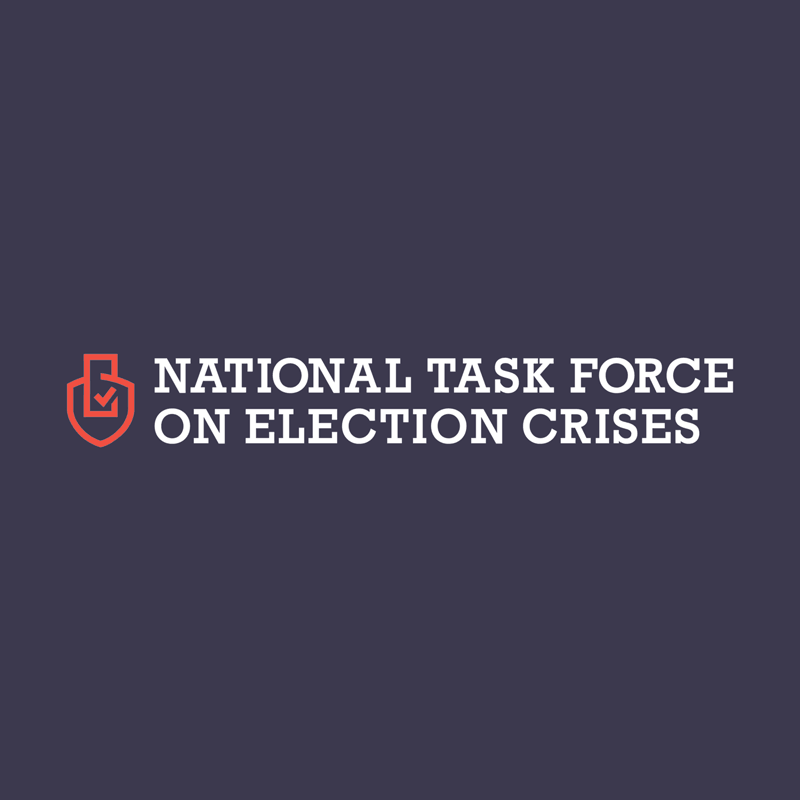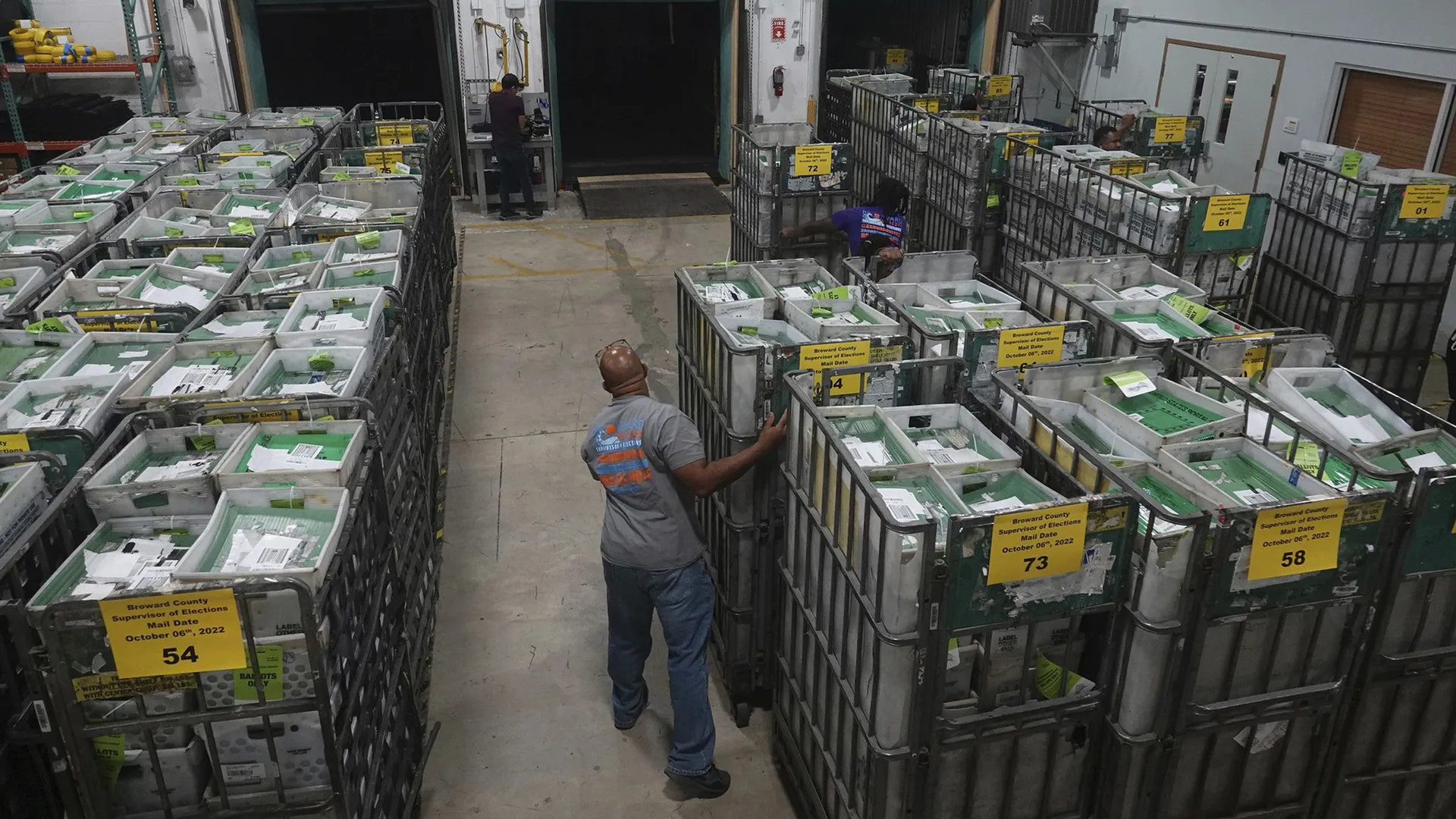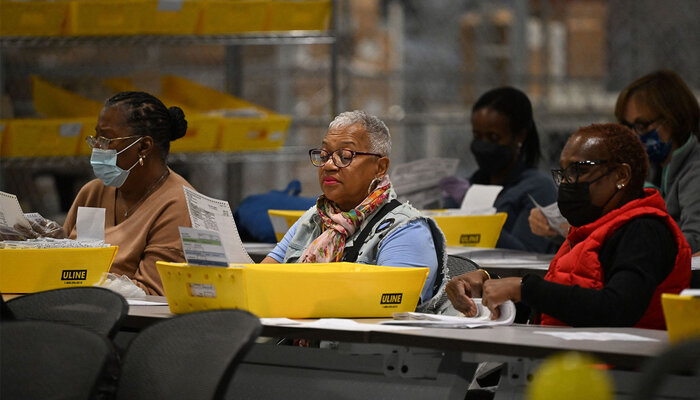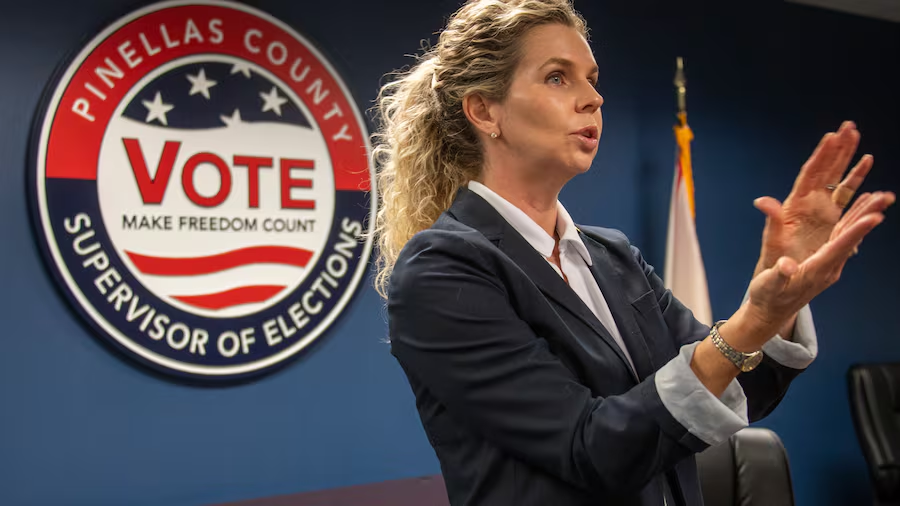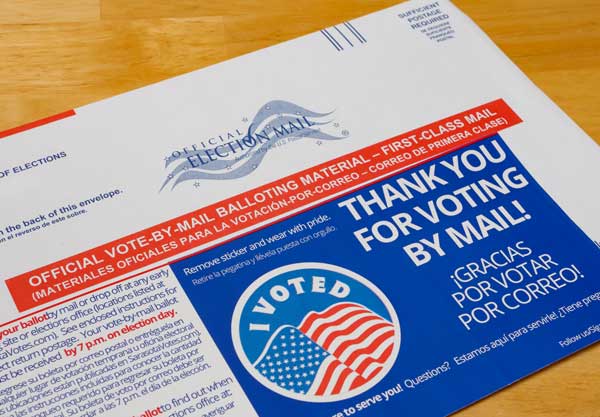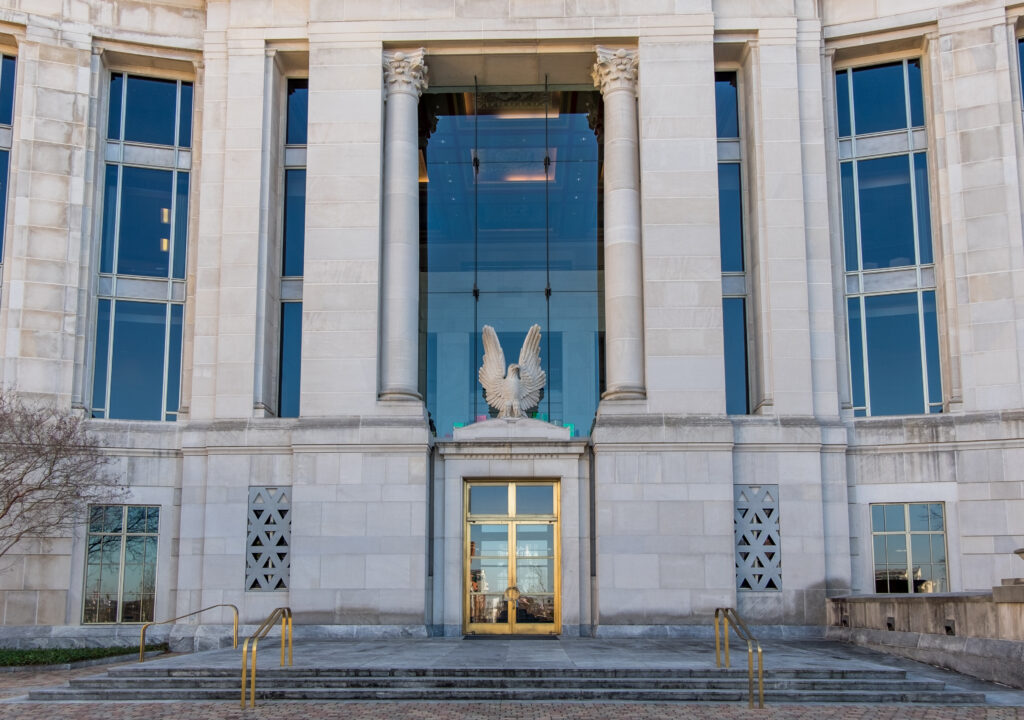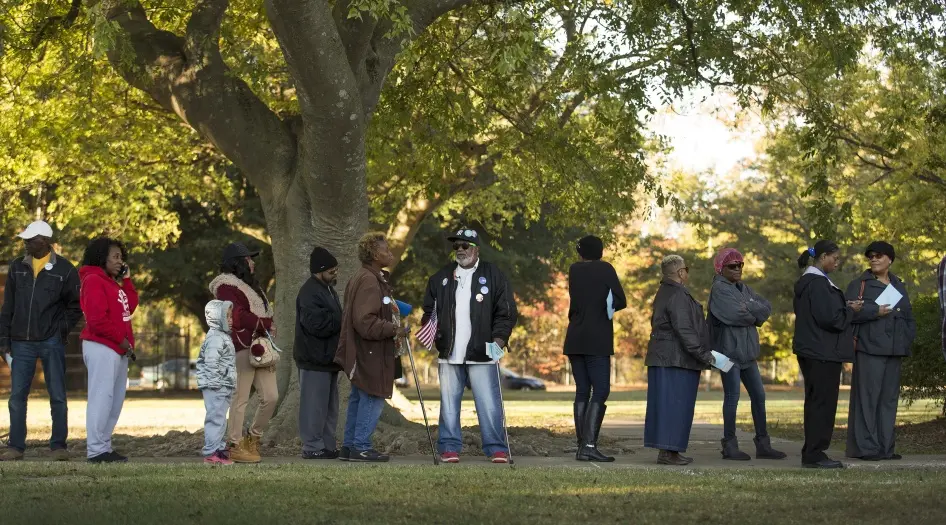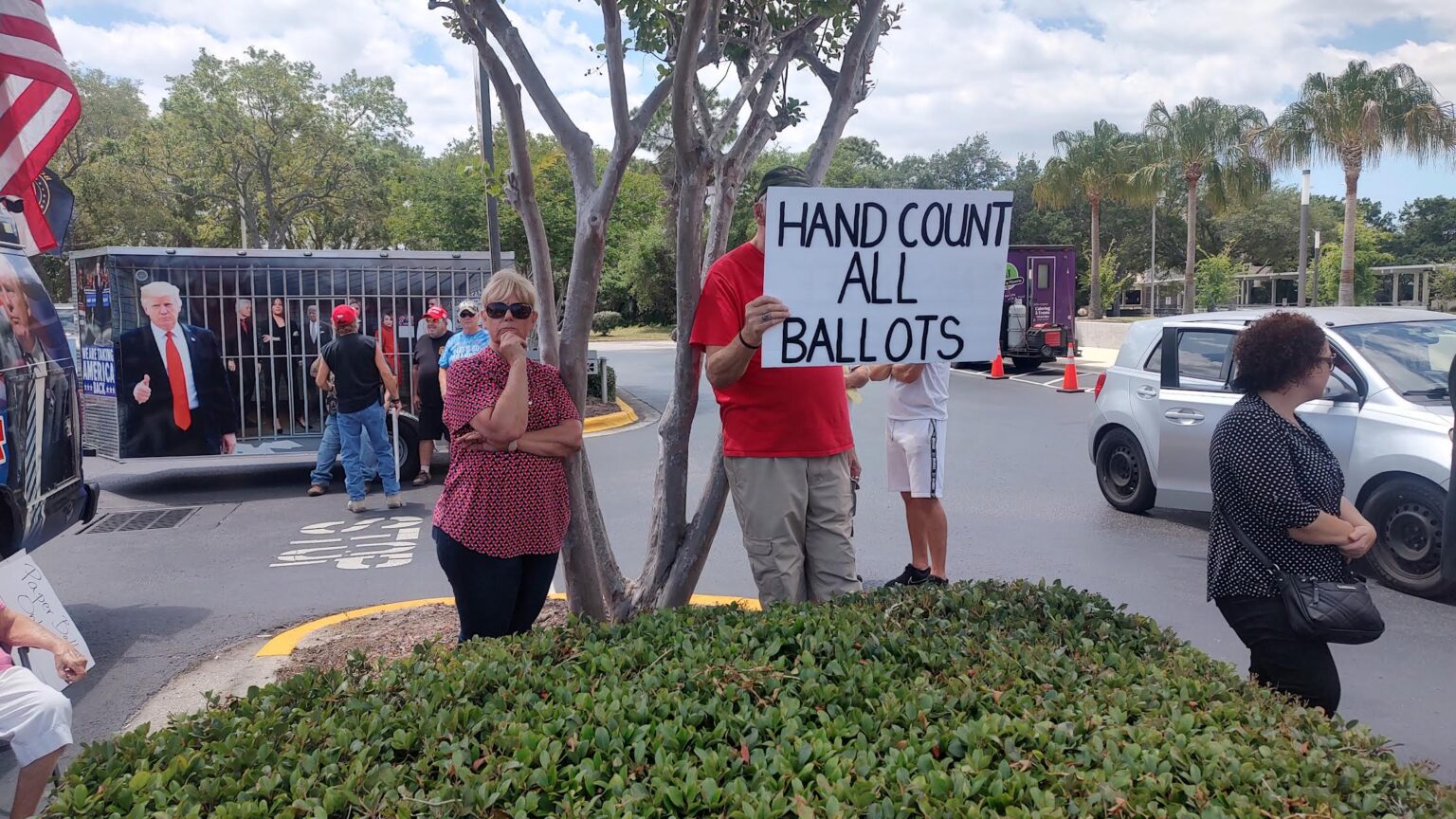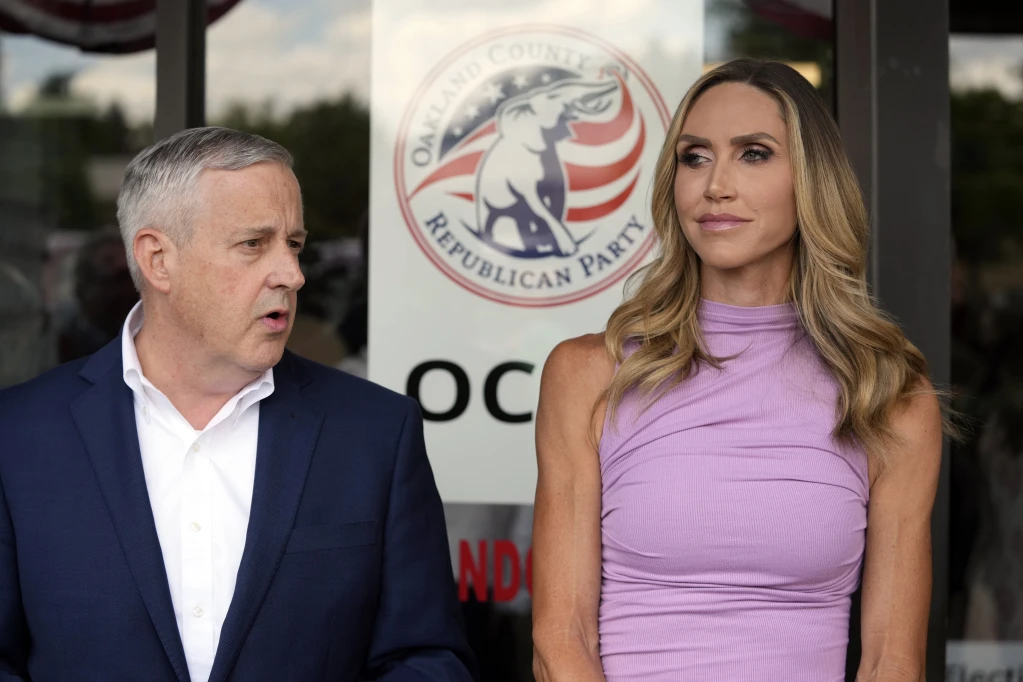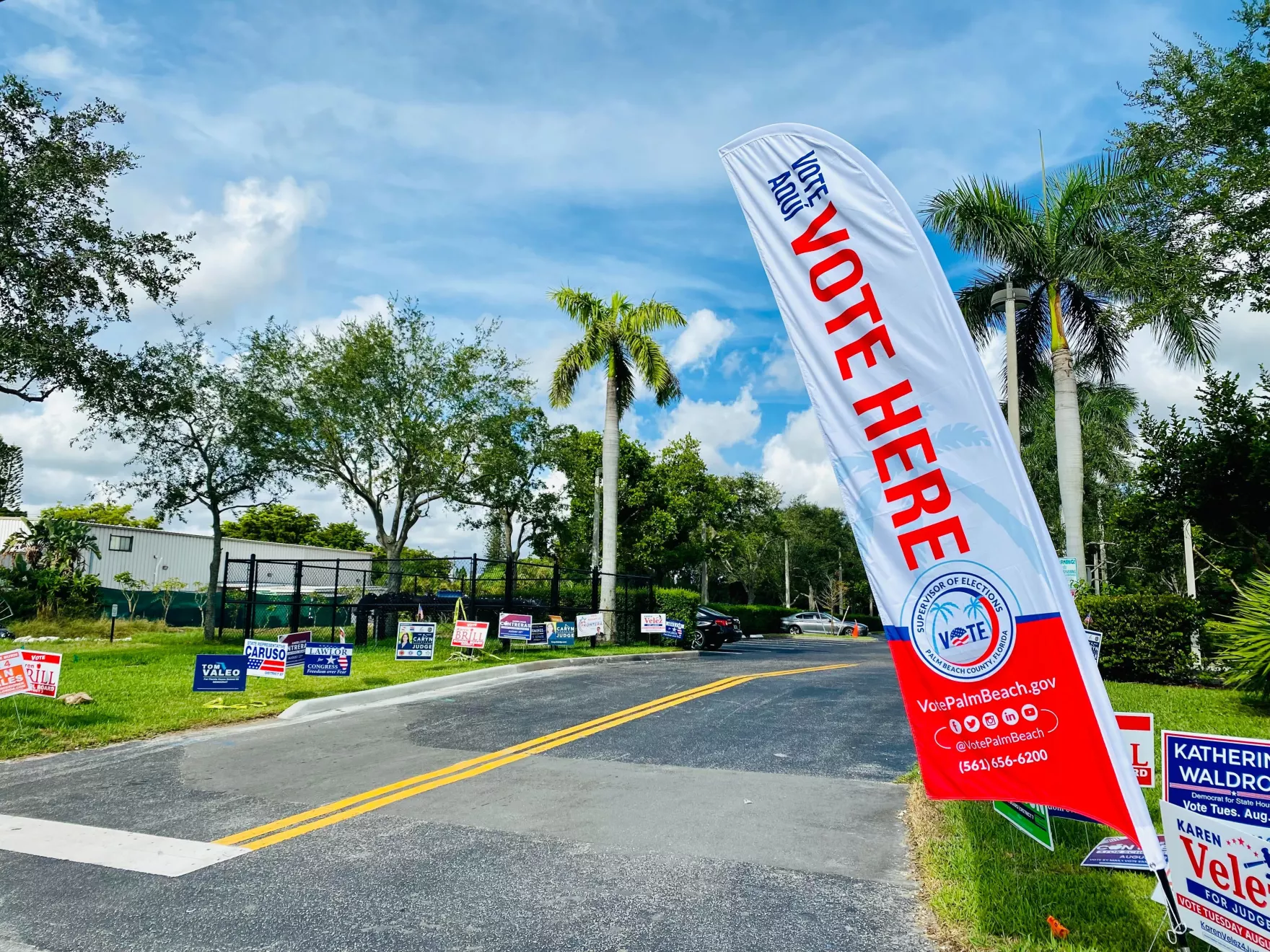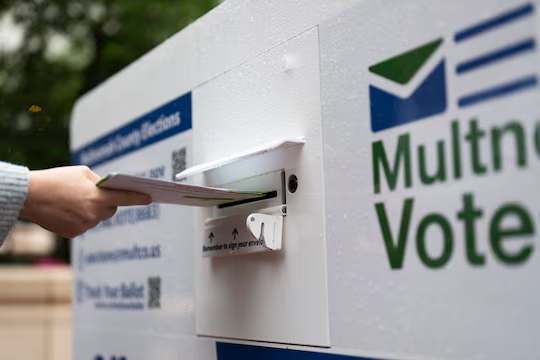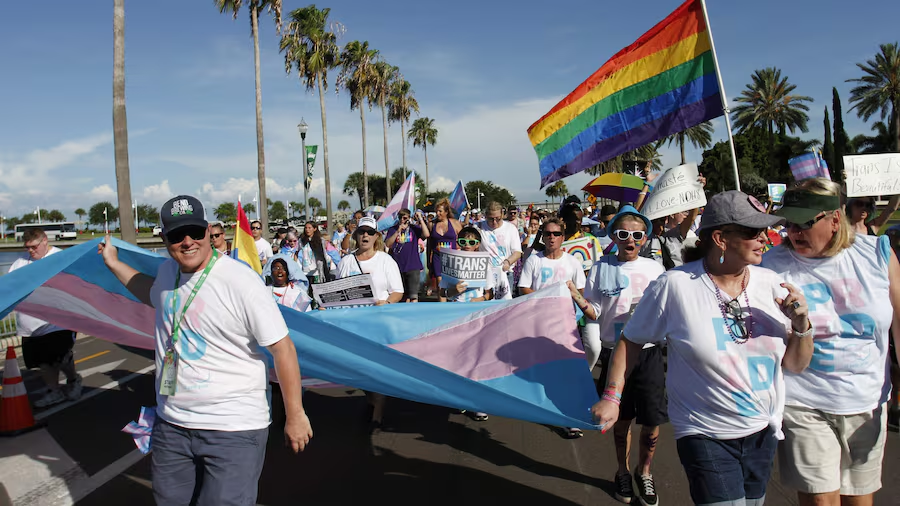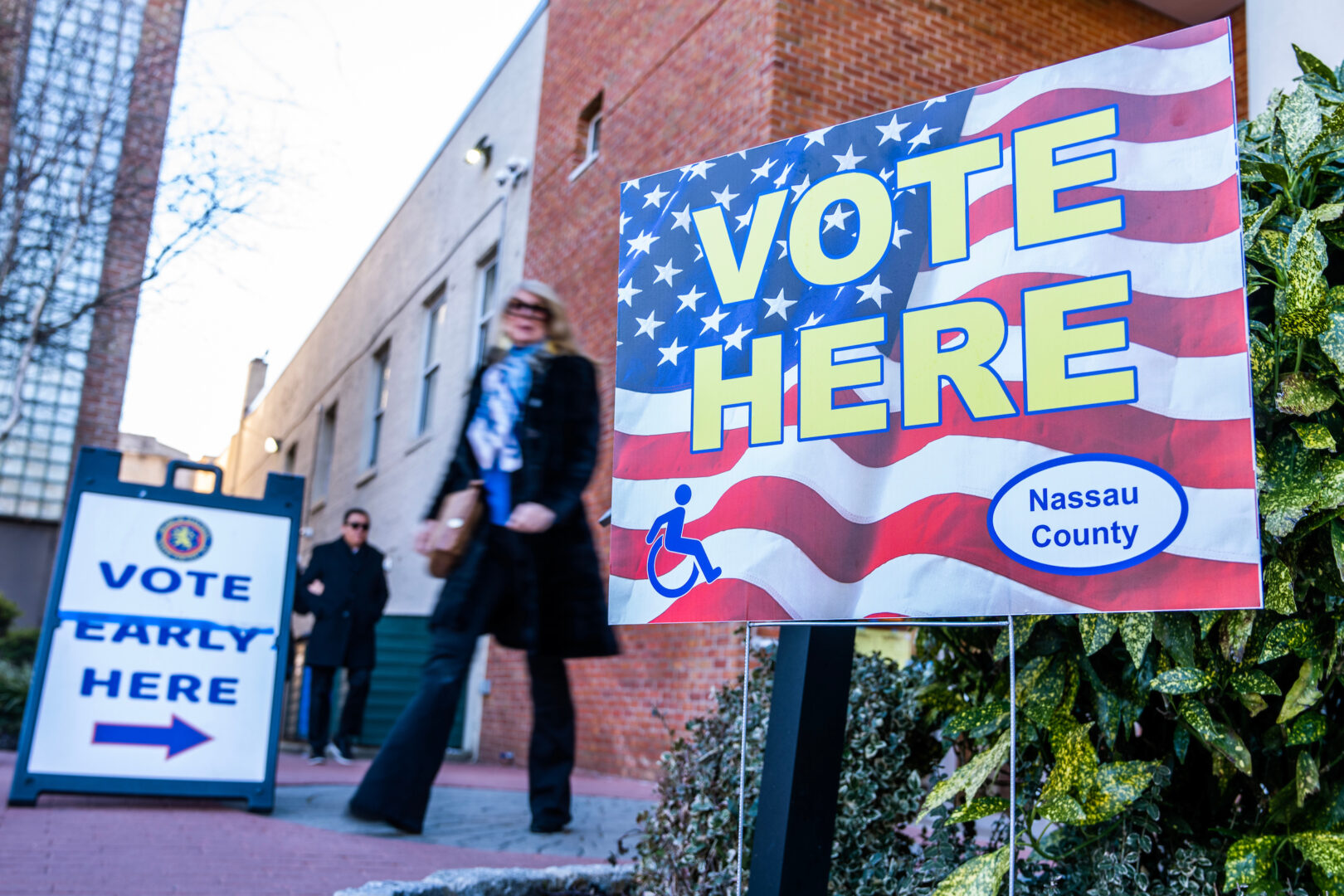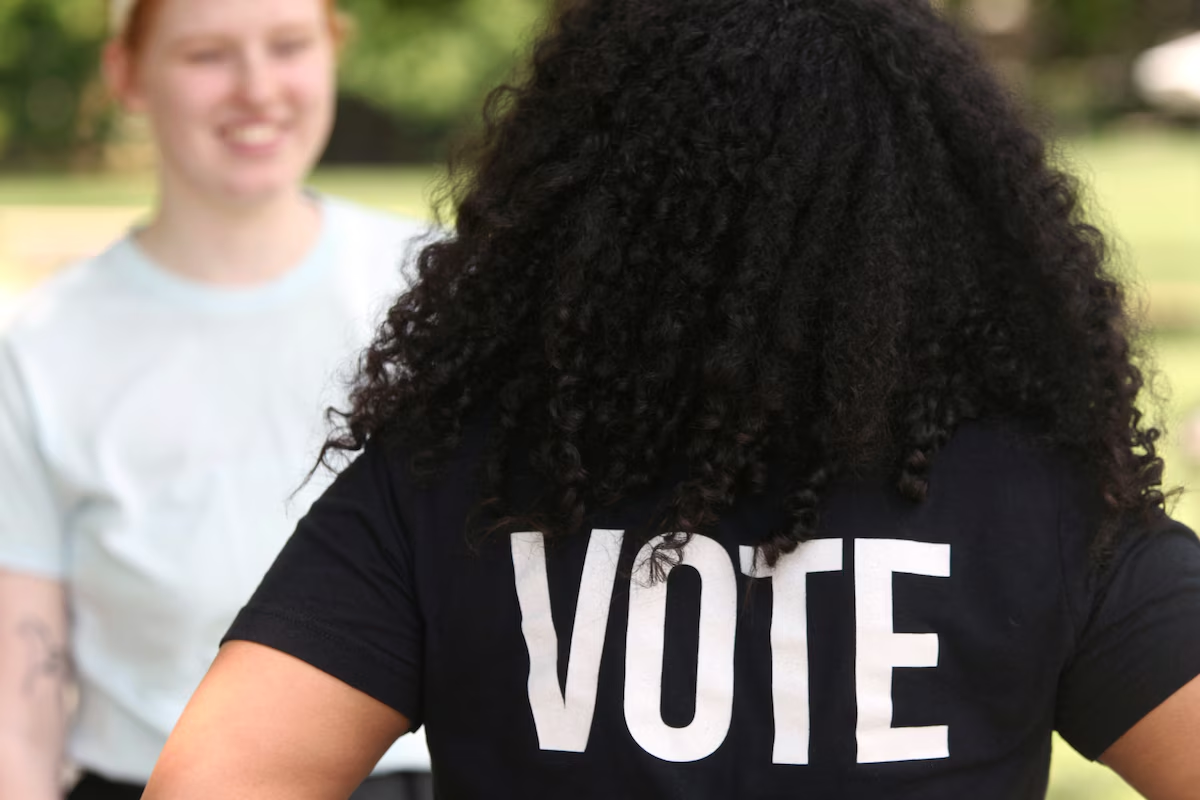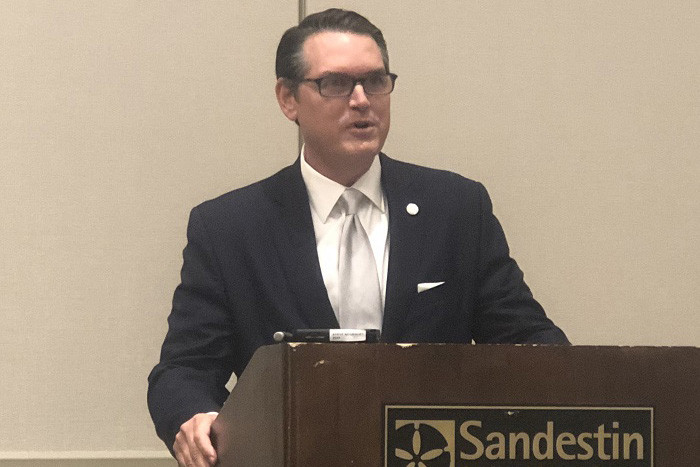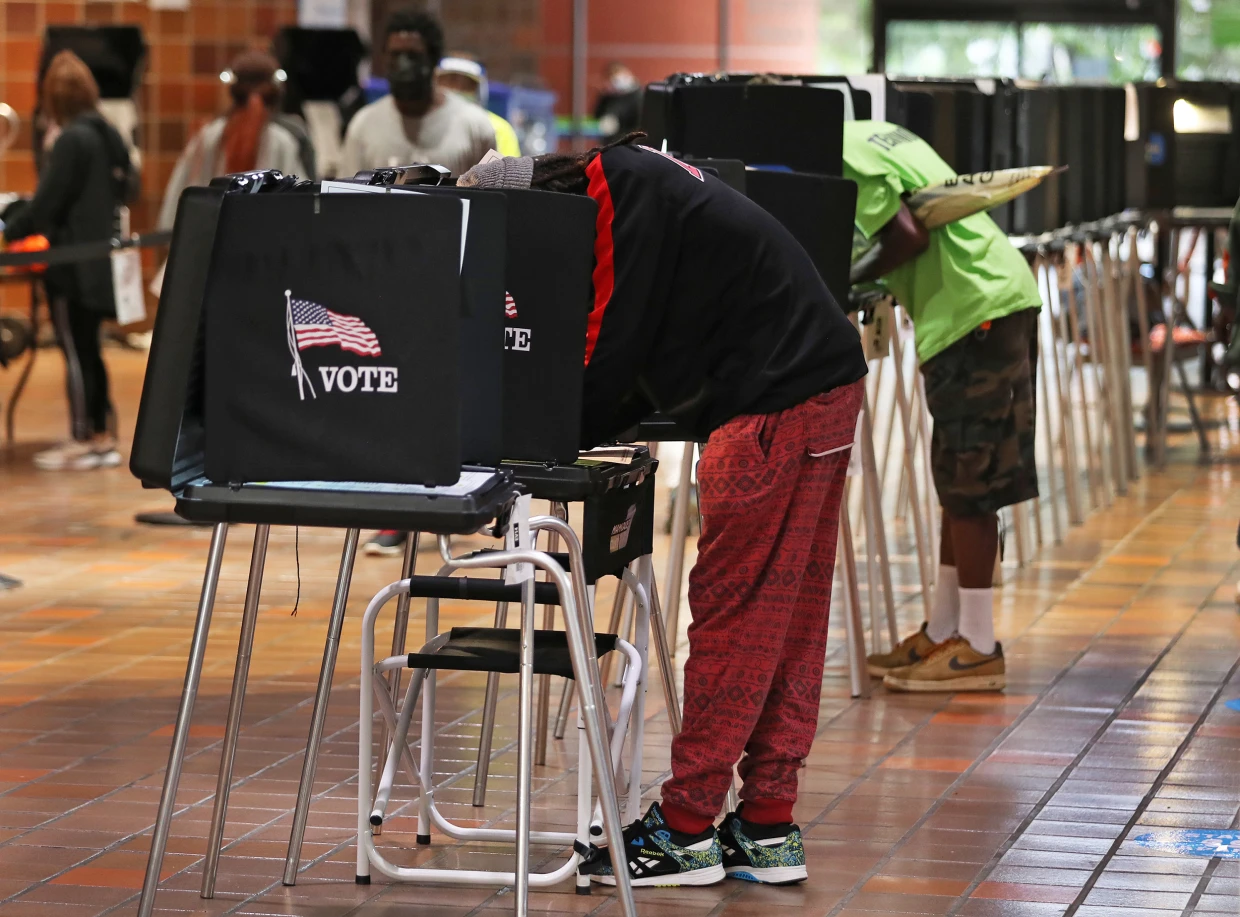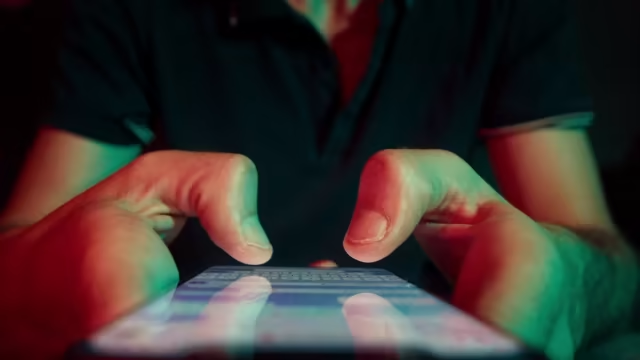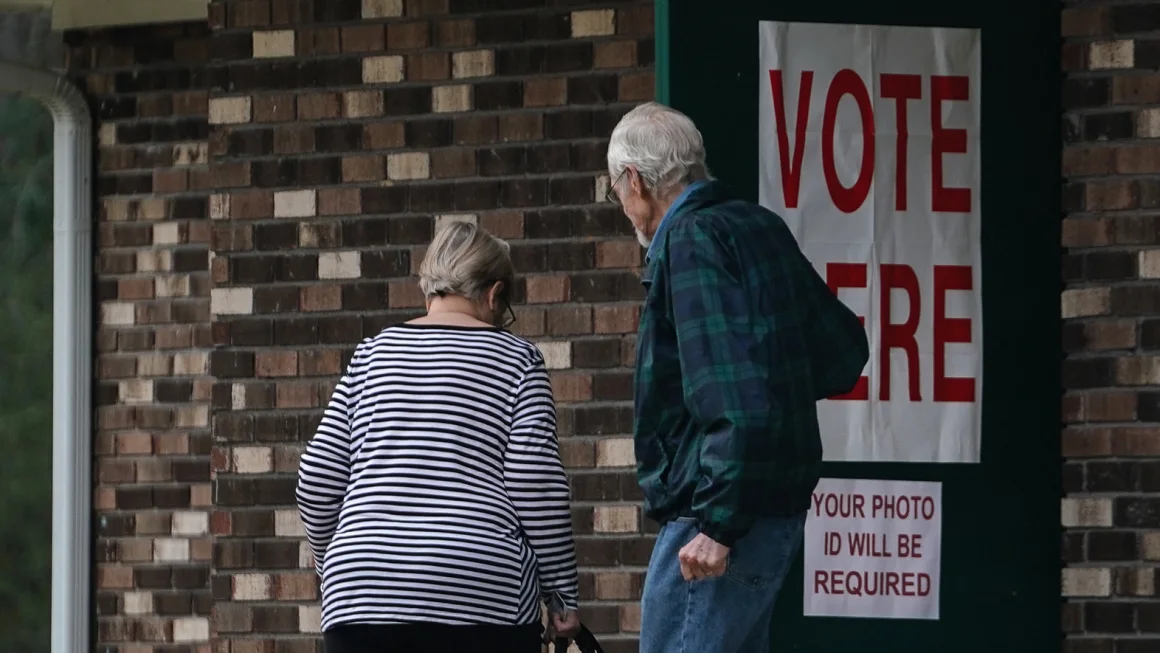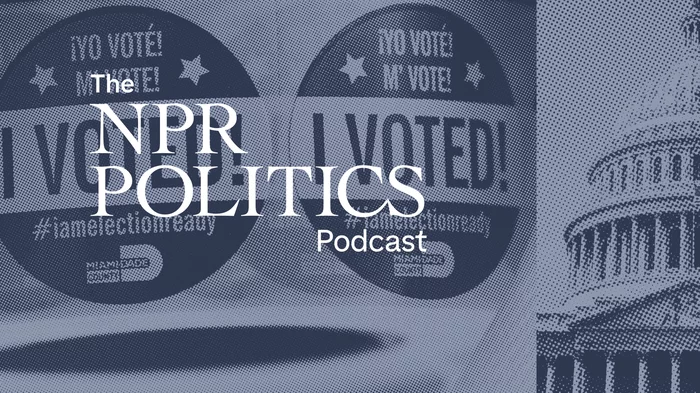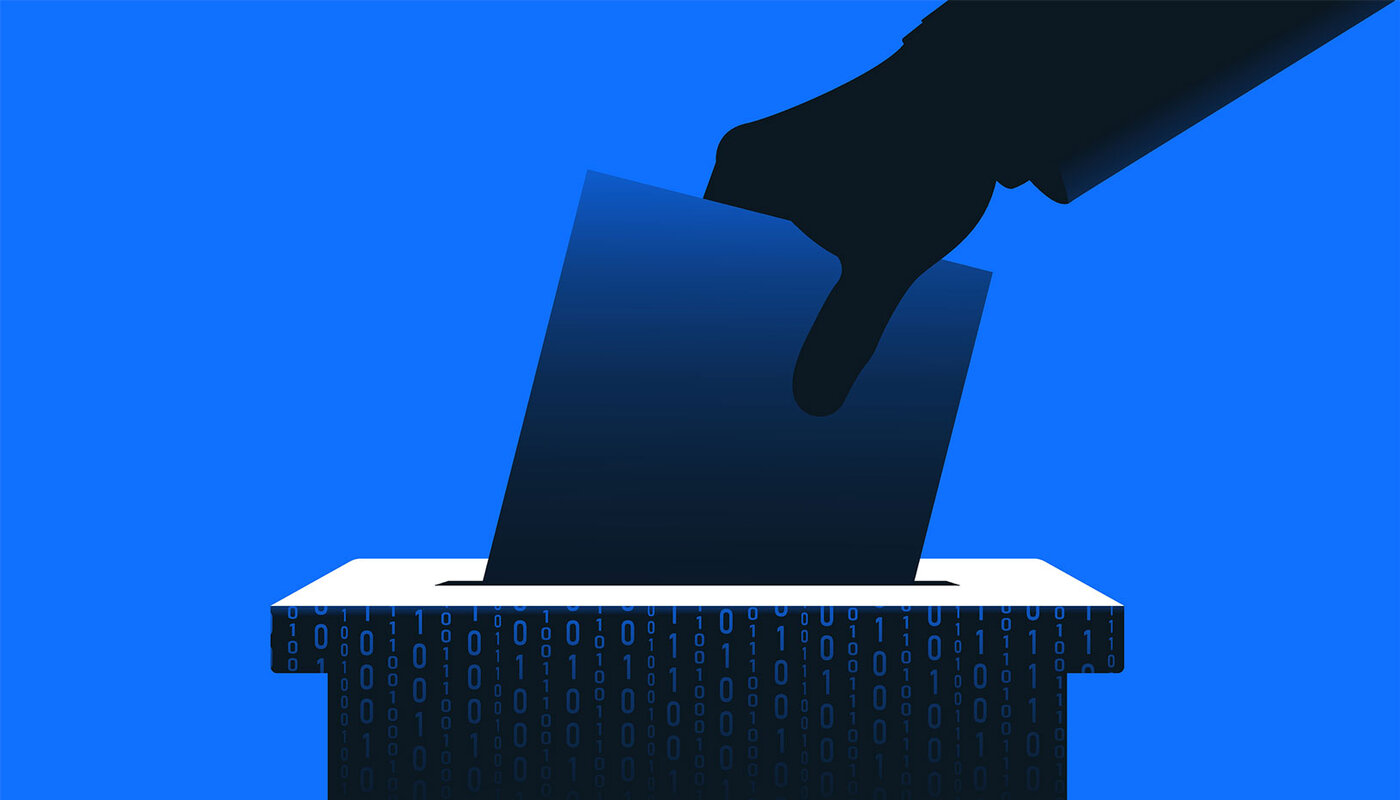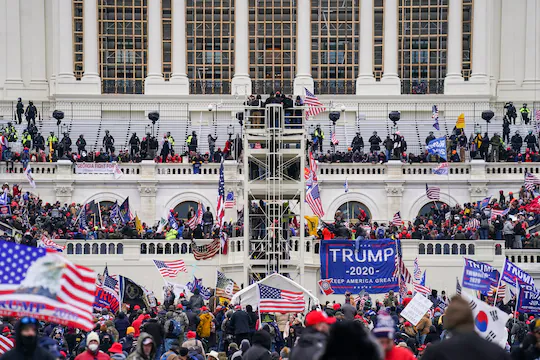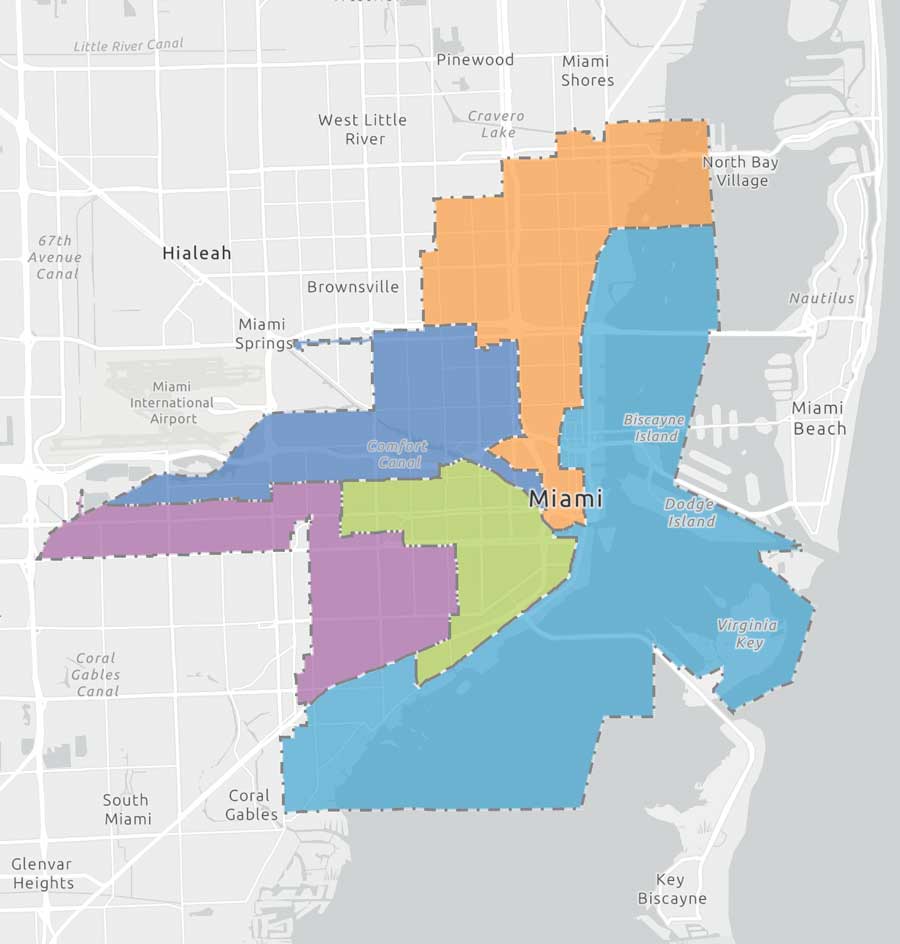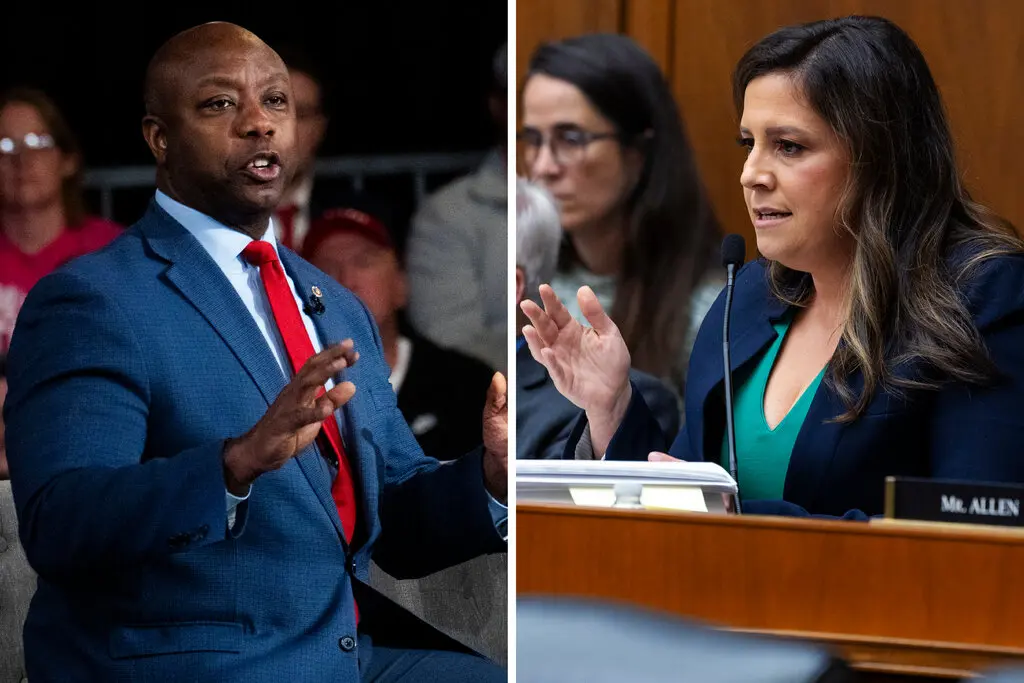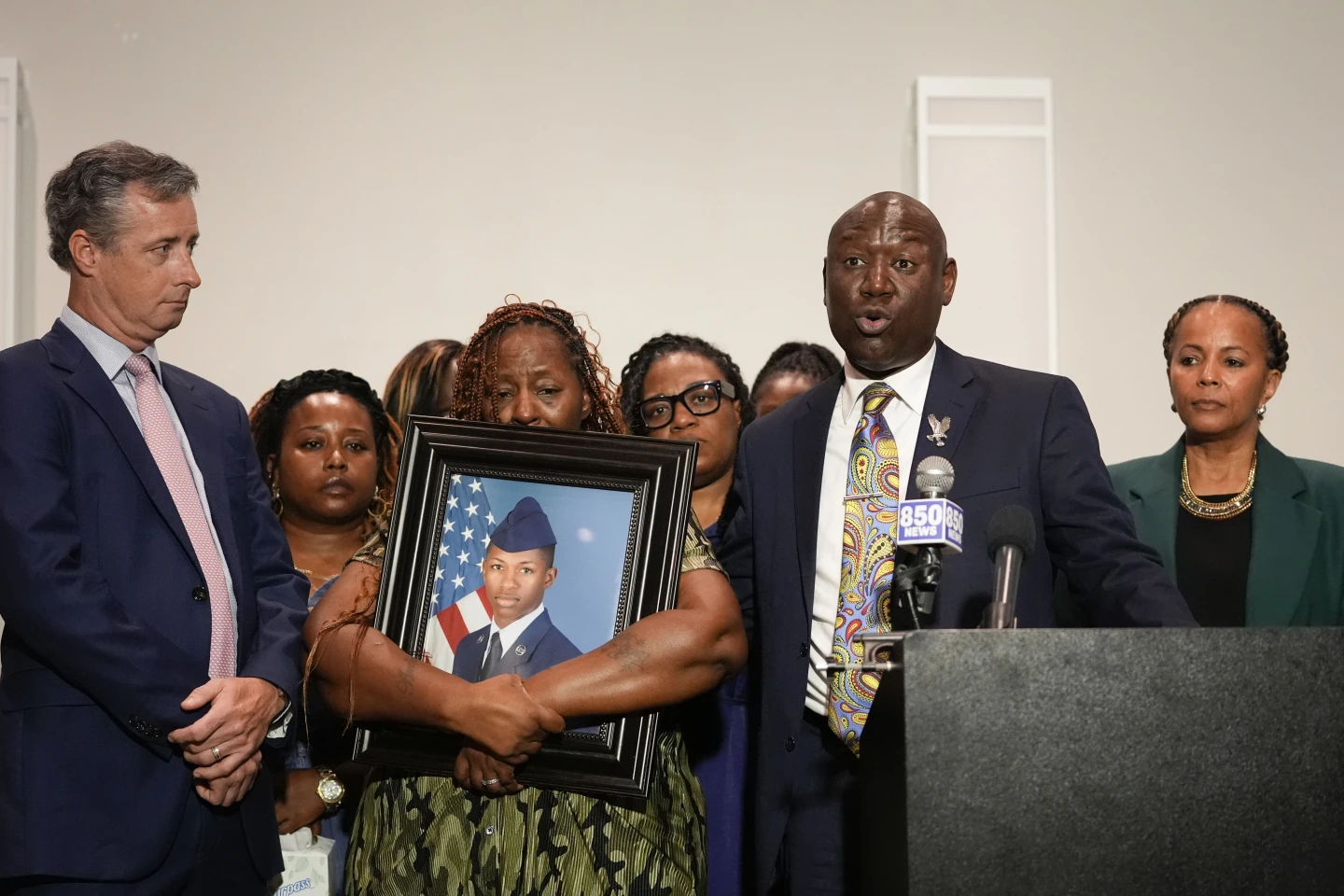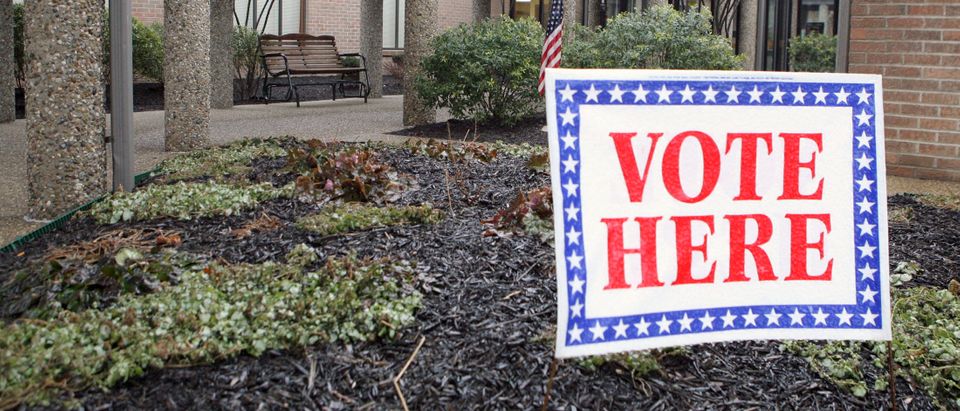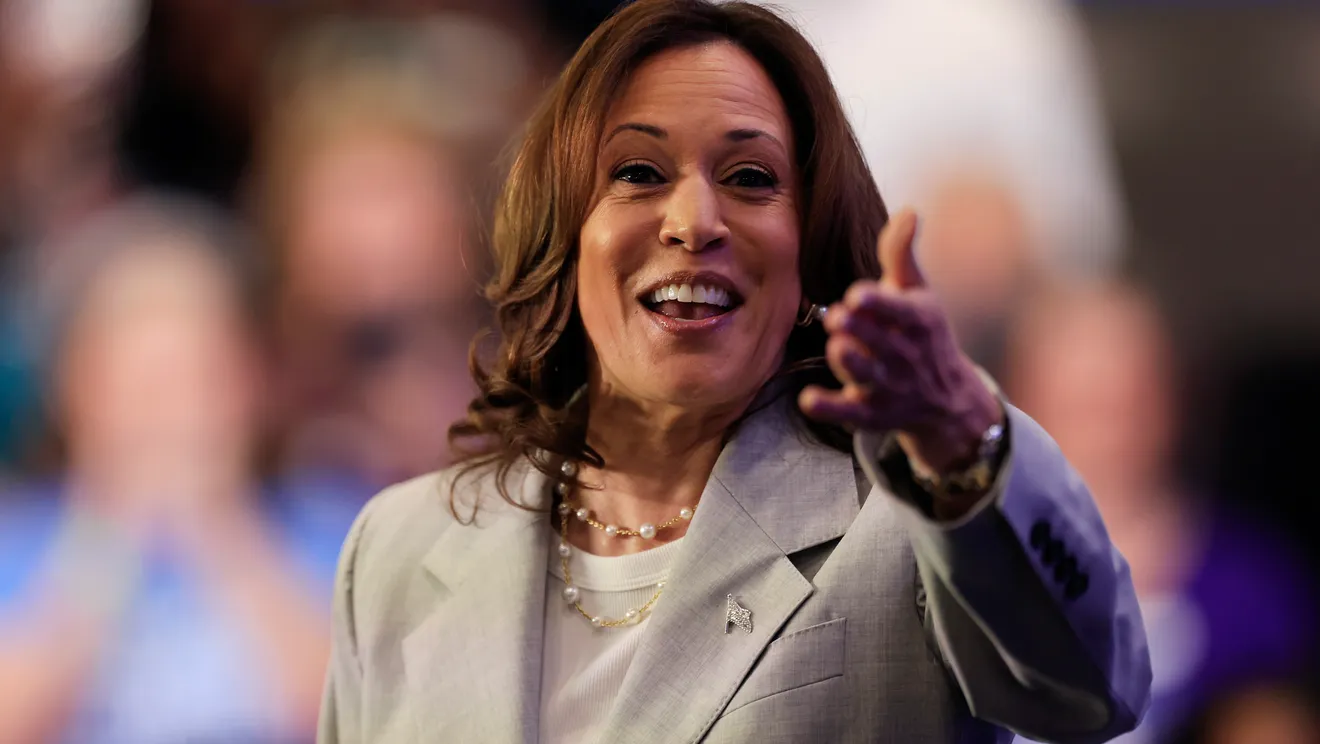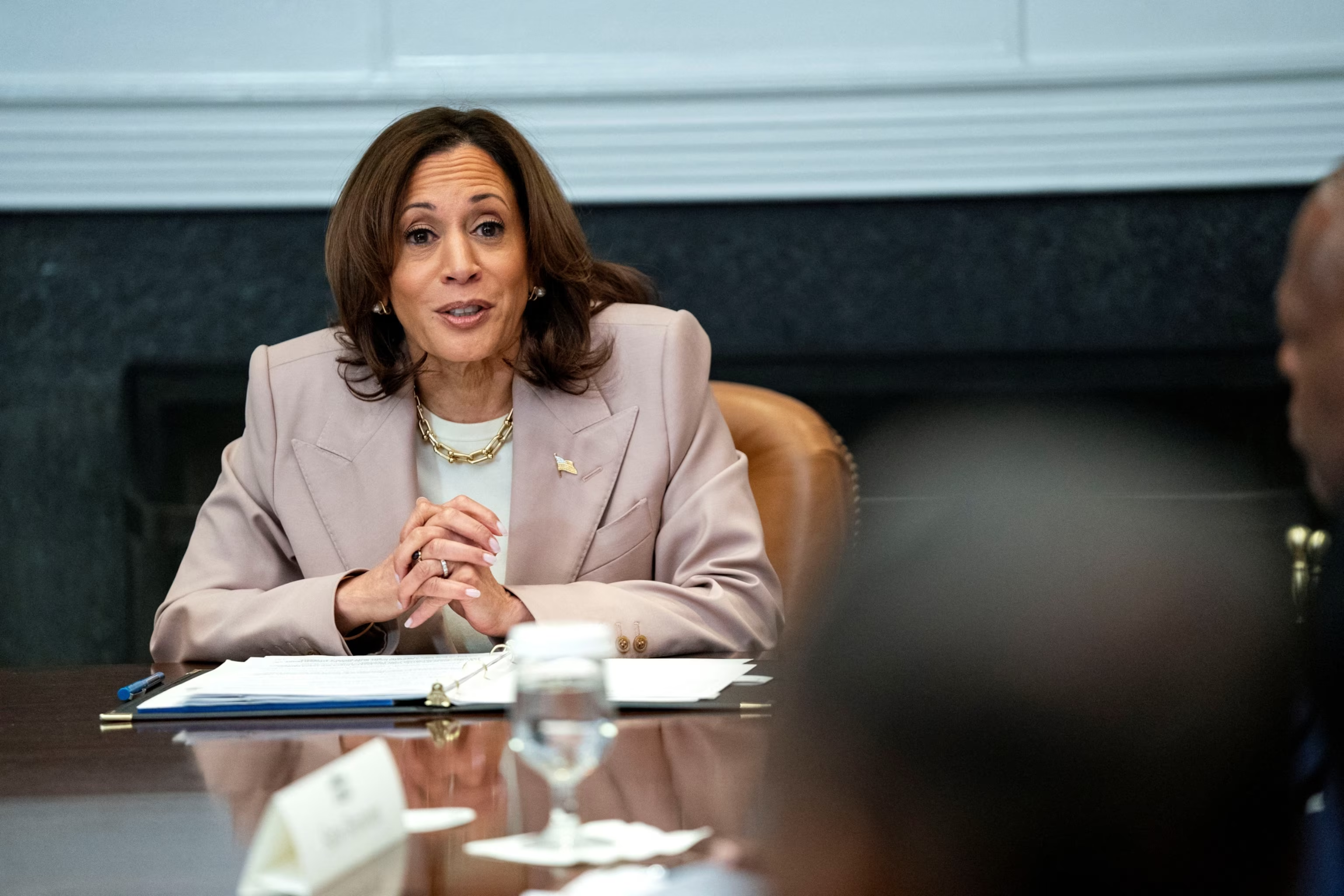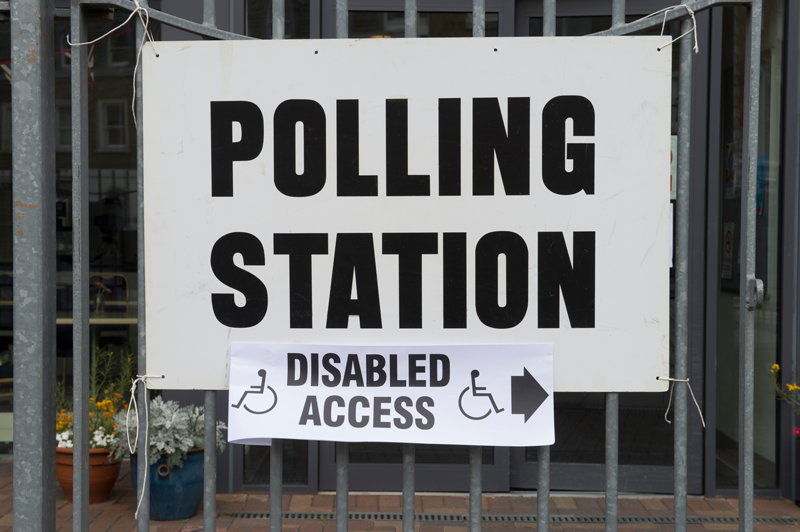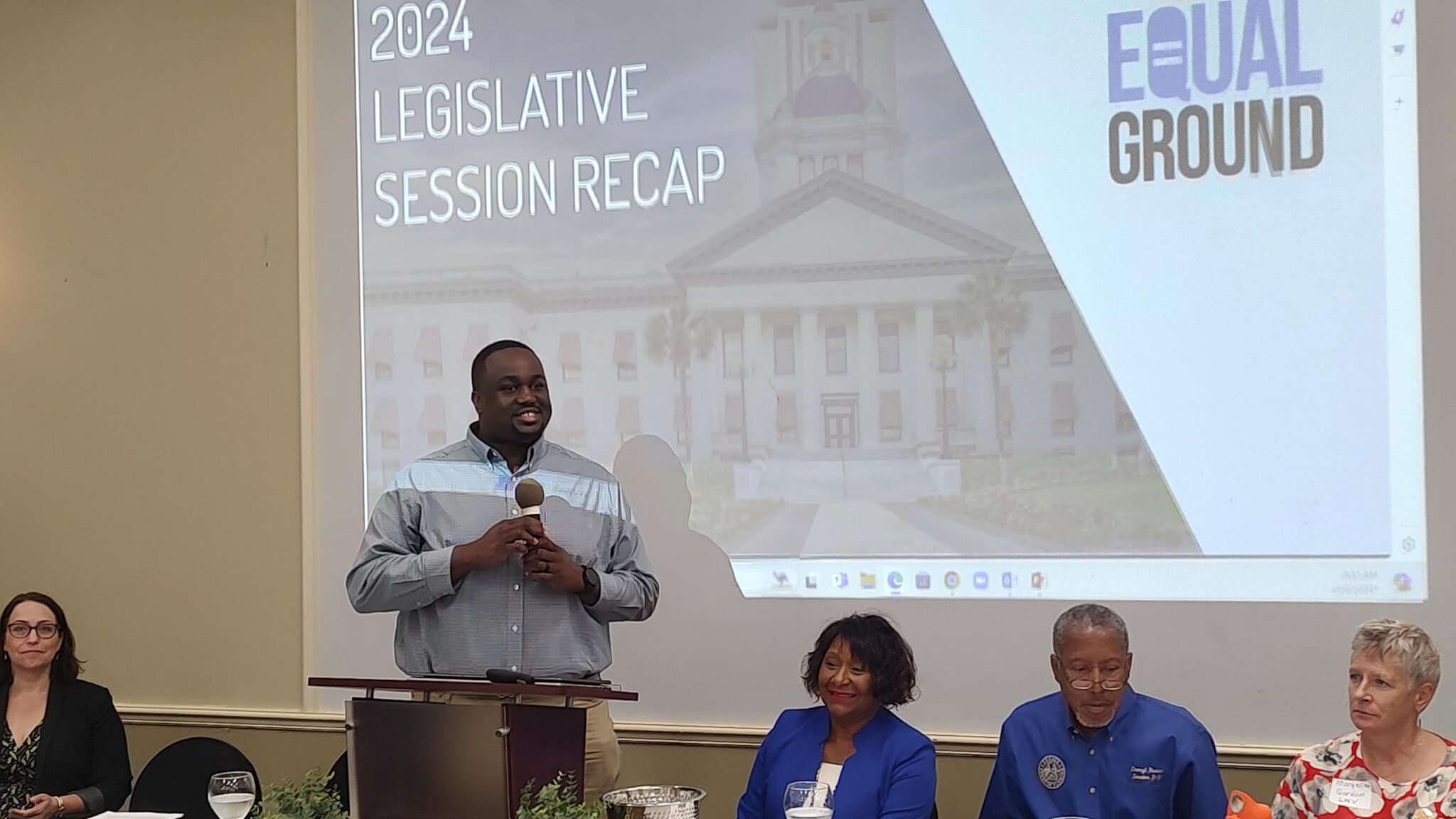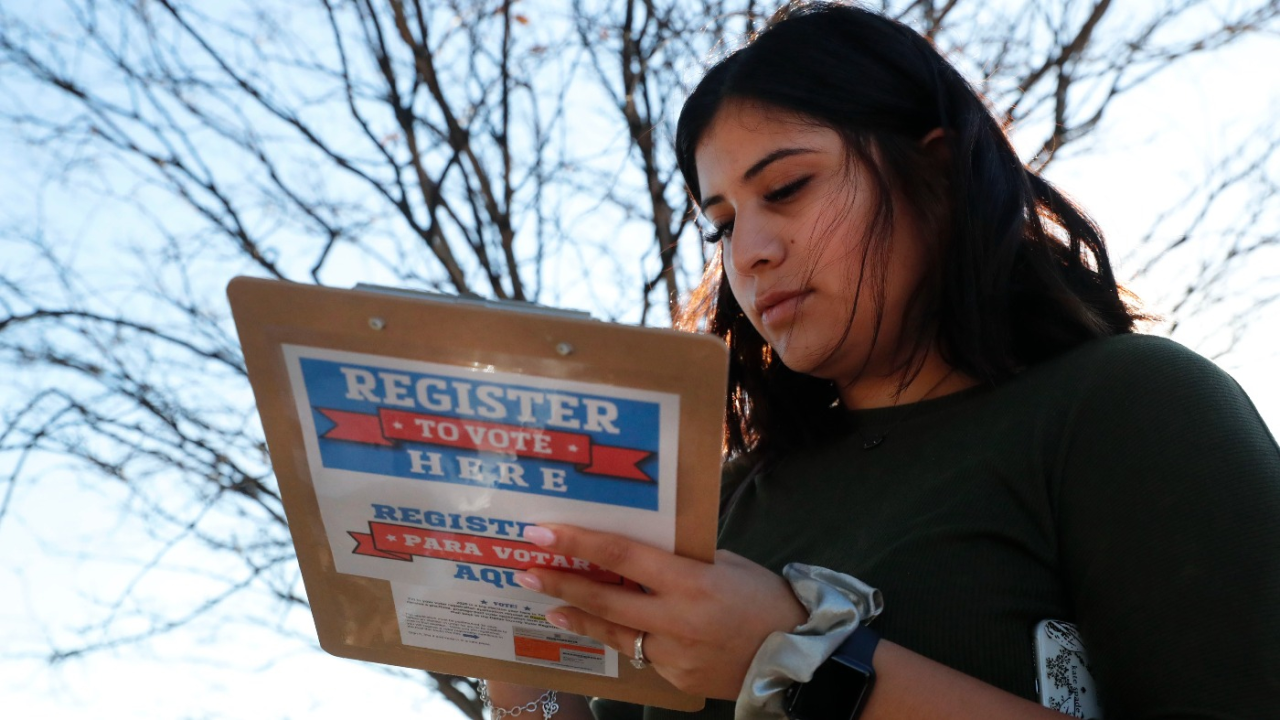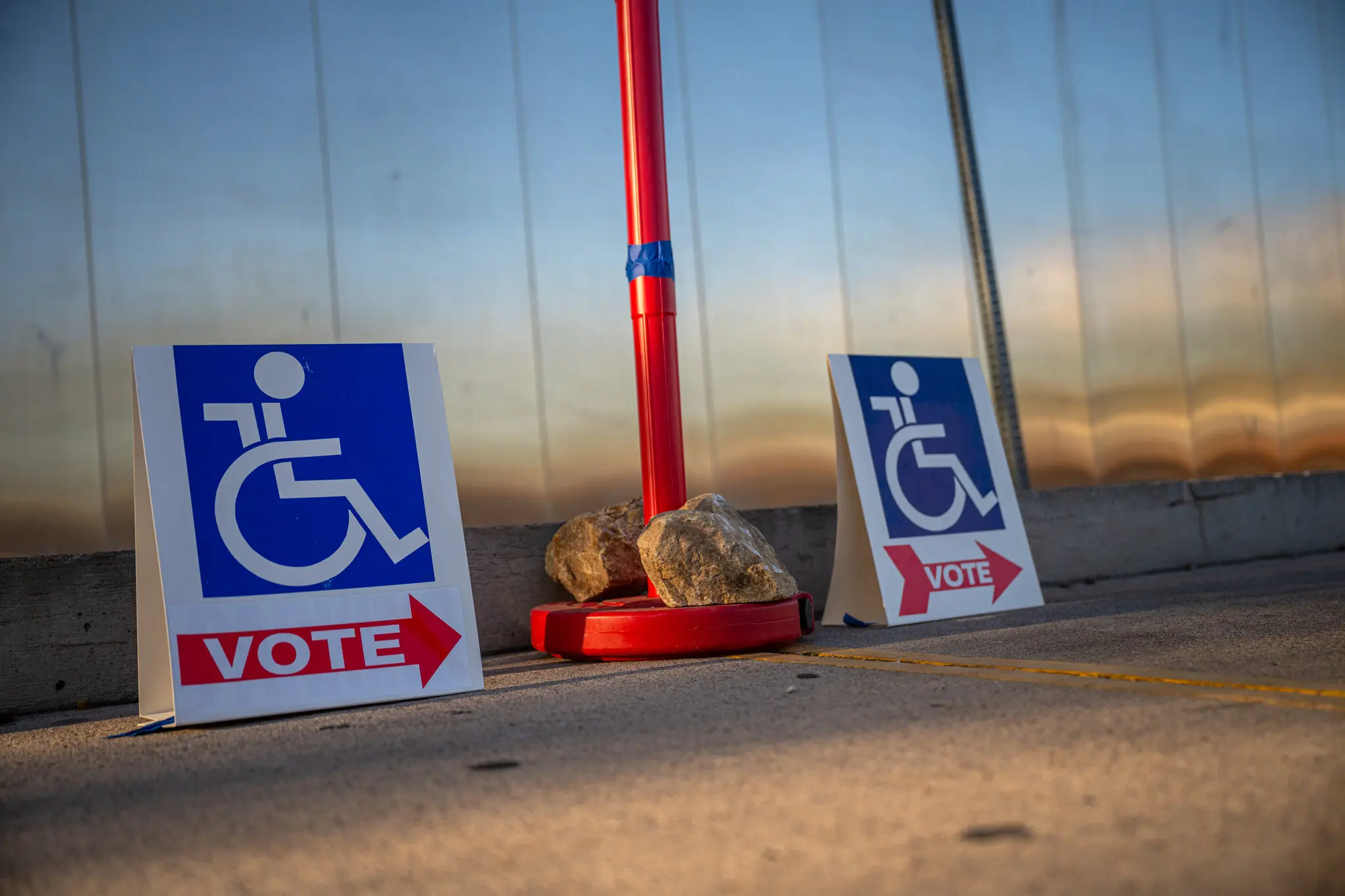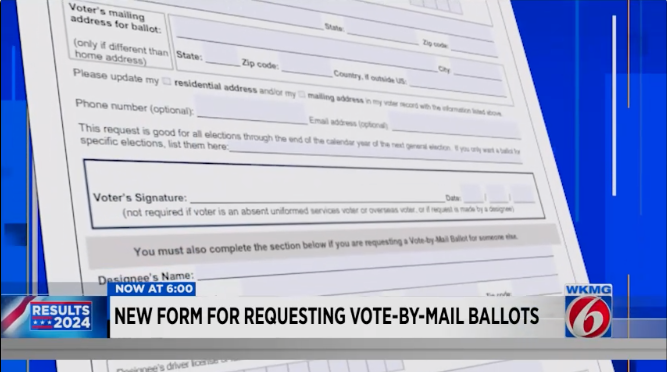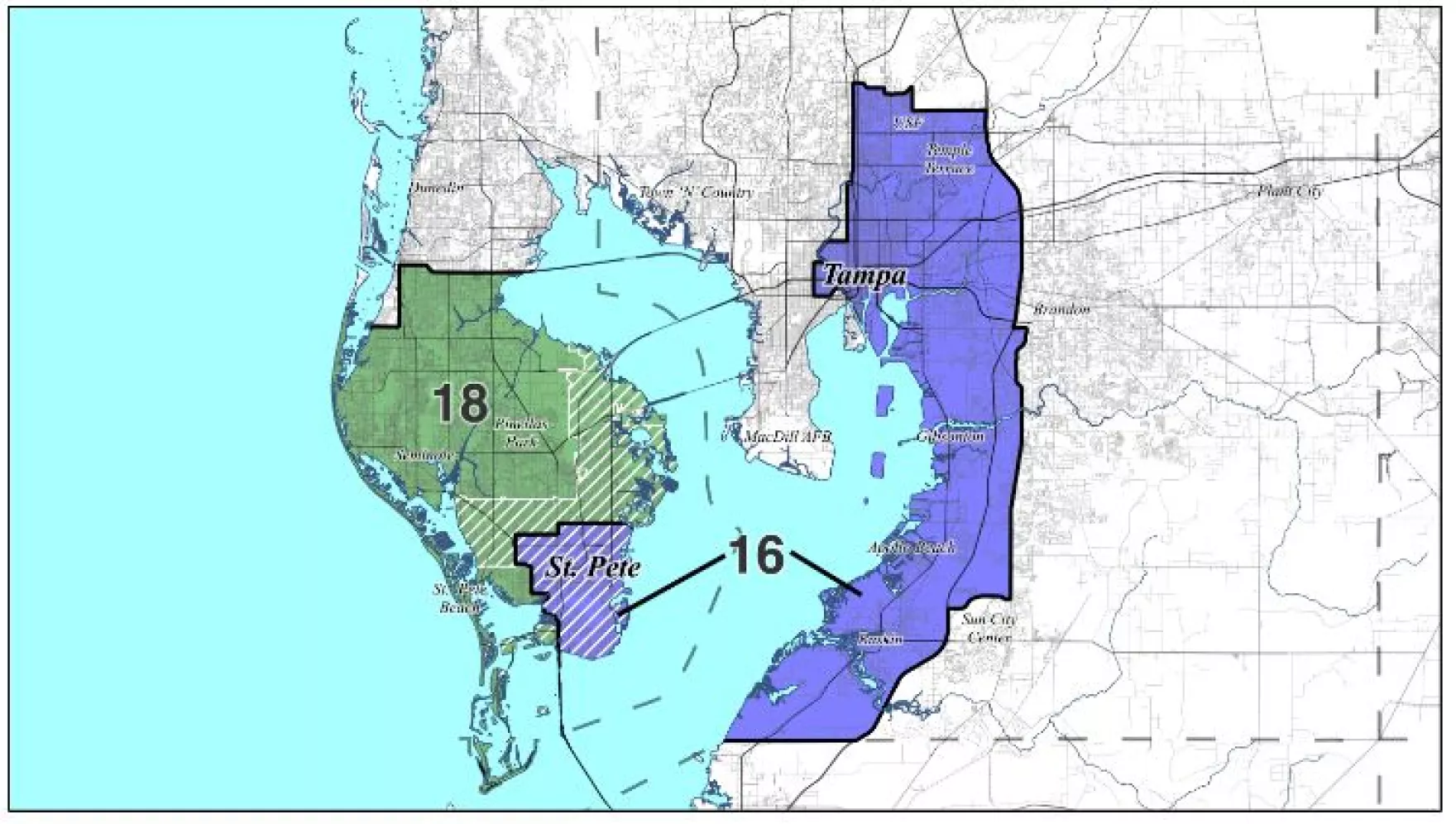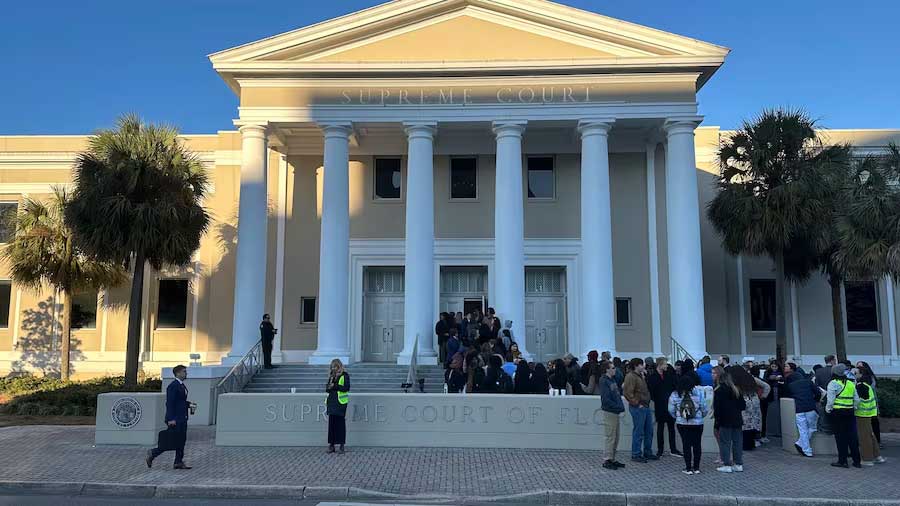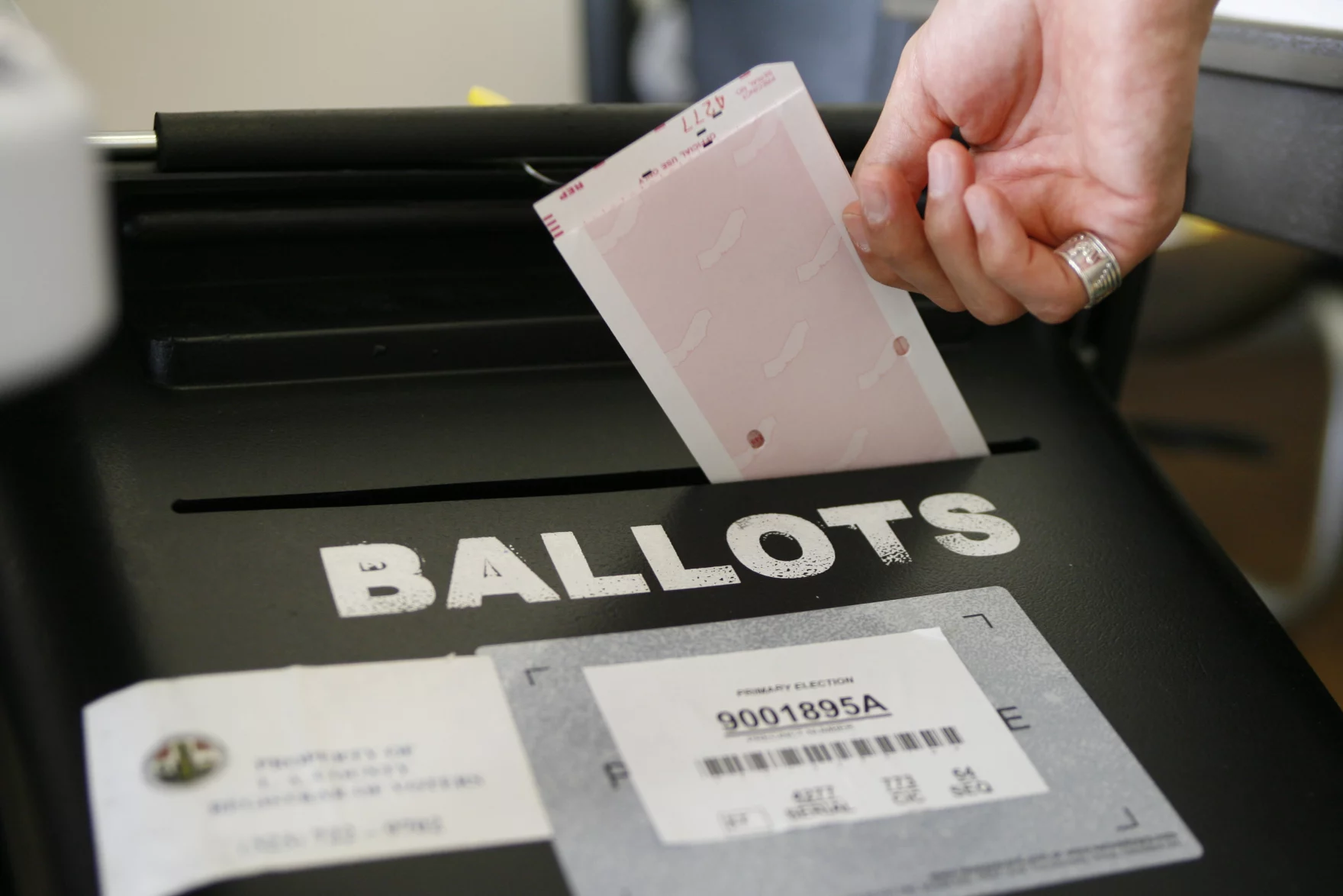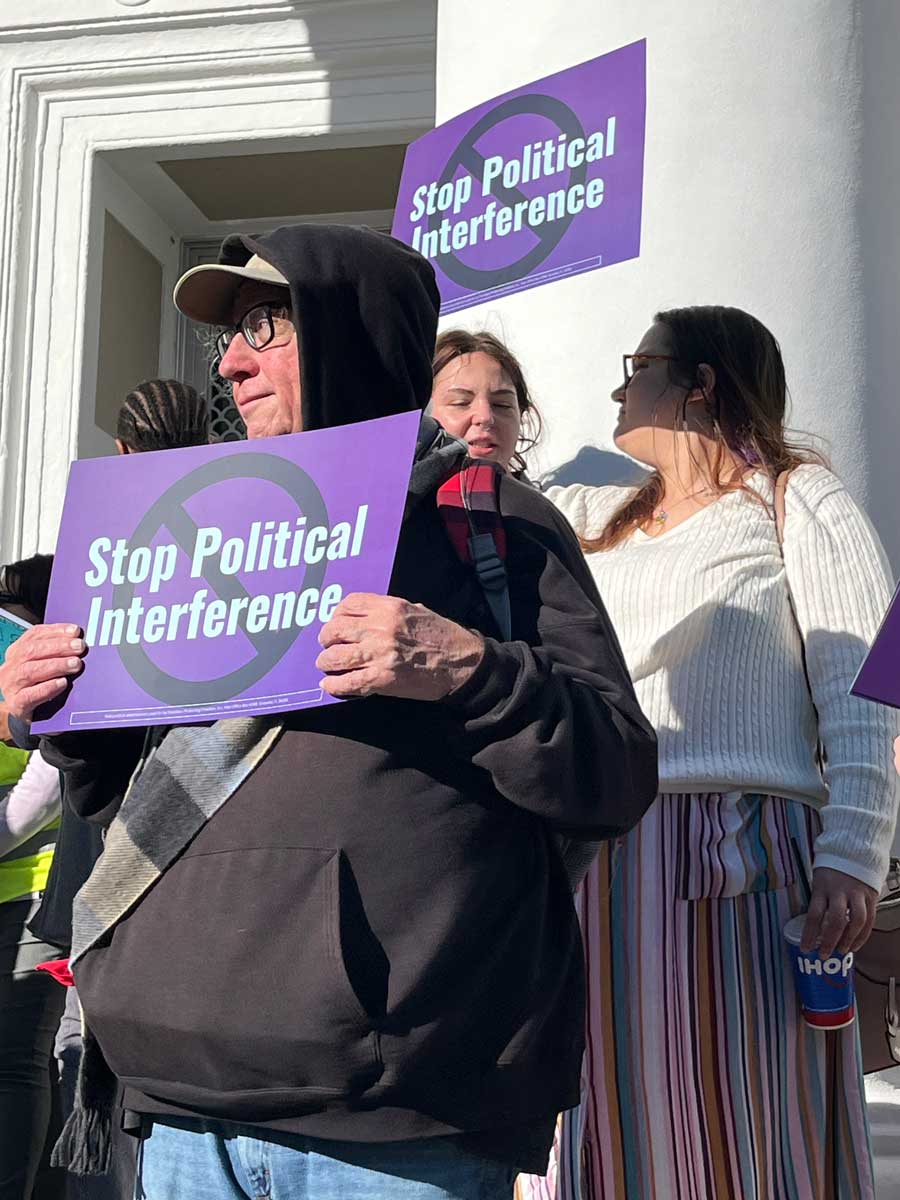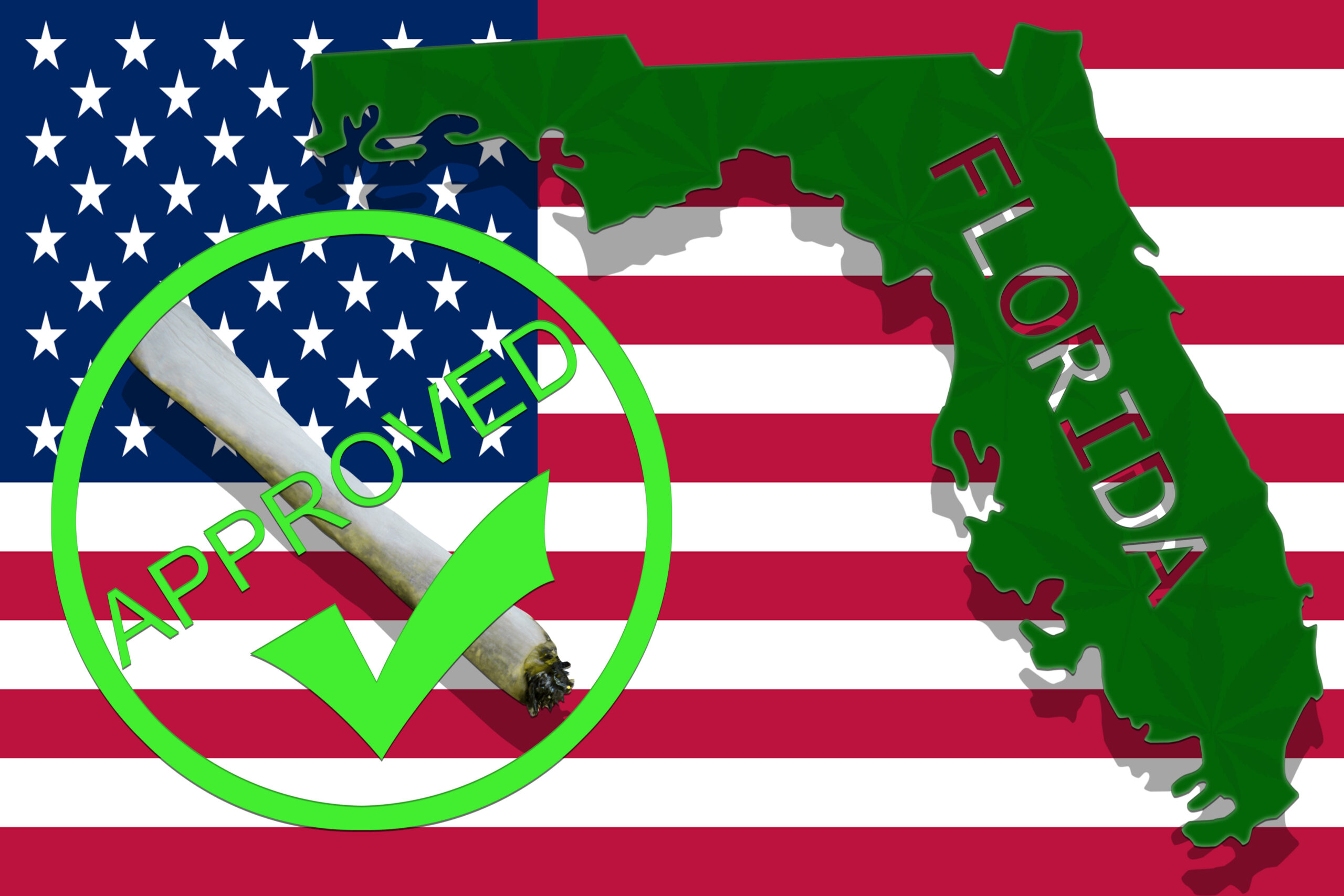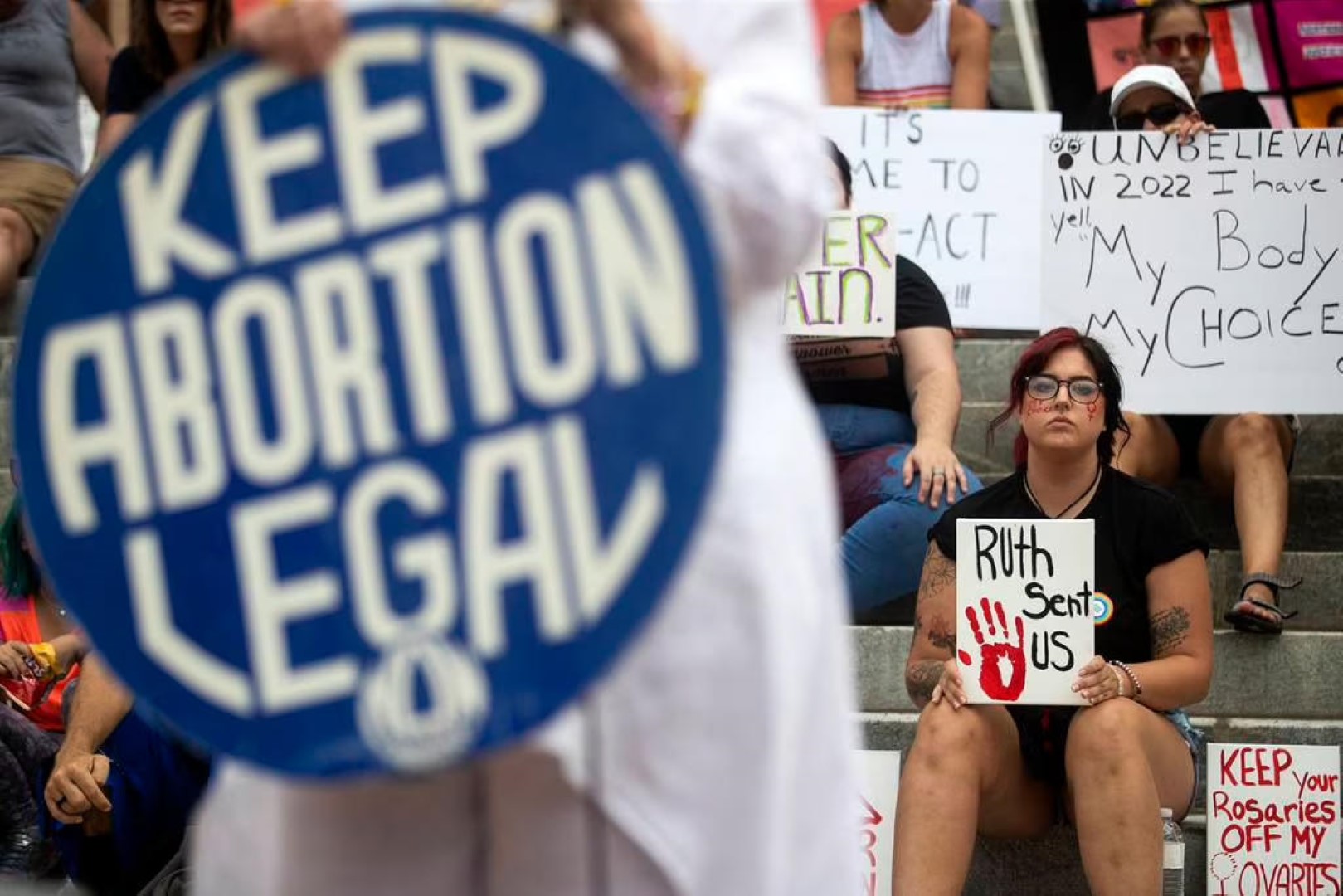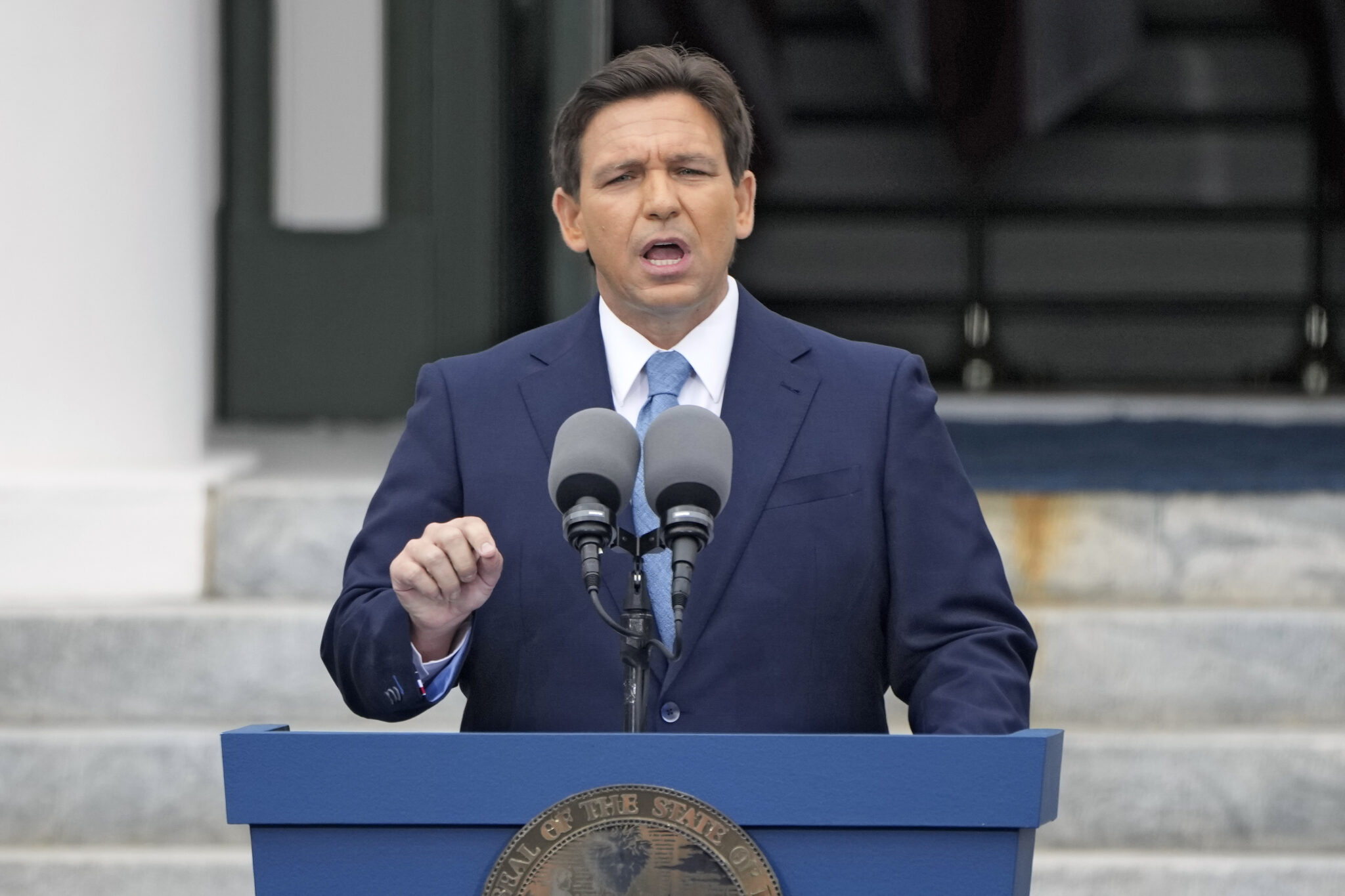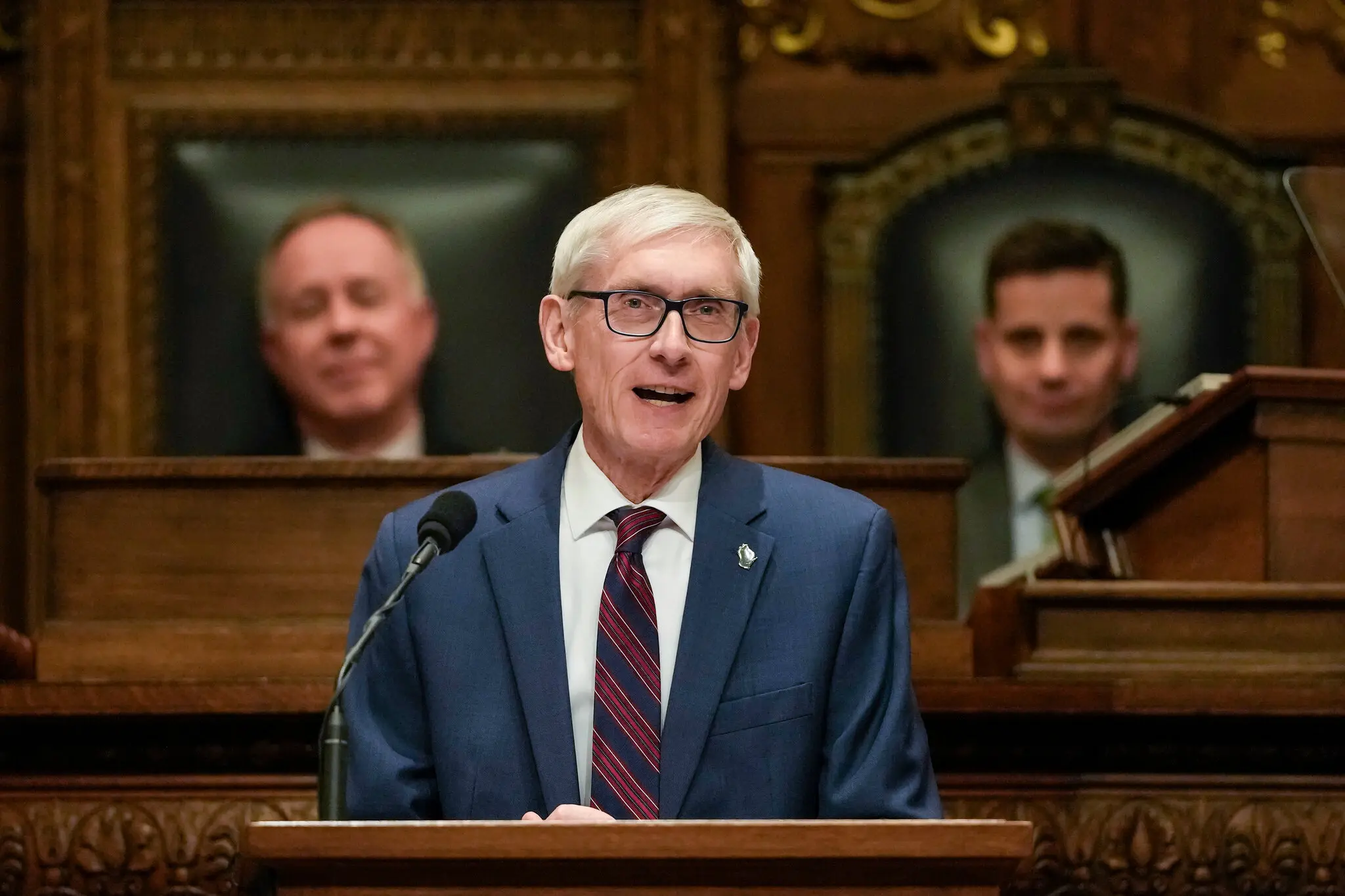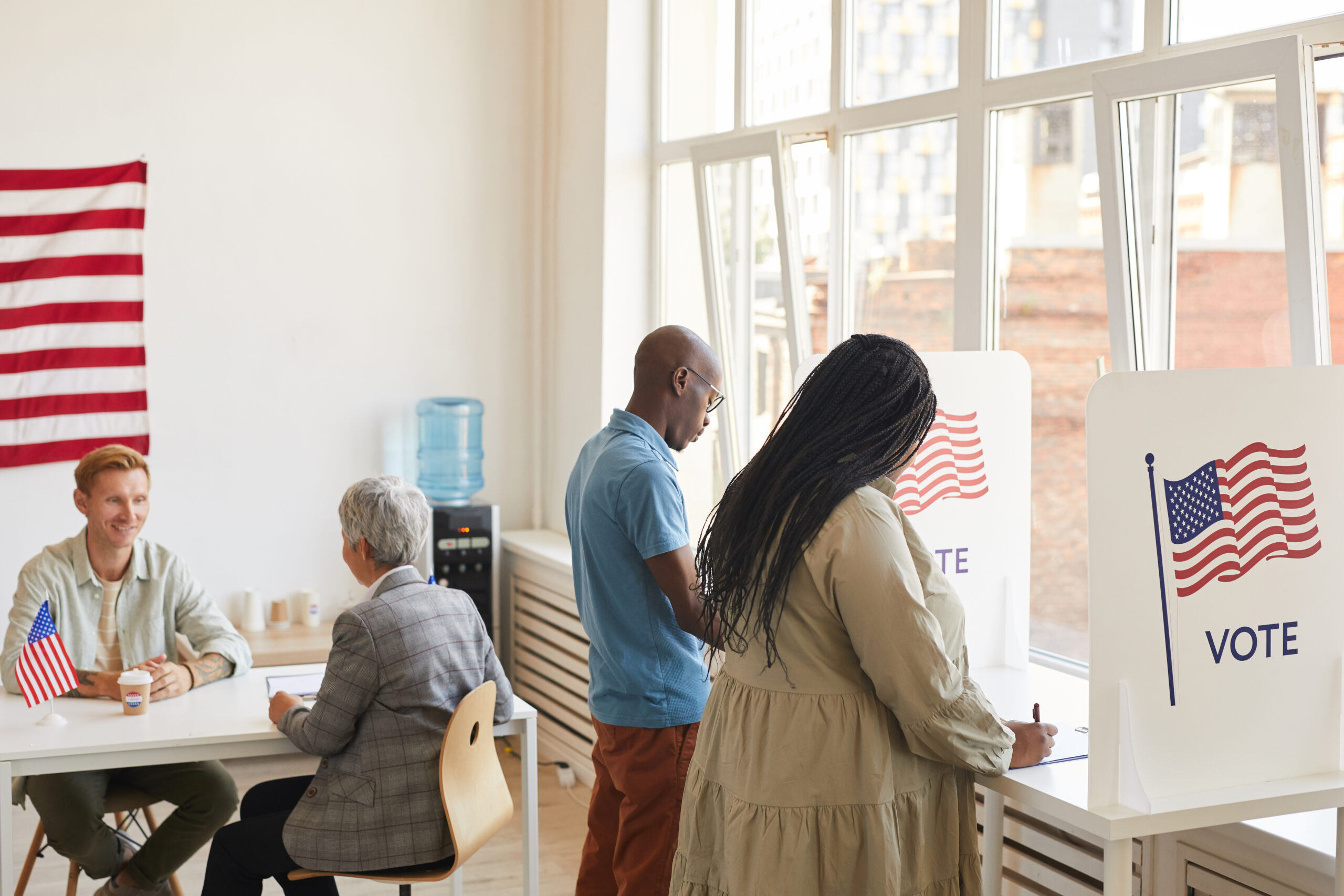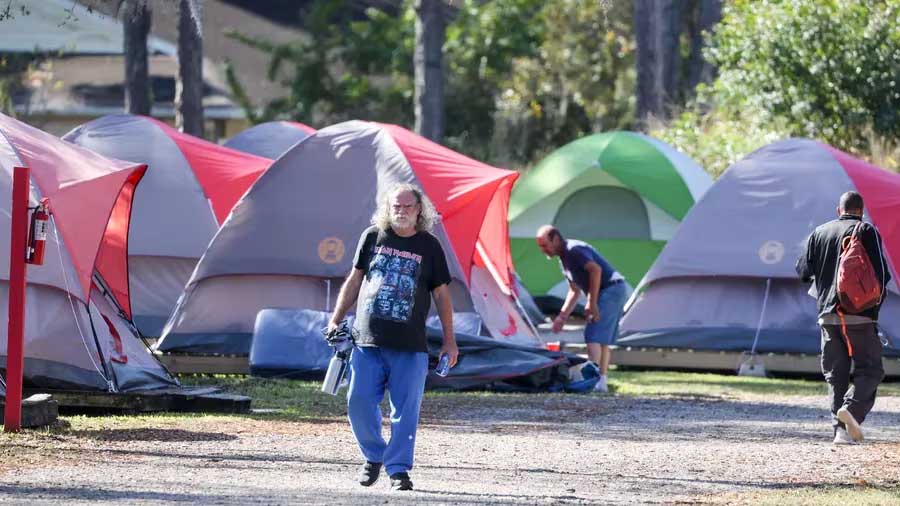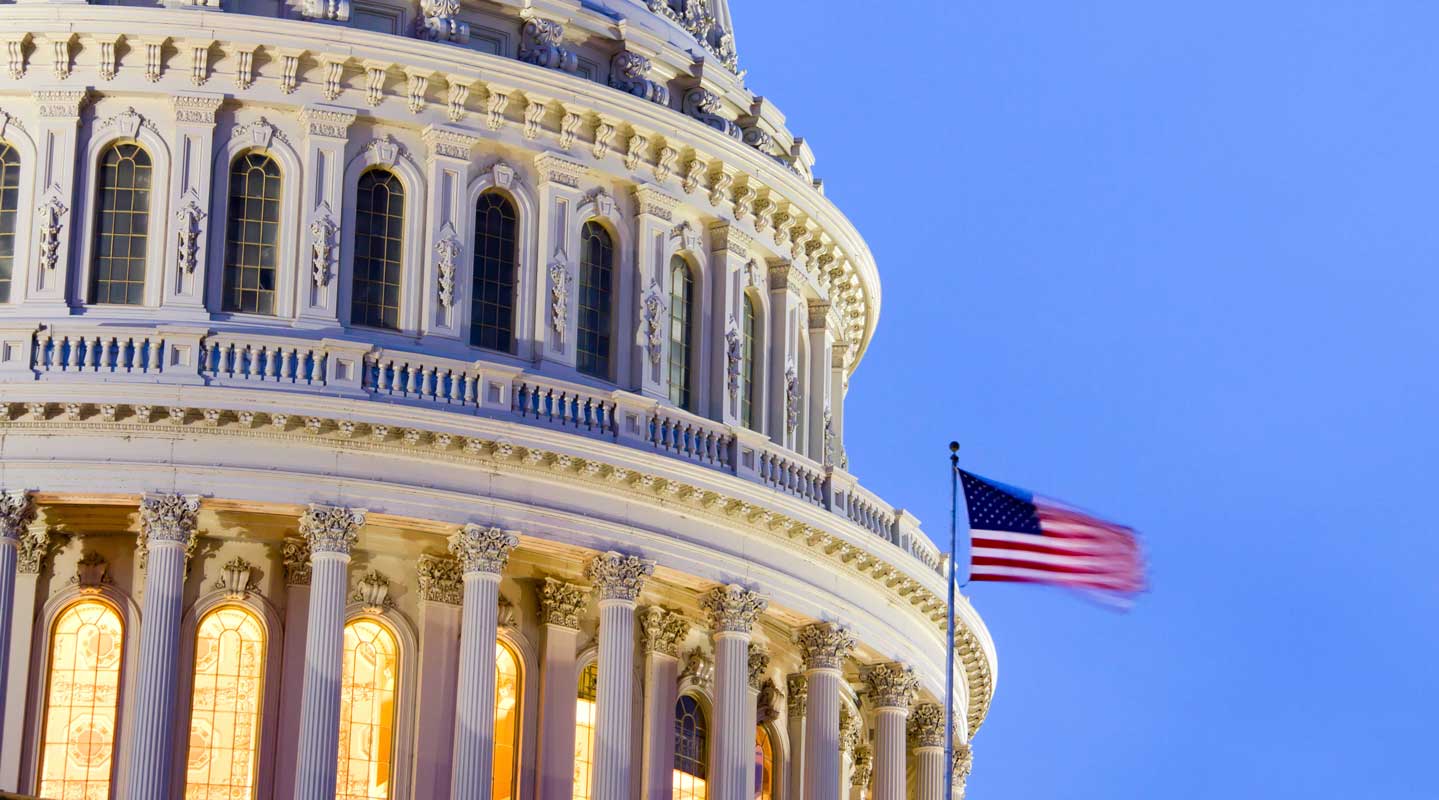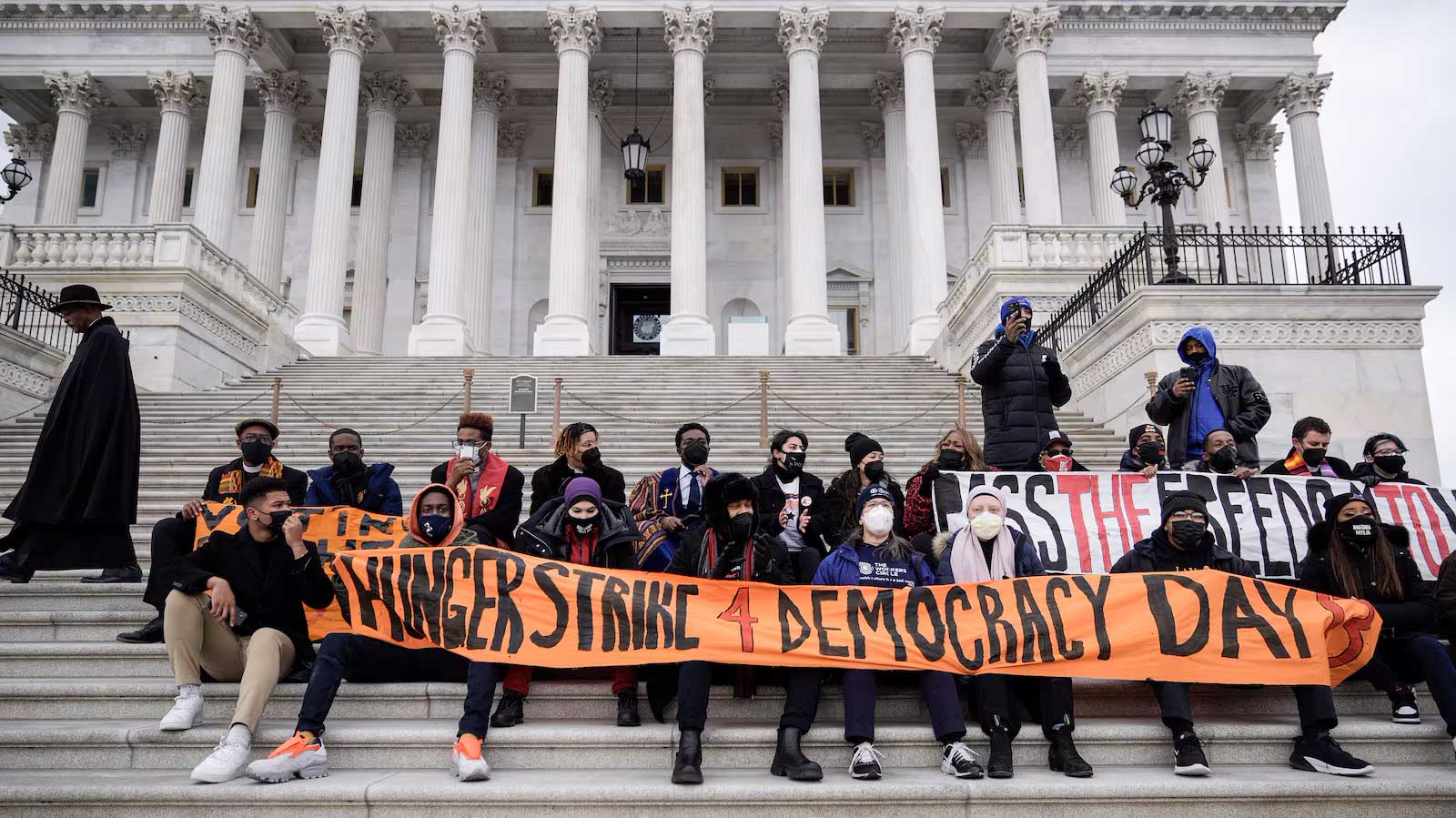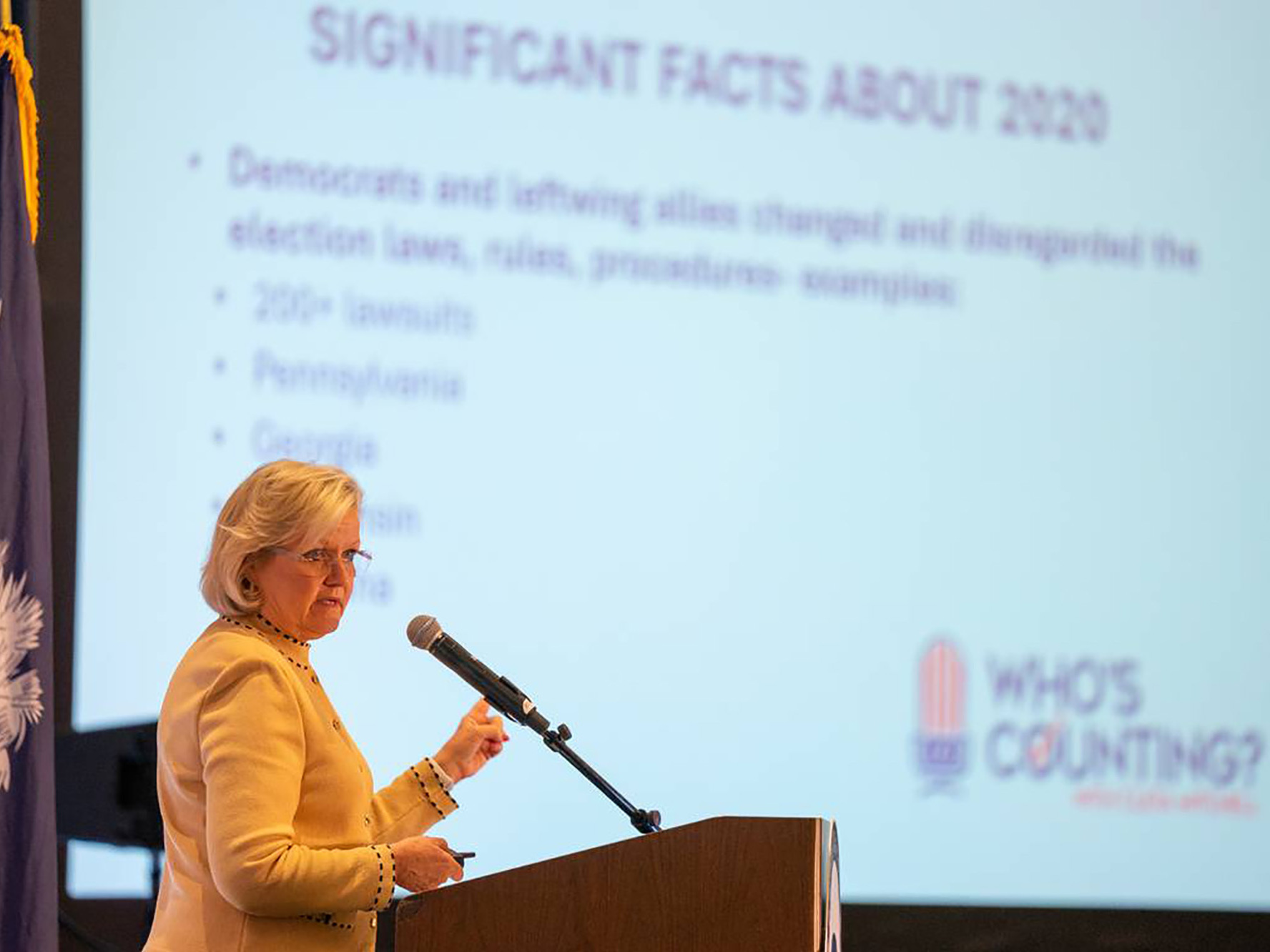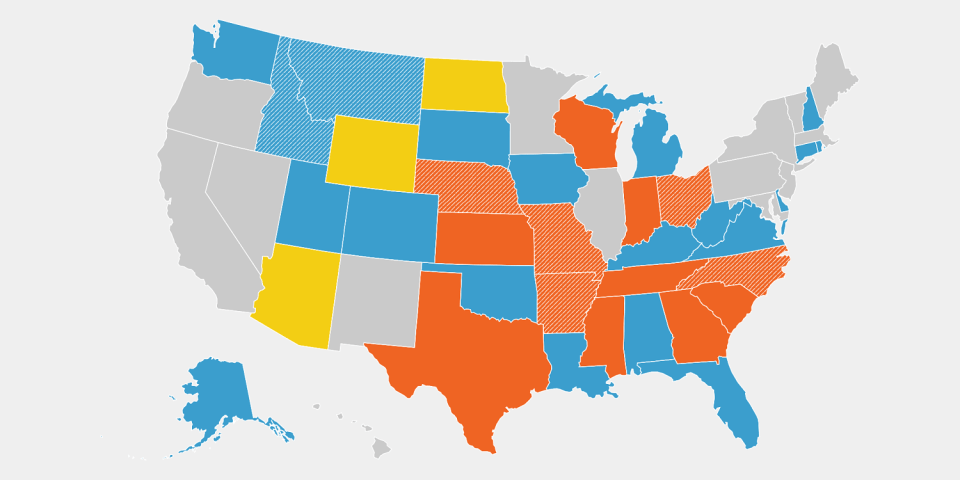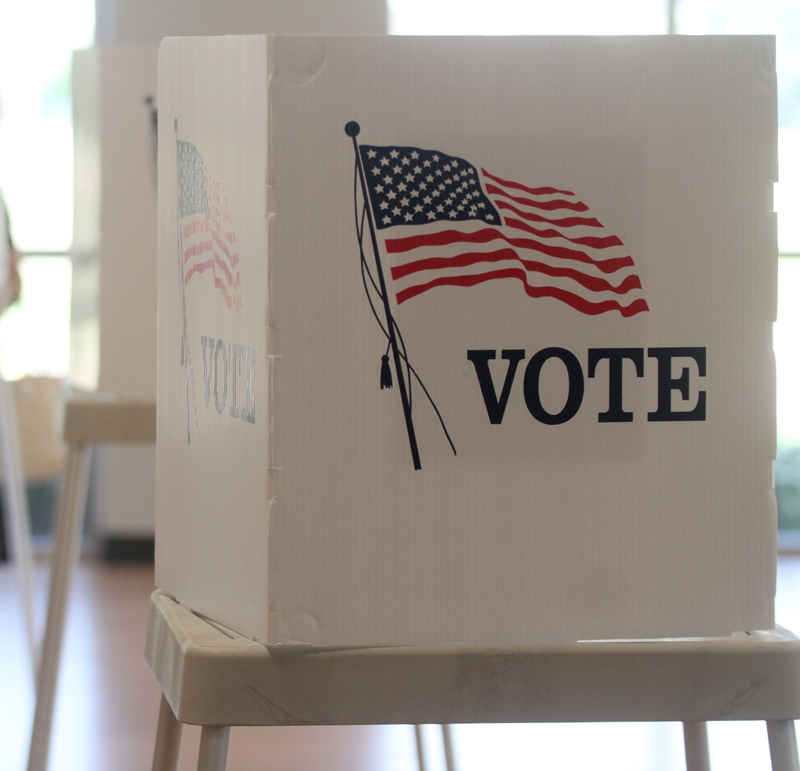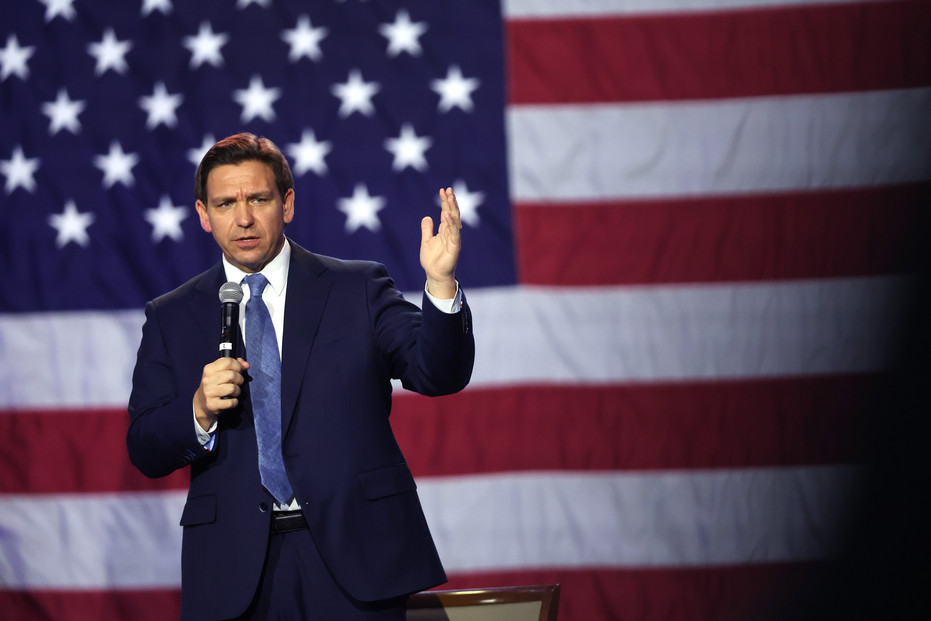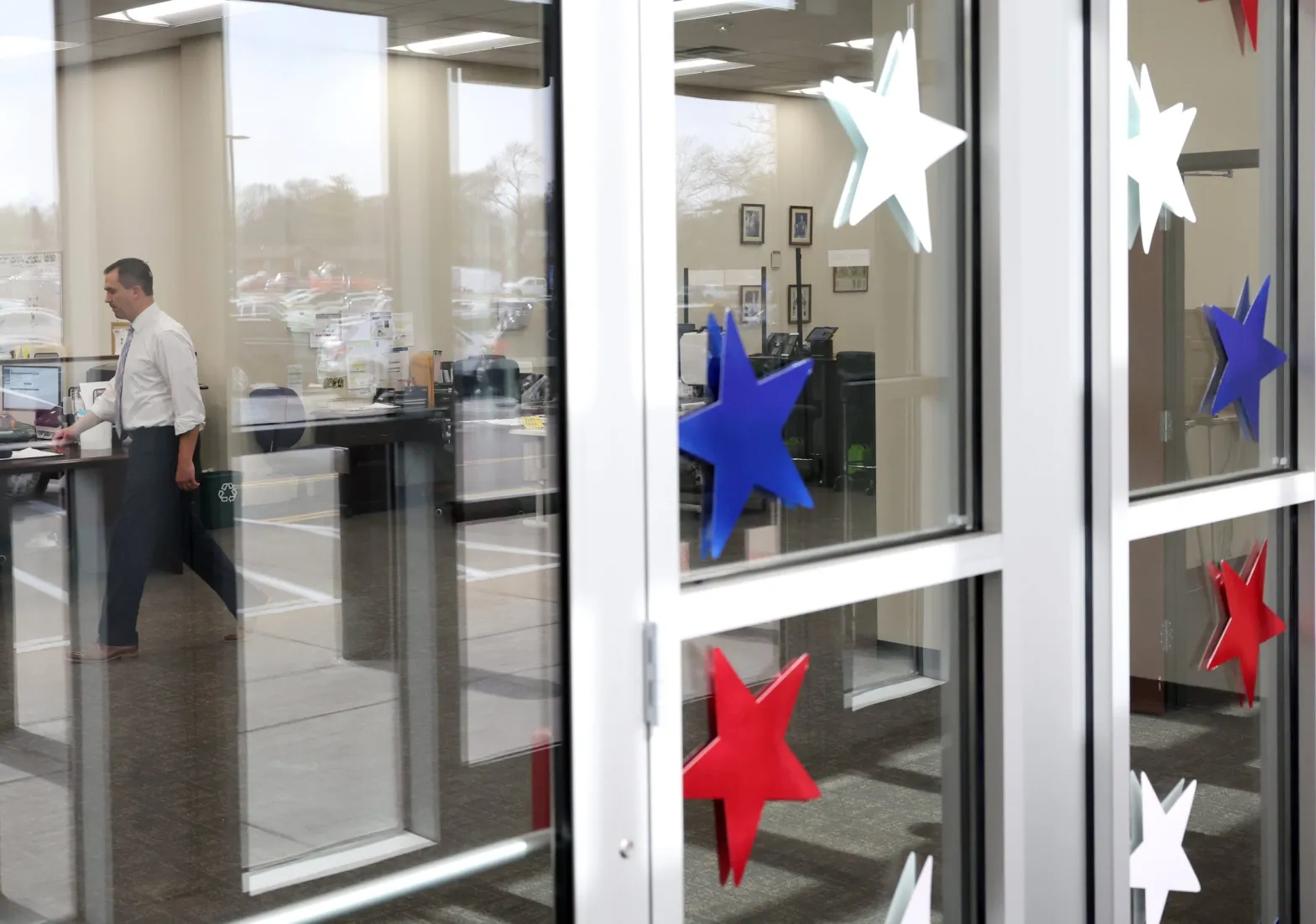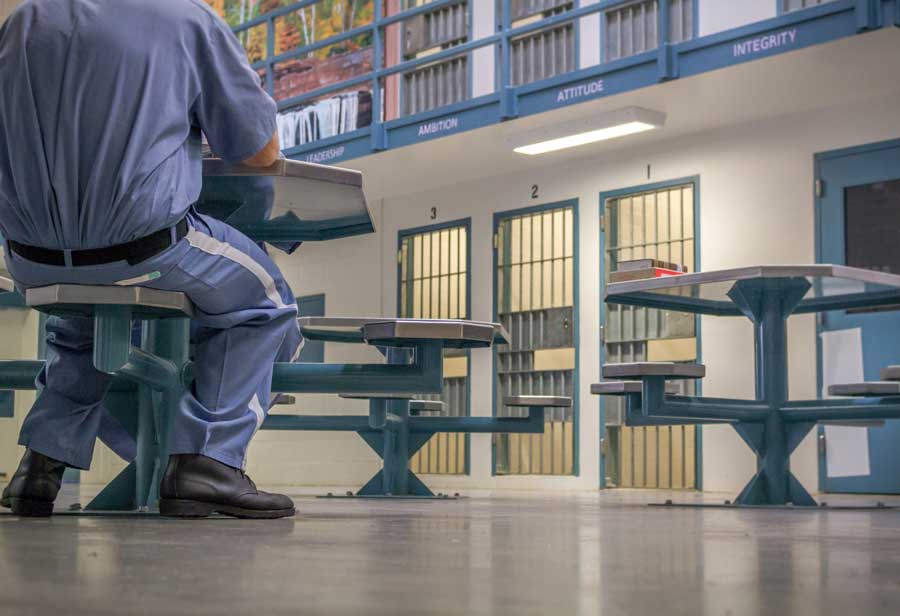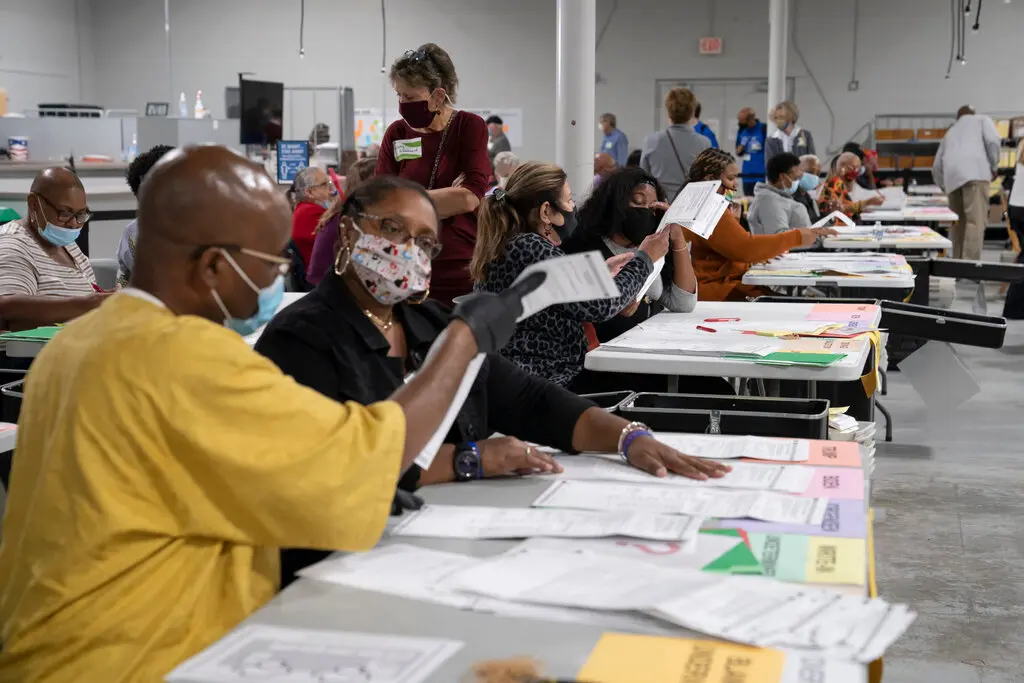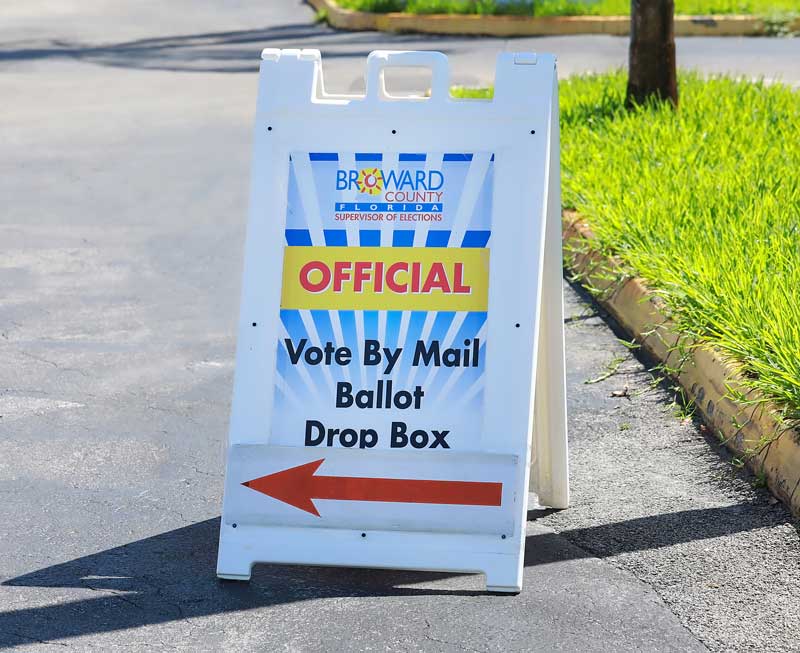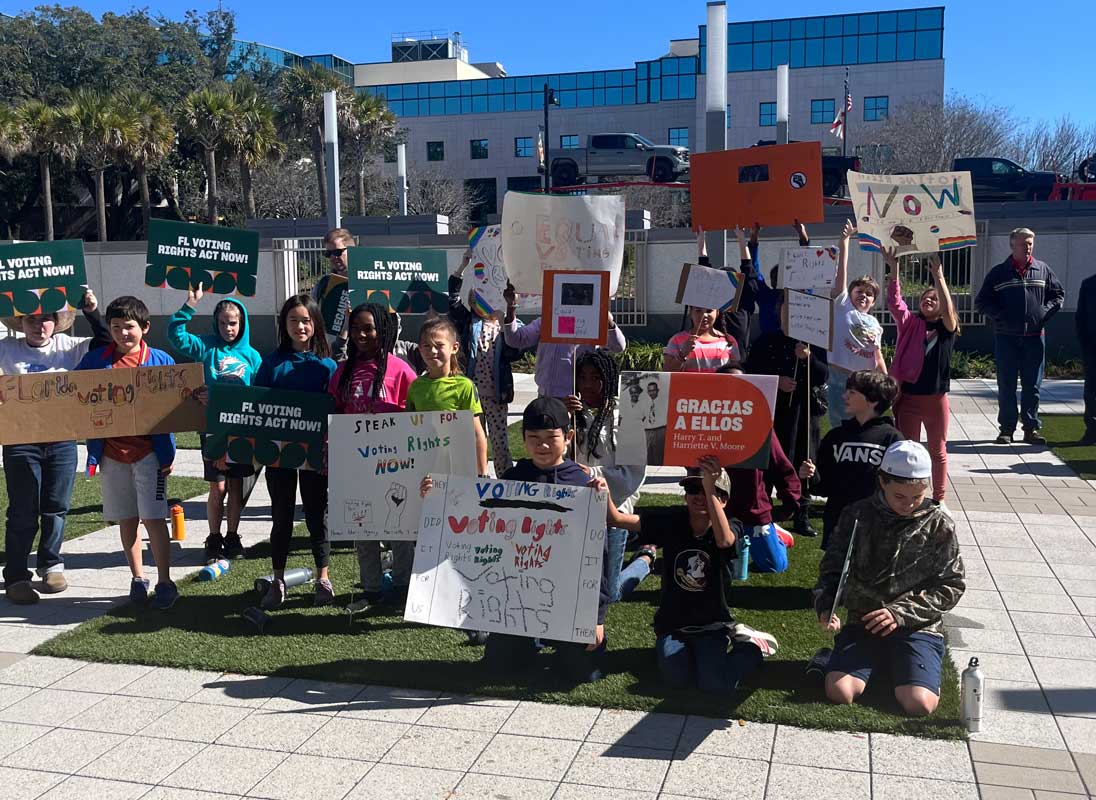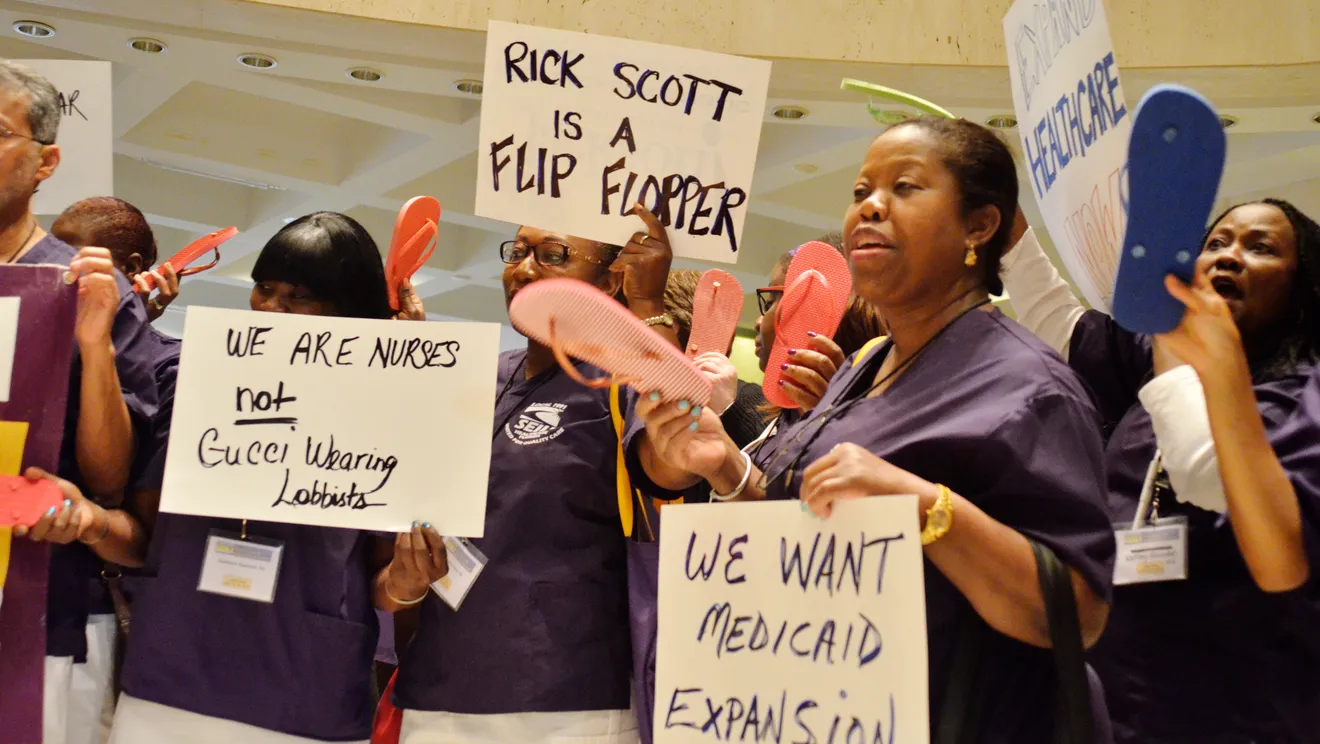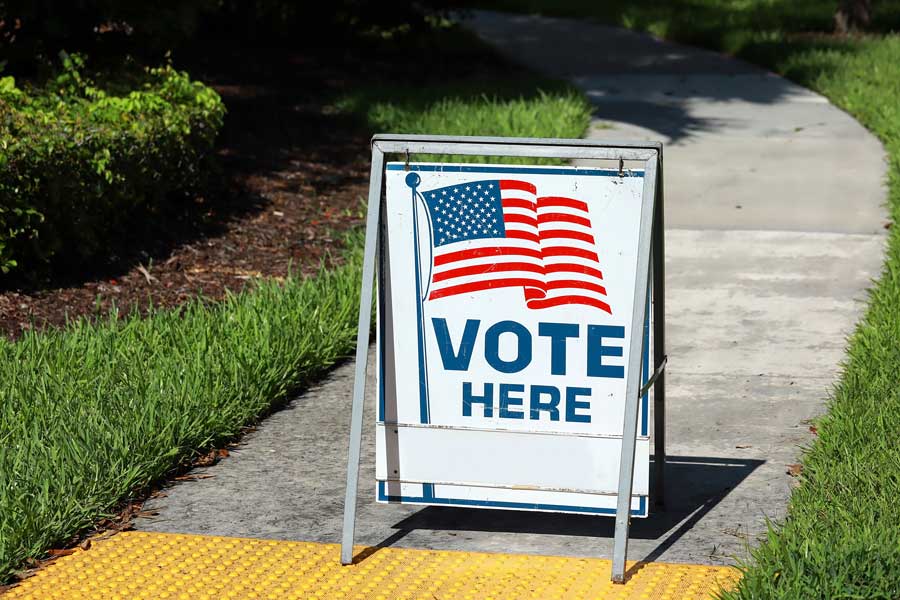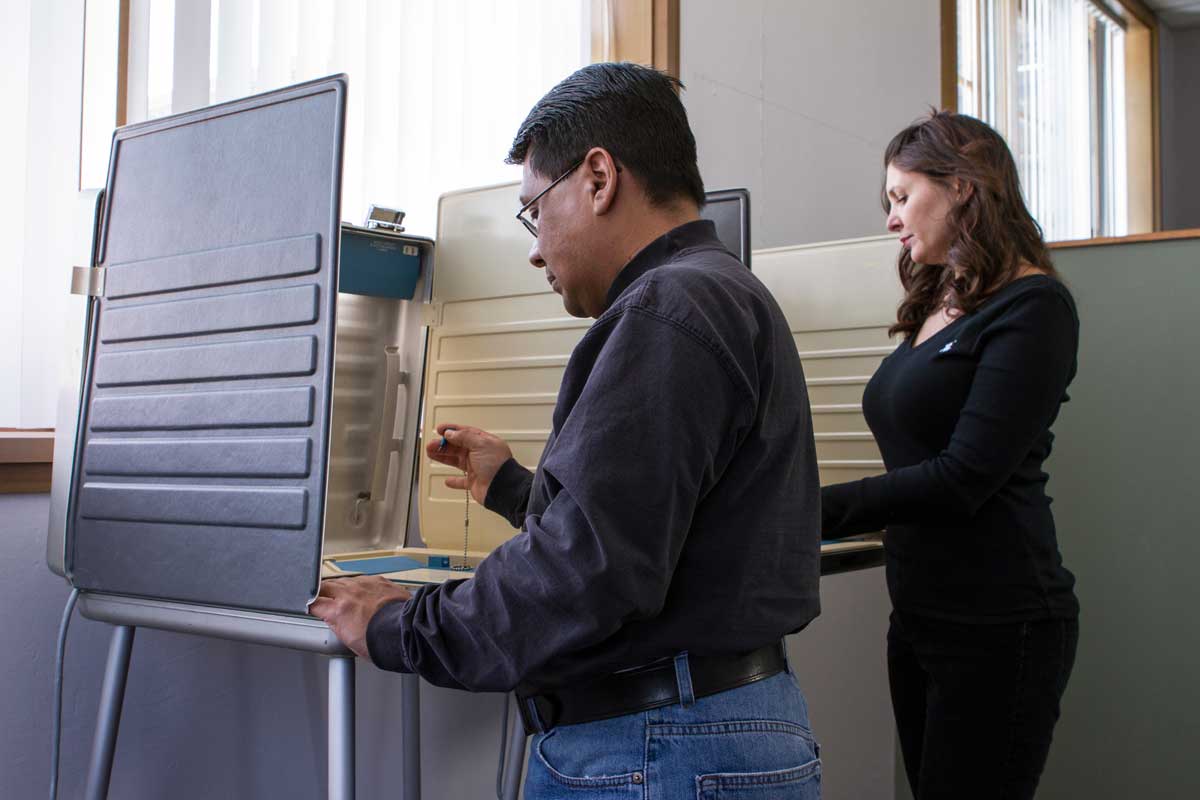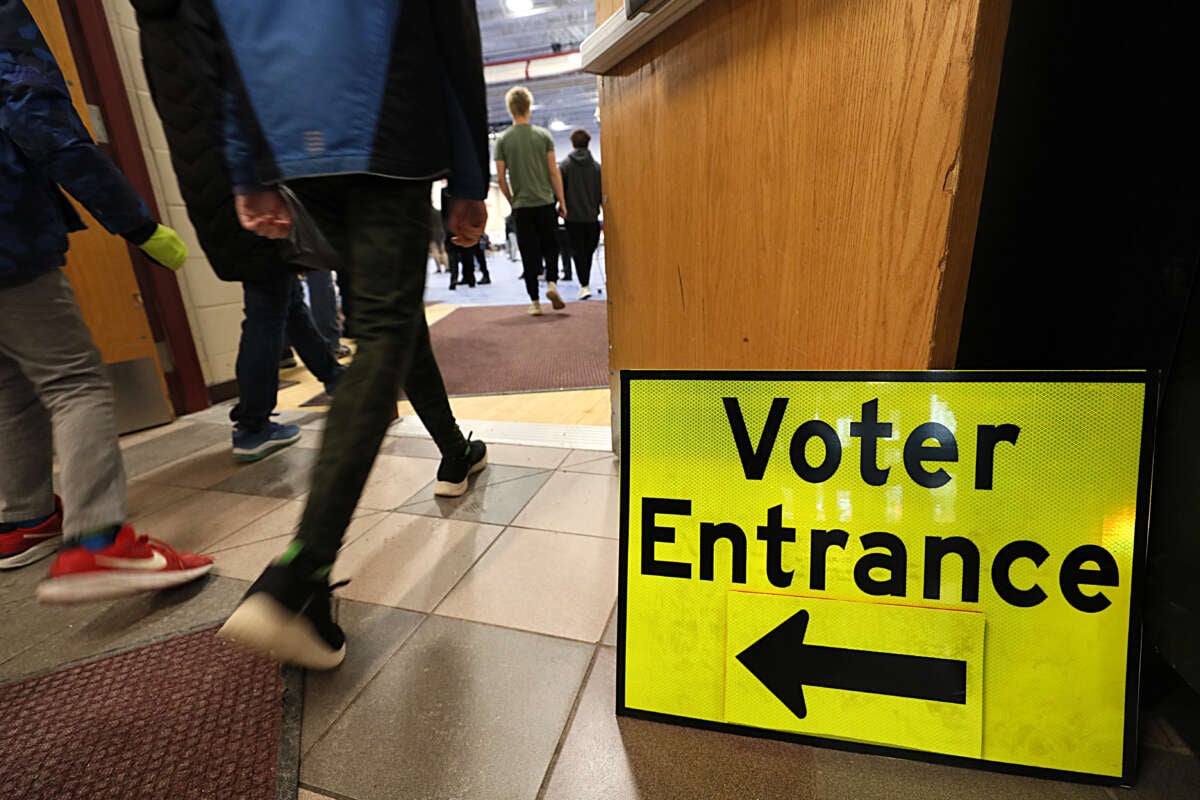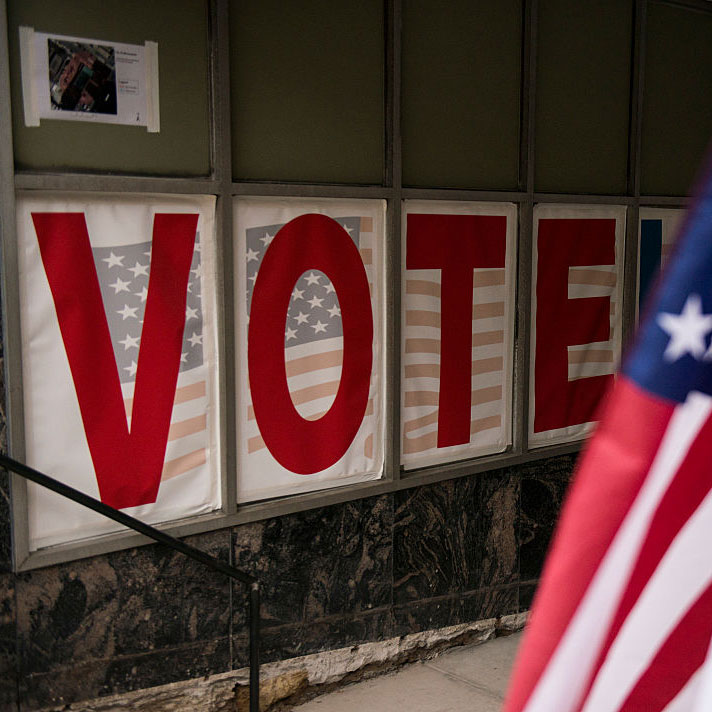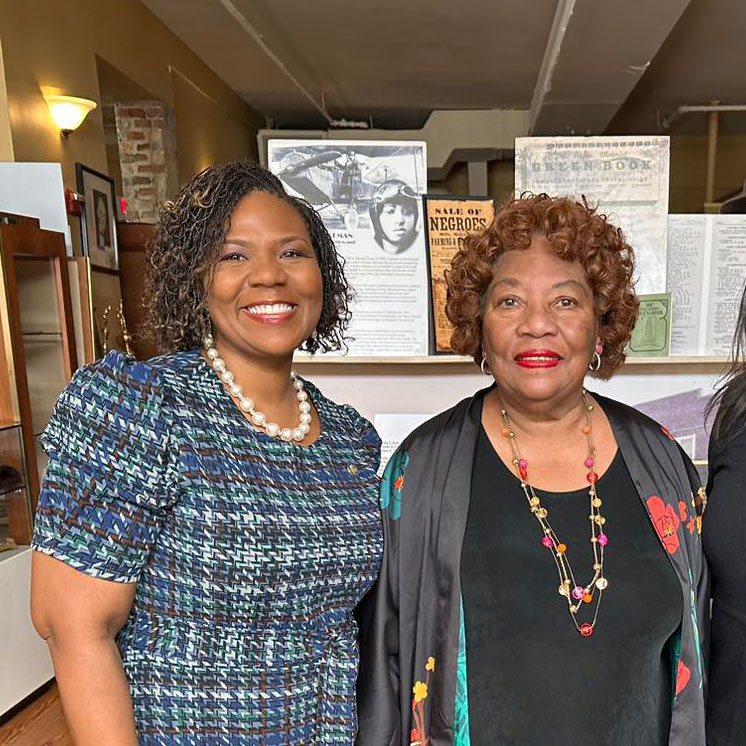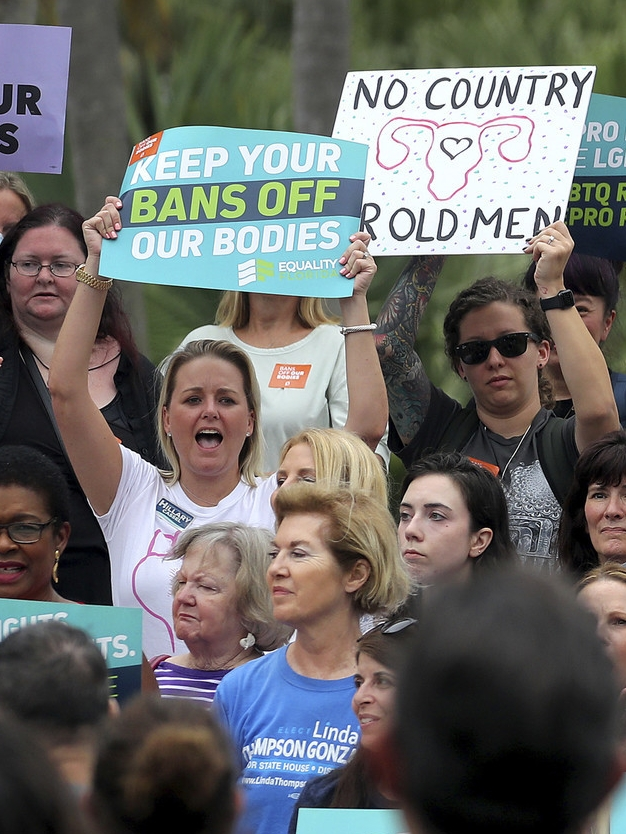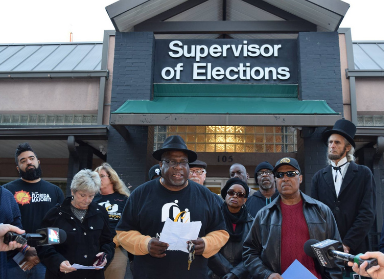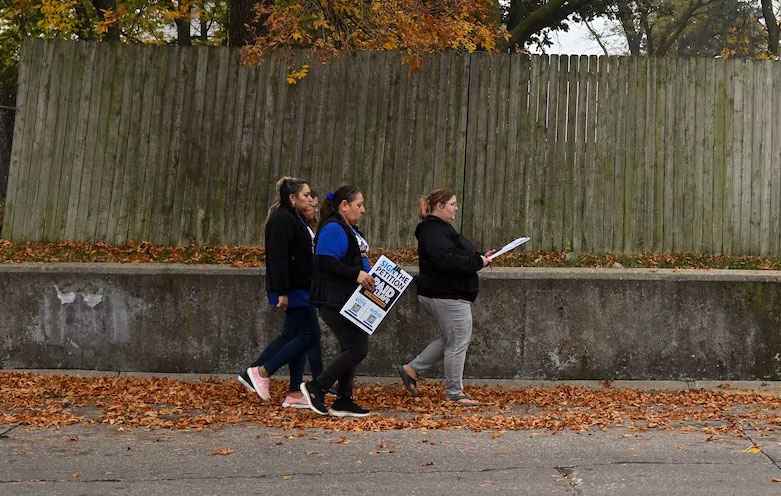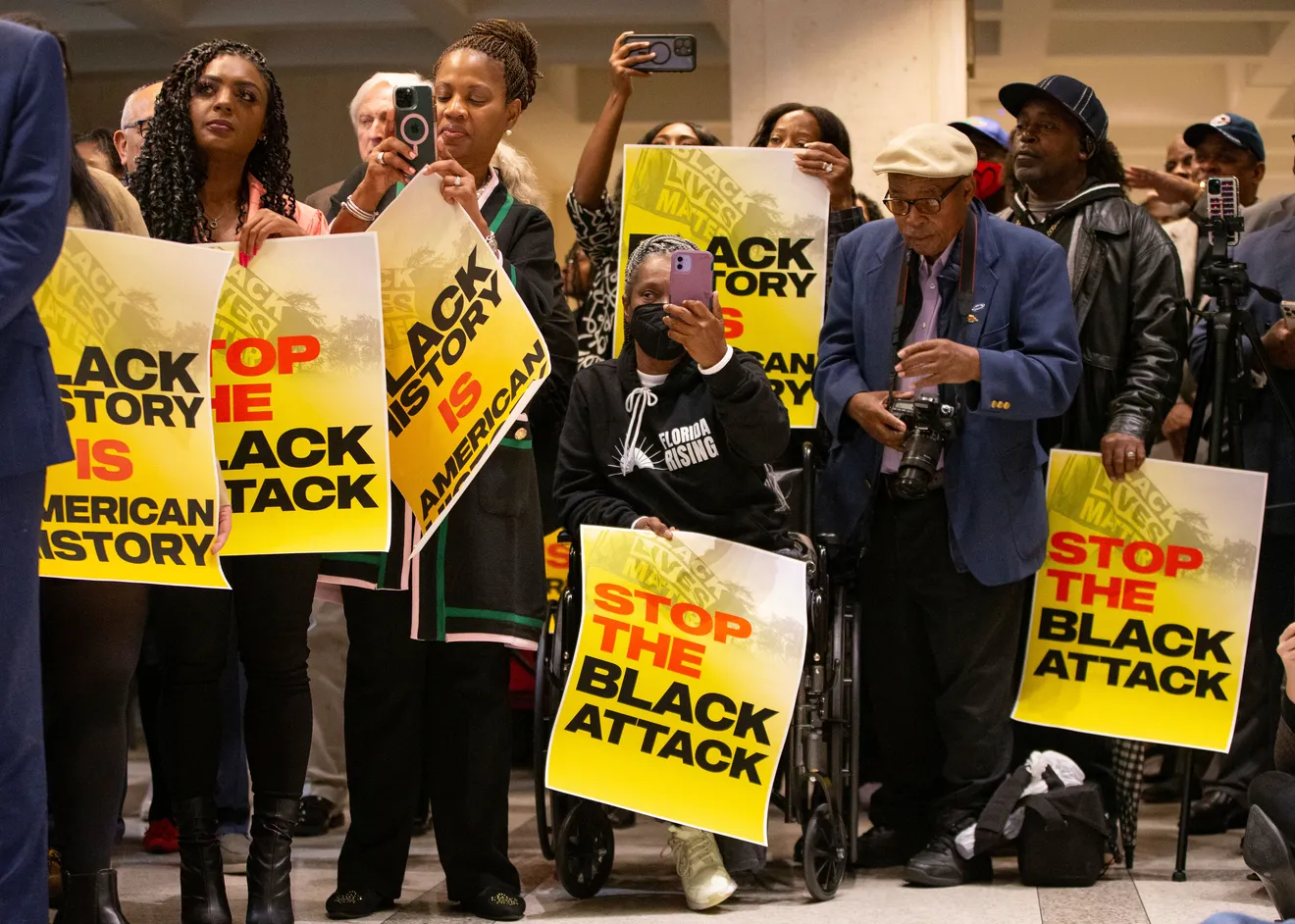WASHINGTON (AP) — Democratic officials in 19 states filed a lawsuit against President Donald Trump’s attempt to reshape elections across the U.S., calling it an unconstitutional invasion of states’ clear authority to run their own elections.
Thursday’s lawsuit is the fourth against the executive order issued just a week ago. It seeks to block key aspects of it, including new requirements that people provide documentary proof of citizenship when registering to vote and a demand that all mail ballots be received by Election Day.
“The President has no power to do any of this,” the state attorneys general wrote in court documents. “The Elections EO is unconstitutional, antidemocratic, and un-American.”
White House spokesperson Harrison Fields responded to the lawsuit Friday, calling the proof-of-citizenship requirements “common sense” and objections from Democrats “insane.”
“The Trump administration is standing up for free, fair, and honest elections and asking this basic question is essential to our Constitutional Republic,” he said in a statement.
WASHINGTON (AP) — Democratic officials in 19 states filed a lawsuit against President Donald Trump’s attempt to reshape elections across the U.S., calling it an unconstitutional invasion of states’ clear authority to run their own elections.
Thursday’s lawsuit is the fourth against the executive order issued just a week ago. It seeks to block key aspects of it, including new requirements that people provide documentary proof of citizenship when registering to vote and a demand that all mail ballots be received by Election Day.
“The President has no power to do any of this,” the state attorneys general wrote in court documents. “The Elections EO is unconstitutional, antidemocratic, and un-American.”
White House spokesperson Harrison Fields responded to the lawsuit Friday, calling the proof-of-citizenship requirements “common sense” and objections from Democrats “insane.”
“The Trump administration is standing up for free, fair, and honest elections and asking this basic question is essential to our Constitutional Republic,” he said in a statement.
The House of Representatives is expected to vote soon on the Safeguard American Voter Eligibility Act, a Republican-backed bill that would reshape the federal elections process.
Known as the SAVE Act, the proposed legislation would tighten voter registration requirements by mandating proof of citizenship for federal elections.
The bill was scheduled for a vote in early April, but on April 1, Speaker Mike Johnson canceled remaining votes for the week — pushing the timeline back.
Republicans argue the legislation will safeguard elections by ensuring non-citizens cannot vote — something President Donald Trump has repeatedly claimed is a major problem.
But elections experts say that non-citizen voting — which is already criminalized — is “vanishingly rare.” And they caution the bill will instead make voting more burdensome for American citizens, particularly married women and rural residents.
“The practical difficulties that this act would entail if it were passed aren’t small, even if the concept sounds unremarkable,” Justin Levitt, a constitutional law professor at Loyola Law School, told McClatchy News.
Here’s what to know about the SAVE Act.
Democratic lawmakers and civil rights groups are pushing a revised and expanded Harry T. and Harriette V. Moore Florida Voting Rights Act, including permanent vote-by-mail requests and other provisions which Republicans will surely reject.
Florida House Representative LaVon Bracy Davis, an Orlando Democrat, and State Senator Tracie Davis, a Jacksonville Democrat, recently announced the filing of the Harry T. and Harriette V. Moore Florida Voting Rights Act (HB 1409, SB 1582). Senator Davis will proudly carry this legislation during the 2025 legislative session in honor of her friend and colleague, Senator Geraldine Thompson, who tragically passed away in February.
The Democrats say the landmark legislation will position Florida as a voter-friendly state – ensuring the registration and voting process for Floridians before, during, and after they fulfill their civic duty at the ballot box is accessible and straightforward.
he first months of the new Trump administration have been dizzying with the breadth of executive actions to slash the social safety net, further enrich the wealthy, and inflame division based on outdated notions about culture and identity. While White House policy pronouncements have come with flair and political theater – such as the president signing orders on a Jumbotron – in Congress there are quieter but equally pernicious efforts aimed at silencing the votes and voices of communities across the country.
One such piece of legislation is the so-called Safeguard American Voter Eligibility Act, or Save Act, which would require Americans seeking to register or re-register to vote to prove US citizenship. This dangerous bill would in effect strip millions of Americans of their access to the vote, while making the voting process more difficult and burdensome for everyone else. Rather than make our elections more secure, the Save Act would disenfranchise millions based on nothing but a series of debunked conspiracy theories.
WASHINGTON (AP) — With the stroke of his pen, President Donald Trumprestructured the way Americans can register to vote and when they can cast their ballots. Or did he?
After the president signed his executive order Tuesday calling for broad election changes, such as proof of citizenship for voter registration and an Election Day return deadline for mailed ballots, election officials, state attorneys general and legal experts said it would face legal challenges for encroaching on state powers outlined in the U.S. Constitution.
The order is “unlawful,” Colorado Democratic Secretary of State Jena Griswold said in a statement.
“This cannot be done through executive action,” said David Becker, a former U.S. Justice Department attorney who leads the nonprofit Center for Election Innovation and Research.
New Jersey Attorney General Matt Platkin said he expects his and other states will challenge the executive order, just as they have several other of Trump’s actions. He said he’s never seen a president threaten the integrity of state election rules like Trump did through his order.
A super PAC tied to billionaire Elon Musk has started spending in two deeply Republican House seats in Florida ahead of next week’s special elections, according to a new campaign finance report.
America PAC, which has not filed a financial disclosure form yet this year but was almost entirely funded by Musk last year, is spending $20,000 on “texting services” to boost Florida Chief Financial Officer Jimmy Patronis in the 1st Congressional District and state Sen. Randy Fine in the 6th District, according to a report filed with the Federal Election Commission on Tuesday night, which was first reported by The New York Times.
America PAC’s spending in the special elections is minimal so far compared with the millions of dollars that have already been spent there. But it is a sign that Musk may be paying attention to the contests, as he continues to ramp up his political engagement while he serves as a key White House adviser. America PAC has also spent millions of dollars on next week’s state Supreme Court race in Wisconsin.
Tuesday’s special elections in Florida are taking place in deeply Republican territory. President Donald Trump carried the 1st District by 37 points in November and the 6th District by 30 points, according to election result calculations from the NBC News Decision Desk.
NEW YORK (AP) — President Donald Trump on Tuesday signed a sweeping executive action to overhaul elections in the U.S., including requiring documentary proof of citizenship to register to vote in federal elections and demanding that all ballots be received by Election Day.
The order says the U.S. has failed “to enforce basic and necessary election protections” and calls on states to work with federal agencies to share voter lists and prosecute election crimes. It threatens to pull federal funding from states where election officials don’t comply.
The move, which is likely to face swift challenges because states have broad authority to set their own election rules, is consistent with Trump’s long history of railing against election processes. He often claims elections are being rigged, even before the results are known, and has waged battles against certain voting methods since he lost the 2020 election to Democrat Joe Biden and falsely blamed it on widespread fraud.
Trump has focused particularly on mail voting, arguing without evidence that it’s insecure and invites fraud even as he has shifted his position on the issue given its popularity with voters, including Republicans. While fraud occurs, it’s rare, limited in scope and gets prosecuted.
JACKSONVILLE, Fla. — Dozens of demonstrators rallied outside the state attorney’s office Saturday afternoon, calling on State Attorney Melissa Nelson to reopen the case against the 18-year-old accused of threatening voters with a machete in October.
Three months after the incident outside a Neptune Beach polling location, the state attorney’s office decided not to prosecute 18-year-old Caleb Williams.
Now, Jacksonville advocacy groups and community activists have made it known loud and clear that they want Williams held accountable.
“Voter intimidation is still here, and we want it to stop,” said Northside Coalition of Jacksonville President Kelly Frazier. “It’s 2025 now, and we don’t want to hear more episodes of this.”
On Oct. 29, Williams was arrested and charged with voter intimidation and suppression and aggravated assault for brandishing a machete outside a Neptune Beach polling location and targeting a 71-year-old and a 54-year-old woman, the Neptune Beach Police Department said.
Mahmoud Khalil, a green-card holder and student activist, was arrested by U.S. Immigration and Customs Enforcement on Saturday not for criminal activity, but for things he said. If President Donald Trump gets away with deporting him, as he intends, the danger is that more legal immigrants — possibly U.S. citizens as well — will be punished for exercising their First Amendment freedoms.
A 30-year-old Palestinian raised in Syria, Khalil came to the United States on a student visa in 2022 to pursue a master’s in public administration at Columbia University. He became a high-profile leader of the pro-Palestinian, antiwar movement on campus and attracted the ire of pro-Israel activists — some of whom called for his deportation last week.
On Monday, Trump, who campaigned against campus protests such as the ones that gripped Columbia last spring, bragged about Khalil’s detainment, warning on Truth Social that “this is the first arrest of many to come.”
However, Khalil has not been charged with a crime, and there has been no evidence suggesting he was involved in terrorism.
The U.S. House may soon vote on a bill with a seemingly innocuous name — the SAVE Act, as in “Safeguard American Voter Eligibility Act.”
It is anything but innocuous — especially for the millions of Americans who could find themselves prevented from registering to vote if the SAVE Act is passed.
Ostensibly, the SAVE Act is aimed at preventing people who are in the country illegally from voting in U.S. elections — something that is so rare as to be nearly non-existent.
What its Republican sponsors don’t tell you is that the SAVE Act, with its requirement that people show proof of citizenship, could end up disenfranchising millions of Americans who are and always have been legal citizens of this country.
“It all sounds so reasonable,” said Catherine Turcer, executive director of Common Cause Ohio and a longtime advocate of voter rights. “But it has the potential to prevent so many people from registering to vote, through no fault of their own.”
Given the volume and magnitude of actions taken by the White House since Inauguration Day, it is understandable that most of America’s attention has been focused on the executive branch. What should not be lost in this flurry of activity, however, is legislation being advanced by the 119th Congress that could be just as consequential to the institution most fundamental in a representative democracy: the vote.
The Safeguard American Voter Eligibility Act, or the SAVE Act, would require individuals to provide documentary proof of U.S. citizenship to register to vote in federal elections. It passed in the House in July of 2024 but did not advance in the Senate. Recently reintroduced by Rep. Chip Roy of Texas, the bill now has a heightened chance of success given partisan unity within government.
The consequences of the SAVE Act belie its name by compromising access to the ballot for large swaths of the populace and complicating an already overly complicated process. Moreover, the act undermines the ideals of the “democratic experiment” begun nearly 250 years ago of a republican form of government — an experiment that, until recently, has trended toward expanding rather than restricting suffrage.
After a cycle that delivered them full power in Washington, Republicans are still pushing to change federal election law — and some Democrats are sounding a renewed alarm.
A proposal that aims to bar noncitizens from voting could disenfranchise millions of American women and serve a larger strategy, Rep. Delia Ramirez argued Tuesday.
“The SAVE act is not an election security bill,” said the Illinois Democrat at a House Administration Committee member day hearing. “It’s part of an authoritarian playbook, including the funding freeze and the persecution of diverse cities, and it takes courage and moral clarity to stand against it.”
The legislation — known as the Safeguard American Voter Eligibility (SAVE) Act — was marked up by the committee last Congress and passed the House, before fizzling in the Senate. It would require American voters to provide proof of citizenship to register to vote in federal elections.
It is already illegal for noncitizens to vote in federal elections, and Democrats have lambasted the bill’s limitations on acceptable forms of identification, which they say would make it difficult for married women who have changed their last names to register to vote.
At a recent town hall in the exurbs of Atlanta, Rep. Rich McCormick, R-Ga., faced a torrent of criticism from a woman who accused him of sponsoring legislation that would make it more difficult for married women like her to vote.
She was talking about the Republican-backed Safeguard American Voter Eligibility Act, known as the SAVE Act. Clips of the town hall, where the woman told McCormick the bill was “voter suppression,” have since gone viral on social media.
If enacted, the proposed law would require people to present proof of citizenship, such as a birth certificate or passport, when they register to vote in federal elections. It’s designed to keep undocumented immigrants from voting, though it is already illegal and exceedingly rare for noncitizens to do so.
The bill was first introduced last year by Rep. Chip Roy, R-Texas. It passed the Republican House but was never taken up for a vote in the closely divided Senate. Roy reintroduced the bill in January and, though it is likely to pass the House, it will again face an uphill battle in the Senate, where a handful of Democrats would need to support the measure.
The SAVE Act is back, and it’s dangerous for democracy.
Unlike 2023, when the first national voter suppression law never reached Joe Biden’s desk, this version of the Safeguard American Voter Eligibility Act is on a fast track to Donald Trump.
If it passes, millions of married and divorced women — Republican, independent and Democrat alike — will not be able to vote in federal elections.
All voters would face new hurdles. But birth certificate names are a key to this bill, and only one voting segment routinely changes their birth name: married women.
Under the SAVE Act (H.R. 22), people who register to vote or update their registration, even for something as minor as a change of address, will have to confirm their citizenship.
For most, that would require producing either a birth certificate or a passport.
However, roughly eight in 10 women take their husband’s surname when they marry, and many who divorce keep that name. As a result, their birth certificate name will not match their legal name.
The bill has nothing to say about citizens whose current legal name doesn’t match their birth name.
After initiatives to protect abortion rights and legalize marijuana failed in November, Sen. Carlos Guillermo Smith filed a joint resolution to make it easier for voters to pass future constitutional amendments.
Under SJR 864, the threshold for ballot initiatives to pass would get lowered from 60% to 50%.
“We deserve a fair, democratic process for amending Florida’s constitution, but politicians + special interests put their thumb on the scale, blocking citizen-led initiatives to protect the status quo,” Smith, an Orlando Democrat, said on X.
The pro-abortion rights Amendment 4 initiative captured 57% of the vote, just short of the 60% supermajority to pass. Amendment 3 to legalize marijuana also failed with about 56% of the vote.
Smith is unlikely to make much progress in a Republican-controlled Legislature since it was Republicans who supported raising the bar to 60% in the first place.
Gov. Ron DeSantis, in fact, has recently pushed for making changes that would make it more difficult for citizen-led groups, like the abortion rights initiative, to get on the ballot
Federal Judges are allowing a legal challenge to South Florida’s congressional and Florida House districts to move forward.
But the three-Judge panel also said plaintiffs were only allowed to continue a challenge against eight of 10 districts originally called out in federal complaints.
The lawsuit ironically alleges the same motivations behind the cartography that Gov. Ron DeSantis claimed motivated him to veto a congressional map (P 0109) approved by the Legislature before his office submitted the map, which has been in place since 2022.
The lawsuit said Florida’s 26th, 27th and 28th Congressional Districts were all drawn motivated primarily by race. Notably, all three districts are currently represented by Republican Cuban Americans: U.S. Reps. Mario Díaz-Balartof Hialeah, María Elvira Salazar of Coral Gables and Carlos Giménez of Miami-Dade, respectively.
The courts only will allow a legal challenge to CD 26, Díaz-Balart’s district. That notably spans from Immokalee in Collier County to Hialeah and Miami Beach in north Miami-Dade County.
As Florida enters a new election cycle, it’s essential to prioritize voter education.
As of Jan. 1, Florida’s vote-by-mail (VBM) rolls were officially reset under a relatively new law.
When in the past, voters who requested mail-in ballots in previous election cycles did not have to request them again for the following two election cycles, this law requires voters to formally request mail-in ballots after every federal election cycle. Therefore, all standing requests after the 2024 Elections have now been wiped out. The impact of this change has been immediate and staggering, with the number of voters set to receive mail-in ballots plunging to record lows.
In 2024 alone, more than 3 million Florida voters voted by mail out of over 3.5 million Florida voters who had requested a mail ballot. That number will now reset, and every voter wishing to vote by mail in elections this year must make sure they request their ballot ahead of the applicable deadline. The implications are even more concerning with two congressional Special Elections scheduled for April 1. Voter turnout is at risk, particularly in a state where mail-in ballots have historically been a welcome resource.
Proponents of the VBM reset justified the change as necessary to combat voter fraud and enhance security around our elections. They framed the policy as a proactive step to secure Florida’s elections despite the absence of any significant evidence of widespread mail-in ballot fraud in the state.ogress.
The Safeguard American Voter Eligibility (SAVE) Act could prevent many married women from being able to register to vote.
The act, reintroduced by Texas Republican Representative Chip Roy, is intended to amend the National Voter Registration Act to ensure that all people registering to vote are U.S. citizens. It would require people to present in-person documentation as proof of citizenship when registering to vote.
Much of the documentation listed under the SAVE Act is based on having a birth certificate that matches the person registering to vote. However, as many as 69 million married women in the United States have changed their legal name since getting married, meaning their name does not match their birth certificate, per the Center for American Progress.
The United States is a democracy, meaning all citizens, with the exception of children and some felons, have the right to vote. The SAVE Act would make it significantly harder for married women, as well as many other members of the population, to exercise their right to vote as Americans.
In the months before last year’s election, Alabama removed valid voters from the rolls after wrongly tagging them as noncitizens. Tennessee’s secretary of state told 14,000 voters they had to prove their citizenship. And officials debated whether hundreds of thousands of Arizonans could vote in state races after they discovered they were missing citizenship documentation.
More episodes like those are likely to lie ahead throughout the country.
Republicans in Congress and state legislatures are charging forward with plans to require Americans to prove they are citizens as they say they seek to crack down on noncitizen voting — an almost nonexistent problem.
Voting by noncitizens is already illegal in all state and federal elections, and requiring voters to provide proof of citizenship could make it harder for millions of legitimate voters to cast ballots. Driver’s licenses and other state IDs can be used only for people who provided proof of citizenship to get those IDs, so some people will need to track down other documents.
Many people do not have ready access to birth certificates or passports, including women who changed their names when they got married, rural residents who live far from government offices where birth records are kept, and people who lost documents in fires or floods.
Legislative Republicans have clashed with Gov. Ron DeSantis over how best to complement President Donald Trump’s campaign against undocumented immigration, but will they resist the governor’s other priorities?
Take his reforms to Florida’s citizen initiative process.
Three months after he successfully organized enough opposition to stop proposed constitutional amendments to legalize adult use of cannabis and enshrine abortion rights in the Florida Constitution, the governor wants to change the citizen petition process to address what he calls “ballot initiative integrity.”
Among those proposals are eliminating third-party collection of petition forms and tightening signature verification, changes that voting rights advocates say could gut the citizen initiative process.
That appears a political loser, however — even among Florida Republicans.
A survey of 600 likely 2026 Republican voters by Fabrizio & Associates, the pollster for Donald Trump, shows that rank-and-file GOP voters do not approve. The poll was first published in Florida Politics.
When asked whether they support eliminating “the ability for supporters of constitutional initiatives to collect petitions signed by Floridians in order to get the initiative on the ballot, and making it almost impossible for citizens to vote on changes to Florida’s constitution,” 55% of Republicans said they did not, with just 17% supporting the idea.
President Trump began his pledge to give America a MAGA makeover Monday, taking a slew of executive actions to walk back Biden-era policies and fulfill bold campaign promises.
The big picture: Trump’s radical expansion of executive power will dramatically change life for millions of people if the orders withstand the barrage of legal challenges that are already coming.
President Trump executive orders list 2025
What Trump’s Day 1 executive orders do…
Immigration executive orders
Many of Trump’s first orders curtail immigration at the southern border.
- He promised mass deportations but hasn’t detailed how he would implement, staff and fund such a massive, costly operation.
Trump declares national emergency at Mexico border
Trump declared an emergency at the U.S.-Mexico border, vowing to deploy troops to the region, including the National Guard. He also instructed the secretaries of Defense and Homeland Security to construct additional border barriers.
- Trump designated “certain international cartels” and organizations, such as Tren de Aragua and MS-13, as foreign terrorist organizations and announced plans to invoke the Alien Enemies Act of 1798 to target them.
Two days after Florida’s GOP legislative leaders said that they were not aware of any specific guidance from Donald Trump about his plans to combat illegal immigration, Gov. Ron DeSantis responded Wednesday with a detailed list of proposals he expects the Legislature to approve when it convenes in the special session he has called for later this month.
“We are not approaching the new administration in a lackadaisical fashion,” DeSantis said during a press conference at the Polk County Sheriff’s Office. “We in Florida have a sense of urgency to accomplish this mission, and the mission is very simple. We need to end the illegal immigration crisis once and for all in these United States of America.”
The proposals he said he wants the Legislature to pass during the special session he called for Jan. 27 include:
- Require that city, county, and state law enforcement officers have “maximum” participation in any program to assist the federal government in enforcing federal immigration laws.
- Enact criminal penalties for illegal entry under state law.
- Appoint a state immigration enforcement officer to coordinate with federal authorities.
- Empower local authorities to detain and deport undocumented immigrants.
- Broaden the legal definition of “gang-related activities” so that it includes undocumented immigrants.
- Education and voting reform to discourage undocumented immigrants.
- Tightening voter registration laws to ensure that only Florida citizens can legally vote.
- Increase penalties for undocumented immigrants who commit voter fraud.
- Impose ID verification for foreign remittances.
- Bail and flight risk presumptions when undocumented are brought up on charges.
- Repeal the 2014 law allowing undocumented students to pay in-state tuition rates to Florida colleges and universities.
For Donald Trump and his supporters, concerns about election administration quickly dissipated once it became clear he would win the 2024 presidential election, and in surveys since, most Republican voters say the election was run well.
But for the wing of the Republican Party that has been pushing sweeping election reform since the 2020 contest, the work continues.
On Jan. 3, the day the new Republican-led Congress was sworn in, Rep. Chip Roy, R-Texas, reintroduced legislation aimed at stopping noncitizens from voting in federal elections — something that is already illegal and which research has universally shown rarely happens.
The bill, dubbed the SAVE Act, would add new proof-of-citizenship requirements to voter registration that experts say could disenfranchise scores of eligible voters.
It was one of the first bills introduced in the 119th Congress, a sign that what supporters call election integrity policy remains a key part of the GOP agenda, even after Trump’s win.
WEST PALM BEACH, Fla. (AP) — The American Civil Liberties Union filed a lawsuit Thursday accusing Florida Gov. Ron DeSantis of failing to fulfill his constitutional obligation to call special elections for two seats in the state House and Senate.
The seats in question were vacated in November by state Rep. Joel Rudman and state Sen. Randy Fine, who resigned to run for two congressional seats that opened up when President-elect Donald Trump named U.S. Reps. Matt Gaetz and Mike Waltz as Cabinet picks.
Shortly after Gaetz and Waltz resigned, DeSantis called for special congressional elections with a Jan. 28 primary and an April 1 general. He has yet to set elections for the state-level openings, however.
“I don’t understand why the governor resists calling special elections in a timely manner. From Jeb Bush to Rick Scott, past governors moved quickly to ensure the people retained their voice in government. DeSantis’s refusal to do so is both troubling and illegal,” said Nicholas Warren, a staff attorney for the ACLU of Florida.
Donald Trump could use a second term atop the justice department to gut enforcement of US federal voting laws and deploy an agency that is supposed to protect the right to vote to undermine it, experts have warned.
Trump has made no secret of his intention to punish his political enemies and subvert the American voting system. His control of the justice department could allow him to amplify misleading claims of voter fraud by non-citizens and others, as well as investigate local election officials.
It could also cause the department’s voting section to largely scale back its enforcement of the Voting Rights Act, returning it to the approach that it took under Trump’s first term.
Trump’s pick to lead the department could give an indication of its future direction. Pam Bondi, the former Florida attorney general, assisted Trump’s efforts to try to overturn the 2020 election results, echoing false claims of fraud. Trump has also picked Harmeet Dhilon, a staunch loyalist who supported his effort to overturn the 2020 election, to lead the civil rights division at the department. Her law firm has also been involved in several cases arguing in favor of voting restrictions.
Donald Trump could use a second term atop the justice department to gut enforcement of US federal voting laws and deploy an agency that is supposed to protect the right to vote to undermine it, experts have warned.
Trump has made no secret of his intention to punish his political enemies and subvert the American voting system. His control of the justice department could allow him to amplify misleading claims of voter fraud by non-citizens and others, as well as investigate local election officials.
It could also cause the department’s voting section to largely scale back its enforcement of the Voting Rights Act, returning it to the approach that it took under Trump’s first term.
Trump’s pick to lead the department could give an indication of its future direction. Pam Bondi, the former Florida attorney general, assisted Trump’s efforts to try to overturn the 2020 election results, echoing false claims of fraud. Trump has also picked Harmeet Dhilon, a staunch loyalist who supported his effort to overturn the 2020 election, to lead the civil rights division at the department. Her law firm has also been involved in several cases arguing in favor of voting restrictions.
Most of the U.S. holds its major primary and general elections in even-numbered years, but there are a handful of places where competitive congressional, state and local-level contests will be happening in 2025.
Here are the races that The Associated Press will be tracking this year:
January
January 7: Virginia holds a special general election to fill two legislative seats, state Senate District and state House District 26. Both seats, which opened up after their current occupants won congressional races, have been spotlighted by national Democrats.
February
February 18: Wisconsin holds primary elections for a seat on the state Supreme Court and the state’s Superintendent of Public Instruction.
April
April 1: Florida holds two special elections for U.S. House seats. The 1st District — considered a safe Republican seat — is vacant following the resignation of former Rep. Matt Gaetz, who was nominated by President-elect Donald Trump as attorney general but later withdrew. Former Rep. Mike Waltz resigned from the 6th District after Trump appointed him to serve as national security adviser.
Also on April 1, Wisconsin holds general elections for a seat on the state Supreme Court and the state’s Superintendent of Public Instruction.
Prominent voting rights activist Dr. Desmond Meade was honored Friday with a street renaming ceremony in his honor. A portion of Southwest 268th Street in south Miami-Dade County, or Moody Drive, will now be known as “Desmond Meade Street.”
The street now named after him holds personal significance for Meade, president of the Florida Rights Restoration Coalition (FRRC). It is that very street that he grew up near as a young man struggling with addiction and homelessness.
“I walked this street as a drug addict, and today, I walk it with pride, knowing that it now stands as a beacon of hope for those who need it most,” Meade shared in his remarks during the Dec. 6 ceremony in Naranja. “This street sign is not just for me — it’s for everyone who has ever felt they didn’t have a second chance.”
Meade’s journey is one of resilience. Shortly after graduating high school, he joined the United States Army, where he served as a helicopter mechanic. As a returning citizen, he faced drug addiction, homelessness and incarceration. Meade was living in a homeless shelter when he decided to enroll in Miami-Dade College, where he graduated with honors in 2010. He then went on to earn his law degree from the Florida International University College of Law, graduating in 2013.
With its six-justice conservative supermajority, the Supreme Court has made a sharp right pivot in recent years, eliminating federal abortion rights, certain gun restrictions, and protections for the administrative state while also expanding executive power. To help you keep track of what’s happening this term, we’ll be periodically rounding up the biggest developments in Keeping Up With the Supreme Court.
Purging Voter Rolls Right Before an Election Is Now Legal—Maybe
The court has had a sleepy start to its new term, as it seemed to keep heavy cases off of the docket in anticipation of postelection litigation that never materialized because Donald Trump won decisively. Still, there were some noteworthy developments: Less than a week before the election, the high court issued an order in Beals v. Virginia Coalition for Immigrant Rights that is sure to influence future U.S. elections and inspire some states to push the boundaries of voter suppression.
This case went through the shadow docket, which means that while the justices sided with the state of Virginia, they did not provide a written explanation of their decision. (The three liberals did note their dissent, so we can assume it was a 6–3 split.) The ruling seems to fly in the face of the National Voter Registration Act, which explicitly prohibits the systematic removal of ineligible voters from official lists starting 90 days before a federal election. This is pretty much exactly what Republican Gov. Glenn Youngkin did with his eleventh-hour executive order that mandated Virginia election officials use data from the state’s Department of Motor Vehicles to identify and cancel voter registrations of residents suspected of being noncitizens, unless the resident could verify their citizenship within 14 days. The Biden administration, along with civic and immigrant rights groups, challenged the order in federal court—and in late October, a district court judge sided with them.
With its six-justice conservative supermajority, the Supreme Court has made a sharp right pivot in recent years, eliminating federal abortion rights, certain gun restrictions, and protections for the administrative state while also expanding executive power. To help you keep track of what’s happening this term, we’ll be periodically rounding up the biggest developments in Keeping Up With the Supreme Court.
Purging Voter Rolls Right Before an Election Is Now Legal—Maybe
The court has had a sleepy start to its new term, as it seemed to keep heavy cases off of the docket in anticipation of postelection litigation that never materialized because Donald Trump won decisively. Still, there were some noteworthy developments: Less than a week before the election, the high court issued an order in Beals v. Virginia Coalition for Immigrant Rights that is sure to influence future U.S. elections and inspire some states to push the boundaries of voter suppression.
This case went through the shadow docket, which means that while the justices sided with the state of Virginia, they did not provide a written explanation of their decision. (The three liberals did note their dissent, so we can assume it was a 6–3 split.) The ruling seems to fly in the face of the National Voter Registration Act, which explicitly prohibits the systematic removal of ineligible voters from official lists starting 90 days before a federal election. This is pretty much exactly what Republican Gov. Glenn Youngkin did with his eleventh-hour executive order that mandated Virginia election officials use data from the state’s Department of Motor Vehicles to identify and cancel voter registrations of residents suspected of being noncitizens, unless the resident could verify their citizenship within 14 days. The Biden administration, along with civic and immigrant rights groups, challenged the order in federal court—and in late October, a district court judge sided with them.
Dear President Biden,
On behalf of the 128 undersigned civil liberties, civil and human rights, faith-based, academic, and social justice organizations, we write to urge you to use your constitutionally provided power to commute the sentences of all individuals on federal death row. We commend your administration’s actions to repudiate capital punishment, including imposing a moratorium on executions for those sentenced to death, and for publicly calling for an end to the use of the death penalty during your 2020 campaign.1 In the face of a second Trump administration, more is necessary.
Forty people are currently on federal death row. Over half of those individuals are non-white, including 38% who are Black, despite Black adults representing 11.7% of the population.2 The federal death penalty is not immune from the hallmark irreparable failures of the death penalty at the state level.3 Indeed, the nation bore witness to thirteen executions in the final seven months of the first Trump administration, all of which were marred with devastating issues endemic to capital punishment like racial bias, ineffective legal assistance, unreliable forensic evidence, and defendants executed who had substantial intellectual disabilities and severe mental health conditions.4
With its six-justice conservative supermajority, the Supreme Court has made a sharp right pivot in recent years, eliminating federal abortion rights, certain gun restrictions, and protections for the administrative state while also expanding executive power. To help you keep track of what’s happening this term, we’ll be periodically rounding up the biggest developments in Keeping Up With the Supreme Court.
Purging Voter Rolls Right Before an Election Is Now Legal—Maybe
The court has had a sleepy start to its new term, as it seemed to keep heavy cases off of the docket in anticipation of postelection litigation that never materialized because Donald Trump won decisively. Still, there were some noteworthy developments: Less than a week before the election, the high court issued an order in Beals v. Virginia Coalition for Immigrant Rights that is sure to influence future U.S. elections and inspire some states to push the boundaries of voter suppression.
This case went through the shadow docket, which means that while the justices sided with the state of Virginia, they did not provide a written explanation of their decision. (The three liberals did note their dissent, so we can assume it was a 6–3 split.) The ruling seems to fly in the face of the National Voter Registration Act, which explicitly prohibits the systematic removal of ineligible voters from official lists starting 90 days before a federal election. This is pretty much exactly what Republican Gov. Glenn Youngkin did with his eleventh-hour executive order that mandated Virginia election officials use data from the state’s Department of Motor Vehicles to identify and cancel voter registrations of residents suspected of being noncitizens, unless the resident could verify their citizenship within 14 days. The Biden administration, along with civic and immigrant rights groups, challenged the order in federal court—and in late October, a district court judge sided with them.
The U.S. Postal Service said Monday nearly 100% of completed mail ballots were returned to election offices within a week for this year’s presidential contest, despite hurricanes, some misdirected election mail and delivery concerns raised by state officials.
Postmaster General Louis DeJoy said postal workers processed more than 99 million general election ballots — making extra deliveries and collections and working to identify problems that could lead to incorrect deliveries. They also ensured ballots were delivered even after hurricanes brought devastation to parts of Florida, Georgia, North Carolina and South Carolina just weeks before Election Day, he said.
Almost 99.9% of general election mail ballots were delivered to election officials within a week and 97.7% of them were delivered within three days, postal officials said. The three-day return rate was similar to 2020 but slightly lower than the rate during the 2022 mid-term elections.
There were some notable problems even with the overall strong performance.
Election offices in California, Montana, Louisiana, New Mexico and elsewhere reported receiving completed ballots in the mail that should have gone to other states. The California Secretary of State’s office, for example, said about 150 mail ballots from Oregon voters were misdirected to California before being sent back. The Postal Service report did not address those issues.
Ballots can’t get sick, but after an election many voters need to “cure” their ballots to make sure they get counted. If you voted by absentee or provisional ballot, election officials will inspect it to make sure it has all the necessary information − and they often find it doesn’t.
For example, a state election worker might find the signature on an absentee ballot doesn’t match the one the election office has on file. A voter who shows up the polls without the proper photo ID may fill out a provisional ballot that won’t be counted until you present the right ID to the elections office.
In the closely watched swing state of Nevada, on the Monday before the election, there were nearly 14,000 ballots that required signature cures, according to the office of Secretary of State Cisco Aguilar. In the county that surrounds Albequerque, New Mexico, hundreds of ballots were rejected, according to a local news station.
“It’s critically important that voters be aware of the potential need to cure their ballots, to make sure their voices are heard and votes are counted,” Aguilar said in a news release. “This is especially important for young voters who may not have a practiced signature or older voters whose signatures have changed over time.”
Ballots can’t get sick, but after an election many voters need to “cure” their ballots to make sure they get counted. If you voted by absentee or provisional ballot, election officials will inspect it to make sure it has all the necessary information − and they often find it doesn’t.
For example, a state election worker might find the signature on an absentee ballot doesn’t match the one the election office has on file. A voter who shows up the polls without the proper photo ID may fill out a provisional ballot that won’t be counted until you present the right ID to the elections office.
In the closely watched swing state of Nevada, on the Monday before the election, there were nearly 14,000 ballots that required signature cures, according to the office of Secretary of State Cisco Aguilar. In the county that surrounds Albequerque, New Mexico, hundreds of ballots were rejected, according to a local news station.
“It’s critically important that voters be aware of the potential need to cure their ballots, to make sure their voices are heard and votes are counted,” Aguilar said in a news release. “This is especially important for young voters who may not have a practiced signature or older voters whose signatures have changed over time.”
A remarkable thing happened Tuesday night on an “election integrity” discussion page on the social media platform X, as it became clear that former president Donald Trump was headed to a decisive victory against Vice President Kamala Harris.
It got quiet.
Created by X owner Elon Musk’s America PAC, the page had provided a platform viewed by millions of users for rapid-fire updates about power outages causing poll closures, Russia-linked bomb threats and unsubstantiated accusations that run-of-the mill voting problems were the work of devious Democrats trying to steal the election.
Around midnight, however, interest in the forum plummeted. With Trump winning back the White House, the urgency to investigate wrongdoing subsided. In its place came a spike of self-congratulation as those who believe Joe Biden’s 2020 victory was riddled with fraud took credit for preventing similar corruption this year.
Election Day was relatively tame around the country, though it was marred by a string of bomb threats against polling places in swing states that law enforcement officials linked to Russia. The threats forced some temporary evacuations and extensions of polling place hours.
Election officials, braced for disruptions and, forewarned by intelligence officials that foreign adversaries would attempt to create problems, responded quickly to reassure voters and minimize interruptions to voting.
In Georgia, Secretary Brad Raffensperger said “noncredible” bomb threats targeted polling places in the Democratic strongholds of Fulton, Gwinnett, and DeKalb counties, forcing an extension of hours at multiple voting sites. In Arizona, a threat forced the evacuation of the election office in La Paz County and targeted polling places in Navajo County. Secretary of State Adrian Fontes said voters were safe. “No one is under threat as we know it right now,” Fontes said at a press conference. There were also bomb threats in Pennsylvania, Michigan, and Wisconsin.
In a statement, the FBI said it was aware of the threats, “many of which appear to originate from Russian email domains. None of the threats have been determined to be credible thus far.”
FOR IMMEDIATE RELEASE November 5, 2024
Florida’s Voter Information Lookup Website Has Crashed, and Many County Information Lookup Sites are Also Down
FLORIDA – The Florida Election Protection Coalition is alerting the media and voters about today’s failure of the state of Florida Division of Elections to provide critical voting information for voters who are seeking to cast their votes today, Election Day, and an alternative solution for voters.
While this does not affect the vote count or tabulation, this does affect voters’ ability to access the ballot. Voters can call their county Supervisor of Elections office to find out information about their registration status or Election Day polling location.
Abdelilah Skhir, senior strategist, ACLU of Florida:
“On the last day to vote in the 2024 General Election, the Florida Division of Elections voter lookup tool is down. The state must make it a priority to correct this issue. Thousands of voters are looking up their voter information and planning where to vote – this is a delay that interrupts their ability to cast their ballot. With hours left until the polls close, we must ensure that every eligible voter in Florida can participate in the democratic process.”
Amy Keith, executive director of Common Cause Florida:
“It is urgent for voters to be able to find the information they need to vote today. While these websites are down, voters should call their county supervisor of elections office on the phone to get the information they need before they go vote.”
Voters experiencing look-up tool issues should contact their county Supervisor of Elections. Voters can find the phone number for their supervisor of elections at this website.
MEDIA CONTACT:
Abdelilah (Ab-Dee-Lah) Skhir, ACLU of Florida, 786-363-1660
Jennifer Garcia, Common Cause, jgarcia@commoncause.org, 727-717-2308
The Justice Department on Friday said it will send election monitors to 86 jurisdictions in 27 states on Tuesday, the most in two decades amid growing fears of improper partisan influence and voter suppression.
The announcement comes as officials in some Republican-led states have warned they might attempt to ban federal authorities from entering polling sites on Election Day. They have cast such oversight as partisan meddling from the Biden administration, even though Democratic and Republican administrations have monitored elections for potential voting rights irregularities for decades.
The number of jurisdictions subject to in-person federal scrutiny this year represents a 49 percent increase from 2020. It matches the total in 2004, the first presidential election cycle after the Supreme Court helped decide the fiercely disputed 2000 contest between George W. Bush and Al Gore.
All seven of the nation’s most closely contested swing states are represented on the list, with monitors planning to visit six counties in Michigan, five in Georgia, four each in Wisconsin and Arizona, three each in Pennsylvania and North Carolina, and one in Nevada.
TALLAHASSEE, Fla. (AP) — A federal judge who recently chastised Florida officials for “trampling” on free speech rights continued to block the head of the state’s health department from taking any more steps to threaten TV stations that air commercials for an abortion rights measure on next week’s ballot.
U.S. District Judge Mark Walker extended a temporary restraining order, siding with Floridians Defending Freedom, the group that created the ads promoting the ballot question that would add abortion rights to the state constitution if it passes Nov. 5.
Walker handed down the decision from the bench after hearing arguments from attorneys for the campaign and state officials. The order extends a previous one that bars State Surgeon General Joseph Ladapo from taking any further action to coerce or intimidate broadcasters that run the commercials.
Walker said extending the temporary restraining order will give him more time to rule on the preliminary injunction that the abortion rights campaign is requesting. The order will run through Election Day and expire on Nov. 12, unless the judge rules before then.
TALLAHASSEE — The Florida Supreme Court could decide a legal dispute stemming from a high-profile move by Gov. Ron DeSantis and other state officials in 2022 to target alleged voter fraud by convicted felons.
Defense attorneys filed a notice Wednesday that is a first step in asking the Supreme Court to decide whether charges should proceed against Terry Hubbard, who was one of 20 convicted felons accused of registering and voting when ineligible.
Charges against the convicted felons were announced in August 2022, less than three months before a general election that included DeSantis winning another term. DeSantis and other Republican leaders in recent years have made a major issue of trying to stop what they say is voter fraud.
The dispute in the Hubbard case centers on whether the statewide prosecutor’s office had authority to file charges against him. A Broward County circuit judge dismissed the case because he said the alleged wrongdoing occurred in one judicial circuit and that the statewide prosecutor only had jurisdiction in cases involving multiple circuits.
But a panel of the 4th District Court of Appeal in July overturned that ruling and said charges against Hubbard should move forward.
With voting underway in the 2024 presidential race, majorities of American voters are at least somewhat confident that the election will be run smoothly, that votes will be counted accurately and that ineligible voters will be prevented from casting ballots.
But supporters of Kamala Harris and Donald Trump have sharply different expectations for how this year’s election may unfold. In many cases, these differences are as wide as they were in the lead-up to the 2020 election.
Harris supporters are more optimistic about the way the election will be run: 90% say they are at least somewhat confident that elections across the United States will be administered well. This compares with 57% of Trump supporters who are confident the election will be run smoothly.
This pattern in views extends to other aspects of the presidential race:
- Harris supporters also are more confident that election systems across the U.S. are secure from hacking and other technological threats (73% vs. 32%).
- Harris supporters are more confident than Trump supporters that, after all the votes are counted, it will be clear who won (85% vs. 58%).
- Harris supporters are much more confident that mail-in ballots will be counted as voters intend (85% vs. 38%).
The below-signed organizations write to express our concern about the impact of Hurricane Helene on Floridians’ ability to successfully vote in the 2024 General Election, for which voting by mail has already begun. We appreciate the issuing of Executive Order Number 24-212, which will provide Supervisors of Elections much-needed flexibility in Charlotte, Citrus, Dixie, Hernando, Hillsborough, Lee, Levy, Madison, Manatee, Pasco, Pinellas, Sarasota, and Taylor Counties. We respectfully urge you to supplement this with additional action as deadlines such as the voter registration deadline rapidly approach.
The destruction caused by Hurricane Helene has displaced thousands of Floridians and significantly disrupted election administration in affected counties. Unable to return to their homes and struggling to recover, Floridians are forced to navigate and identify alternative means of voting.1 Election officials in several counties have reported challenges arising from displaced voters and displaced poll workers, as well as damage and disruptions to voting sites and other election infrastructure.2 Supervisors of Elections need extended time and flexibility to solve for the widespread damage and displacement as a result of Hurricane Helene.3
In light of the above, we respectfully request that the Governor and Secretary of State take the following emergency actions to ensure voting access for all Floridians.
Nearly 1.2 million Floridians have already voted by mail ahead of Election Day, including more than 300,000 in the Miami metro area alone, according to state and county elections data released as early in-person voting kicked off in most of Florida on Monday morning.
In Miami-Dade County, as of 2 p.m., more than 144,000 voters have already cast their ballots, including almost 124,000 who voted by mail and about 20,000 who went to the polls on Monday, according to the county elections department. Roberto Rodriguez, a spokesperson for the elections department, said that historically, around 500,000 Miami-Dade residents vote early in-person in presidential elections.
In Broward, more than 108,000 residents have already voted, while over 130,000 have cast their ballots in Palm Beach County, according to elections officials. Early voting centers in South Florida will be open seven days a week, closing at 7 p.m. on Nov. 3. Election Day is Nov. 5.
The numbers are the latest sign that election season is well underway in Florida — a longtime battleground state that has largely been written off by both parties in this year’s presidential race as a likely Republican win. Yet Republicans and Democrats are still closely watching how voters will break on two proposed constitutional amendments that, if approved next month, would broadly expand abortion access in Florida and legalize recreational marijuana use for adults.
Gov. Ron DeSantis on Thursday issued an order allowing voting-related changes in counties hammered by Hurricane Milton, the second time in less than a month flexibility has been given to supervisors of elections because of catastrophic storm damage.
Milton made landfall in Sarasota County last week and caused widespread flooding, spawned dozens of tornadoes and left a wake of destruction as it barrelled across Florida into the Atlantic Ocean.
Milton came about two weeks after Hurricane Helene, which made landfall in Taylor County on Sept. 26 and caused widespread damage along the Gulf Coast.
DeSantis on Thursday issued an executive order allowing supervisors of elections in Milton-affected counties to make changes such as consolidating polling sites and making it easier for displaced voters to obtain mail-in ballots.
The order allows supervisors “to make, you know, reasonable, modest but reasonable, accommodations if they have had damage to any of their voting sites because of the storm, and to be able to ensure that folks have an ability and a place to be able to cast their ballot,” the governor told reporters Thursday during an appearance in Sarasota.
Florida’s ballot initiative process has long been a beacon of direct democracy, a way for everyday Floridians to make their voices heard when politicians fail to represent their values. This process has enabled the public to pass landmark amendments on issues ranging from minimum wage increases to voting rights.
Amendment 4 – a new constitutional amendment aimed at securing abortion access- underwent a rigorous governmental approval process. But now, the State’s recently created election police force is investigating that same petition process as a tool to attack democracy. The Florida Secretary of State is also pushing highly dubious “fraud” claims while providing no evidence that anything was done wrong.
The amendment process, which allows citizens to propose changes to the state constitution, is not only legal but a critical part of our democracy. The sheer number of signatures required for an amendment to make it onto the ballot, combined with the hurdles of fundraising and organizing, ensure that only proposals with broad public support even have a chance of success.
The petition drive for Amendment 4 reflects just such a groundswell of public support. But rather than respecting the will of the people, state officials are using law enforcement to try to quash this effort.
Amid two damaging hurricanes and ongoing recovery looms a major deadline—November 5th. Election Day. That’s when millions of Floridians will cast their votes. But many are facing uncertainty due to storm damage. A clash has been brewing over how best to accommodate displaced voters and those in difficulty due to the storms.
October 7th was the last day to register to vote in the November election. That’s about a week after Hurricane Helene devastated communities in the Big Bend, and just two days before Milton slammed into heavily populated Central Florida. Several voter and civil rights groups called on Gov. Ron DeSantis to extend the state’s voter registration deadline. But he didn’t.
“People can register today and that’s that,” DeSantis said. “There’s nothing inhibiting you registering today. The storm has not hit yet. Now, after the storm, we will see what damage is there, and if I have to do a similar executive order that I did in Ian and that I did for Helene, we’re happy to do it, but we’re not going to change any registration deadline. You can register today and there’s no reason to open that up.”
DeSantis DID make other accommodations. He’s given supervisors flexibility in terms of when and where they place early voting sites. He suspended a state requirement that mail-in ballot requests be made in signed writing when sent to an address other than the one on file – an important consideration when voters are displaced. He did other things, too.
But Brad Ashwell, Florida state director of All Voting is Local, says it’s not enough.
Amid two damaging hurricanes and ongoing recovery looms a major deadline—November 5th. Election Day. That’s when millions of Floridians will cast their votes. But many are facing uncertainty due to storm damage. A clash has been brewing over how best to accommodate displaced voters and those in difficulty due to the storms.
October 7th was the last day to register to vote in the November election. That’s about a week after Hurricane Helene devastated communities in the Big Bend, and just two days before Milton slammed into heavily populated Central Florida. Several voter and civil rights groups called on Gov. Ron DeSantis to extend the state’s voter registration deadline. But he didn’t.
“People can register today and that’s that,” DeSantis said. “There’s nothing inhibiting you registering today. The storm has not hit yet. Now, after the storm, we will see what damage is there, and if I have to do a similar executive order that I did in Ian and that I did for Helene, we’re happy to do it, but we’re not going to change any registration deadline. You can register today and there’s no reason to open that up.”
DeSantis DID make other accommodations. He’s given supervisors flexibility in terms of when and where they place early voting sites. He suspended a state requirement that mail-in ballot requests be made in signed writing when sent to an address other than the one on file – an important consideration when voters are displaced. He did other things, too.
But Brad Ashwell, Florida state director of All Voting is Local, says it’s not enough.
A federal judge in Florida rejected an emergency request from The League of Women Voters of Florida and the Florida NAACP to extend the voter registration deadline in the state.
The groups brought their request as Florida’s registration deadline for the presidential election fell on Monday, between back-to-back hurricanes in the state. On Wednesday night, US District Court Judge Robert Hinkle declined to extend the deadline, saying in a hearing that “the problem is not something that is going to be solved by the court.”
Hinkle said that voters had ample time to register before Hurricane Helene made landfall in the state’s Big Bend region and added that voters could have still registered while they were preparing for (or fleeing from) Hurricane Milton.
“If they had evacuated, they still could have registered while evacuating if they had a cell phone,” he said.
The petitioners had hoped to extend the deadline by 10 days. Hinkle cited the already charged environment surrounding election integrity in the hearing, saying that election officials didn’t need further pressure in “the most closely watched election ever.”
Gov. Ron DeSantis said Monday that he had no intention of extending the deadline to register to vote in next month’s presidential election, even as voters in a broad swath of Florida have been forced to evacuate their homes because of Hurricane Milton.
“People can register today,” he said on Monday, the deadline to do so. “There’s nothing inhibiting you registering today. The storm has not hit yet.”
The response disappointed Amy Keith, executive director of Common Cause Florida.
“The governor said that there was nothing inhibiting people from registering yesterday, while we had parts of the state under mandatory evacuation orders. We had people in line waiting for gas. We had folks desperately trying to board up their houses and, as I said, really trying to clear out the debris from Hurricane Helene so that it doesn’t get picked up by the winds that are coming from Hurricane Milton,” Keith said on a Zoom call Tuesday.
“It is a very chaotic time on the Florida Gulf Coast and, unfortunately, we’re not getting that support for voters from the state.”
TALLAHASSEE, Fla. (WCTV) – As Floridians and Georgians juggle storm recovery and preparation in the midst of a historically turbulent hurricane season, time is running out for those hoping to register to vote.
Monday is the voter registration deadline for both Florida and Georgia. It means Monday is the last day people in both states can sign up to vote for the next U.S. president and all other races this November.
Anyone who registers after Monday will not be able to vote until after the November election.
Some voting rights groups are worried that the deadline comes at a time when people may not be able to prioritize voter registration.
“People are not focused on getting registered to vote, understandably, and they have not been focused on getting registered to vote for a few weeks now,” said Larry Hannan, the communications director for State Voices Florida.
State Voices Florida and more than a dozen other groups asked Governor Ron DeSantis to “indefinitely delay” the voter registration deadline, leaving more time to register.
The governor declined on Monday morning.
“We’re happy to do it, but we’re not going to change any registration deadline,” the governor said. “You can register (Monday), and there is no reason to open that up.”
Tallahassee, FL – Today is the deadline to register to vote in Florida. But many communities across the state are still struggling to recover from Hurricane Helene and Hurricane Milton is projected to make landfall Wednesday on the central Gulf Coast. Due to these unique circumstances, a broad coalition of voting rights organizations are calling for the State to indefinitely extend the deadline to register to vote in all Florida counties until Milton has passed and everything has stabilized.
It is unreasonable to expect people to focus on registering to vote with multiple storms wreaking havoc in Florida. Floridians who are still recovering from Hurricane Helene are today preparing for Milton; they can not and should not be expected to have to meet a voter registration deadline today. It is unfair to disenfranchise newly arrived Floridians, people who have just reached the legal age to vote, and others who need to register to vote in Florida due to the impacts of natural disasters that are beyond their control. We therefore urge Governor Ron DeSantis, Secretary of State Cord Byrd, and others to pause the deadline.
Pinellas’ elections supervisor is asking the state to grant her office greater flexibility in managing the upcoming elections as the county works to recover from the damage of Hurricane Helene.
In a Saturday email to Secretary of State Cord Byrd and Division of Elections Director Maria Matthews, Pinellas Supervisor of Elections Julie Marcus wrote that up to 40 polling locations in the county may have sustained “significant damage and could require relocation.”
Marcus said her office is still assessing how early voting locations and mail ballot drop-off sites fared.
She asked the state to issue an executive order giving the county flexibility similar to what she said the state granted after Hurricane Ian in 2022. That includes the authority to relocate or consolidate polling locations less than 30 days before the election and the ability to create additional early voting locations and to extend early voting days, including up to Election Day. She also asked the state to adjust rules on mail ballot drop-off locations and to permit vote-by-mail ballots to be sent to addresses other than the one a voter has on file.
She also asked that the state OK the United States Postal Service to forward mail ballots to voters who are not at the location listed in their voter file, so long as they provide identifying information.
The below-signed organizations write to express our concern about the impact of Hurricane Helene on Floridians’ ability to successfully vote in the 2024 General Election, for which voting by mail has already begun. We appreciate the issuing of Executive Order Number 24-212, which will provide Supervisors of Elections much-needed flexibility in Charlotte, Citrus, Dixie, Hernando, Hillsborough, Lee, Levy, Madison, Manatee, Pasco, Pinellas, Sarasota, and Taylor Counties. We respectfully urge you to supplement this with additional action as deadlines such as the voter registration deadline rapidly approach.
The destruction caused by Hurricane Helene has displaced thousands of Floridians and significantly disrupted election administration in affected counties. Unable to return to their homes and struggling to recover, Floridians are forced to navigate and identify alternative means of voting.1 Election officials in several counties have reported challenges arising from displaced voters and displaced poll workers, as well as damage and disruptions to voting sites and other election infrastructure.2 Supervisors of Elections need extended time and flexibility to solve for the widespread damage and displacement as a result of Hurricane Helene.3
In light of the above, we respectfully request that the Governor and Secretary of State take the following emergency actions to ensure voting access for all Floridians.
WASHINGTON – Recent spikes in voter registrations are shaking up the already contentious 2024 presidential race, with hundreds of thousands of new voters now signed up to cast ballots and help determine who resides in the White House for the next four years.
In the majority of the seven key battleground states where Republican nominee Donald Trump and Democratic nominee Kamala Harris are particularly close in the polls, the current number of registered voters is up compared with the 2020 presidential contest that coincided with the COVID-19 global pandemic.
North Carolina, as one example, boasts nearly a half million more registered people in 2024 compared with 2020, when Trump eked out a win over Joe Bidenin the Tar Heel State by about 74,000 votes.
Over in Michigan, the total count of registered voters has grown by more than 350,000 since October of 2020. Biden‘s margin of victory that year over Trump in the midwestern battleground state: a little more than 150,000 votes.
Critics of a recreational pot amendment have attacked it as a so-called “Big Weed” giveaway. But a new ad promoting Amendment 3 says Gov. Ron DeSantis is the one stifling marijuana market competition.
“False,” a 30-second video from the Smart & Safe Florida campaign, directly addresses accusations about Amendment 3’s backers having the most to gain from legalization. The ad insinuates that other financial parties are trying to stop legalization.
“Tallahassee special interests are lying about Amendment 3,” a narrator states, as screencaps of a Vote No on 3 ad appear. “The truth? This is a competition where consumers win.”
The ad references fact checks, including one by WPTV, already done on an anti-marijuana ad that said Amendment 3 would create a monopoly.
Who has jurisdiction over cases launched by Gov. DeSantis’ elections police force?
The Florida Supreme Court will soon consider whether a statewide prosecutor can pursue charges against an individual arrested by Gov. Ron DeSantis’ election police force.
Following a split opinion at the appellate court level, the Florida Supreme Court agreed to take up an appeal. A court orderdeemed the question of whether a statewide prosecutor can prosecute voter fraud cases if a ballot is cast in a statewide election is a matter of “great public importance.”
In 2022, an election police force arrested 20 individuals under investigation by a new Office of Election Crimes. The arrests drew criticism as many individuals claimed to believe their right to vote had been restored after voters approved a constitutional amendment automatically allowing ex-felons to register after the completion of their sentences and once any financial obligations with the state were met.
Voter registration is breaking records as Election Day approaches, particularly among young people, many of whom are first-time voters.
On Tuesday’s National Voter Registration Day more than 150,000 people registered through Vote.org, the most the organization has ever seen on that day. The organization registered 279,400 voters in all of last year.
Last week, 337,826 people visited a link posted on Instagram by pop star Taylor Swift that directed them to their state’s voter registration site.
Although Swift noted that she would be voting for the Democratic candidate, Vice President Kamala Harris, people don’t have to declare a party affiliation when they register and neither vote.org nor Swift tracked registrations by party. Vote.org has previously told USA TODAY that about 80% of people they register turn out in the next election.
A huge percentage of the newly registered voters are young people, many voting for the first time.
TALLAHASSEE – A non-profit advocacy group has filed a federal lawsuit challenging the state’s process of verifying voter registration applications, alleging it violates federal laws.
The lawsuit, filed in the federal Middle District of Florida, focuses on the process for verifying voter registration applicants’ eligibility. Prospective voters are deemed eligible by election officials if certain identifying information entered into the state’s voter registration system lines up with data maintained by the Florida Department of Highway Safety and Motor Vehicles or the federal Social Security Administration. Applicants whose information does not produce an “exact match” are not allowed to vote “unless they overcome burdensome bureaucratic hurdles,” the lawsuit said.
The process “not only places the burden of verification on Black voters, it further disenfranchises Black eligible voters,” lawyers representing Florida Rising Together wrote in the lawsuit.
The group is a nonprofit “dedicated to advancing economic and racial justice across Florida by building power in historically marginalized communities,” according to the lawsuit. The state’s process is flawed, in part, because the federal database used to verify voter registration “is widely known to routinely produce false and inconsistent results,” the lawsuit alleged.
TALLAHASSEE | The Florida Supreme Court’s conservative majority revealed the high stakes for minority voting rights Thursday as justices questioned whether protections under the state’s Fair Districts Amendments will survive Gov. Ron DeSantis’ aggressive efforts to dismantle them.
Thursday’s oral arguments pitted plaintiffs against state officials in a challenge over DeSantis’ 2022 congressional map that eliminated a district where Black voters had consistently elected their preferred candidates for three decades. DeSantis’ map dismantled the former 5th Congressional District, which stretched about 200 miles across North Florida from Jacksonville to Tallahassee and was formerly held by Democratic U.S. Rep. Al Lawson.
In its stead, DeSantis spread those Black voters across four separate districts, all of which elected white Republicans in 2022.
While the state and plaintiffs, including Black Voters Matter and the Equal Ground Education Fund, have agreed the move diminished Black voting power in apparent violation of the state’s Fair Districts Amendments, DeSantis’ lawyers have argued the state’s protections for racial minorities violate the U.S. Constitution.
Florida is cracking down on noncitizens attempting to vote, with officials saying barring them from the ballot boxes is vital to protect the integrity of elections — despite the small fraction of incidents involving noncitizens voting.
Last week, Gov. Ron DeSantis’ administration requested data from federal immigration officials regarding the citizenship status for seven people on Florida voter rolls, which totals over 13.6 million people, whom the state suspects could be noncitizens.
The letter sent last week from deputy Secretary of State Brad McVay to U.S. Citizenship and Immigration Services associate director Tammy Mackley says federal law requires them to provide the information, and suggests the state could file suit if it isn’t provided within 14 days.
“The immediate need for accurate citizenship information is critical as we are less than ninety days from the next general election,” McVay wrote. “If verification is not provided within the time requested, Florida will pursue other remedies, including potential litigation.”
Seven members of Florida’s Democratic Congressional delegation have written a letter asking U.S. Attorney General Merrick Garland to investigate the DeSantis administration’s “brazen attempts at voter intimidation and election interference on Amendment 4.”
The state is investigating tens of thousands of allegedly fraudulent signatures on petitions collected to get Amendment 4, which would enshrine abortion rights into the Florida Constitution, on the ballot.
“These actions constitute an abuse of official resources to undermine political opponents,” the Democrats’ letter says. “Ensuring the honesty of our elections is of the greatest importance, which is why there are measures in place to ensure the validity of state constitutional amendment votes. The Governor’s undemocratic actions undermine the rights of Floridians.”
The Tampa Bay Times first reported the state investigation last week. There have been additional published reports that agents of Florida’s Office of Election Crimes and Security have visited voters’ homes questioning their signatures on those petitions.
A group of leading Black organizations are warning media and voters of disinformation targeting Black Americans ahead of November’s critical election.
In a letter led by Onyx Impact, a nonprofit organization dedicated to combating disinformation within the Black community, organizers urged Black media to recognize the impact disinformation has on Black voters.
“During a historic election year where critical issues that will determine the future of our communities are on the ballot, including the economy, healthcare, voting rights, and more, it is essential that Black media and Black Gateway Influencers and Platforms have the resources and tools necessary to stem the rising tide of disinformation and provide their growing audiences with even more accurate information,” said the letter, also signed by Judith Browne Dianis of the Advancement Project; Mondale Robinson of the Black Male Voter Project; Maurice Mitchell of the Working Families Party; and Glynda C. Carr of Higher Heights.
Earlier this year, a report from Onyx Impact found that more than 40 million Americans within Black online spaces may have been given disinformation about the election.
The Florida Supreme Court on Thursday will hear arguments in a lawsuit led by Black Voters Matter (BVM) alleging the state’s Republican-drawn congressional map unconstitutionally diminishes Black voting power in North Florida.
Although Floridaians will vote under the contested map this November, the state Supreme Court’s ultimate decision following this week’s argument could alter district boundaries for the 2026 election cycle and beyond.
Florida trial court Judge Lee Marsh struck downthe map last year after concluding that the state unconstitutionally diminished Black voting power in Jacksonville and Tallahassee. But shortly thereafter, a conservative state appeals court reversed the ruling, leaving the districts in place for 2024.
Florida’s GOP-controlled legislature enacted the discriminatory map at the behest of Gov. Ron DeSantis (R) during an April 2022 special legislative session — brazenly ignoring objections to the elimination of North Florida’s historically Black-performing 5th Congressional District.
Last week in Chicago, the National Urban League joined with the Brennan Center and Democracy SENTRY for a conversation on voting rights.
“One of the first things I want to do, should we have the presidency and keep the majority, is change the rules and enact both the Freedom to Vote Act and the John Lewis Act,” keynote speaker Senate Majority Leader Chuck Schumer said.
He later told reporters, “This is vital to democracy. This is not just another extraneous issue. This is the wellspring of it all.”
The sentiment was echoed by Vice President Kamala Harris in her acceptance speech, when she noted that among the “fundamental freedoms” at stake in the election is “the freedom that unlocks all the others: the freedom to vote.”
When the Supreme Court stripped the pre-clearance provision from the Voting Rights Act, Chief Justice John Roberts argued that “the conditions that originally justified these measures no longer characterize voting in the covered jurisdictions.”
Ben Wilcox, the research director for Integrity Florida, has heard a lot of frustrated noise coming out of Santa Rosa County this year on the topic of ghost candidates.
And understandably so. The 2024 batch of Santa Rosa write-ins prevented registered Democrats and Independents from voting in all three County Commission races, and, according to research done by the government accountability medium Florida Trident, disenfranchised some 53,000 county residents.
Two write-ins signed on to run against Commissioner Sam Parker in District 1. Two write-ins jumped into the race for James Calkins District 3 seat and three write-ins are running against District 5 Commissioner Colten Wright. Not a single one has raised the first dime, though all are, technically, still in the running for the seat they qualified to run for.
State Rep. Joel Rudman, R-Navarre, has heard the rumblings from his constituents as well, and in a post on his “Dr. Joel Rudman for Florida House” Facebook Page, he has promised to do something about it.
GRAYLING, Mich. — Clairene Jorella was furious.
In the northern stretches of Michigan’s Lower Peninsula, the Crawford County Board of Canvassers had just opened its meeting to certify the August primary when Jorella, 83 years old and one of two Democrats on the panel, laid into her Republican counterparts.
Glaring, she said she was gobsmacked by the partisan opinions they’d recently aired publicly.
“We are an impartial board,” she told them a day after the primary election, sitting at a conference room table in the back of the county clerk’s office. “We are expected to be impartial. We are not expected to bring our political beliefs into this board.”
The two Republicans, Brett Krouse and Bryce Metcalfe, had two weeks earlier written a letter to the editor of the local newspaper, endorsing a candidate for township clerk because of “her commitment to election integrity.”
Citing their positions on the Board of Canvassers, the letter went on to claim that because of new state election laws, including one that allows for early voting, “All of the ingredients required for voter fraud were present.”
Dear Ashley E. Davis:
We are writing to provide comments on the proposed changes to Rule 1S-2.048: State and Federal- Designated NVRA Voter Registration Agencies – Responsibilities published on August 14, 2024. In addition, we request remote access to the hearing for the reasons identified below.
While we appreciate the recent inclusion of the requirement for printing of forms for individuals who cannot complete the application online, the new version of the proposed rule contains numerous concerning changes that threaten the accuracy of the voter registration list specifically as it relates to the ability of naturalized citizens to register and remain registered free of barriers and intimidation. We request the following changes to the proposed rule:
GRAYLING, Mich. — Clairene Jorella was furious.
In the northern stretches of Michigan’s Lower Peninsula, the Crawford County Board of Canvassers had just opened its meeting to certify the August primary when Jorella, 83 years old and one of two Democrats on the panel, laid into her Republican counterparts.
Glaring, she said she was gobsmacked by the partisan opinions they’d recently aired publicly.
“We are an impartial board,” she told them a day after the primary election, sitting at a conference room table in the back of the county clerk’s office. “We are expected to be impartial. We are not expected to bring our political beliefs into this board.”
The two Republicans, Brett Krouse and Bryce Metcalfe, had two weeks earlier written a letter to the editor of the local newspaper, endorsing a candidate for township clerk because of “her commitment to election integrity.”
Citing their positions on the Board of Canvassers, the letter went on to claim that because of new state election laws, including one that allows for early voting, “All of the ingredients required for voter fraud were present.”
Election officials in Florida say they are working to “streamline” a process for formerly incarcerated people to figure out whether they are eligible to vote in the state.
Florida’s Department of State is considering a proposal to formalize how people who served time for a felony conviction can ask the state to clarify if they have met all the requirements to get their voting rights back. The rule change would eventually need to be approved by Gov. Ron DeSantis.
In 2018, voters in Florida approved a ballot measure, known as Amendment 4, that “restores the voting rights of Floridians with felony convictions after they complete all terms of their sentence including parole or probation.” The measure excludes people who committed murder or a felony sex offense.
But before Amendment 4 went into effect, Florida’s Republican-controlled legislature passed a law requiring that returning citizens fulfill every part of their sentence — including paying any fees or fines — in order to regain voting rights.
It might feel like the presidential election is still a long way off. It’s not.
There are just over 70 days until Election Day on Nov. 5, but major dates, events and political developments will make it fly by. Think about it this way: The stretch between now and then is about as long as summer break from school in most parts of the country.
Cut through the 2024 election noise. Get The Campaign Moment newsletter.
In just two weeks, Sept. 6, the first mail ballots get sent to voters. The first presidential debate is set for Sept. 10. Former President Donald Trump, the Republican nominee, is scheduled to be sentenced in his New York hush money case on Sept. 18. And early in-person voting will start as soon as Sept. 20 in some states.
Here’s a look at why the calendar will move quickly now that the Democratic and Republican conventions are wrapped.
TALLAHASSEE — State elections officials are moving forward with an updated process aimed at providing more clarity for people seeking to determine if they are eligible to vote, after a federal lawsuit over the handling of a constitutional amendment that restored voting rights to felons who completed their sentences.
A proposed rule, released Thursday by the state Division of Elections, includes a one-page form for felons requesting what are known as “advisory opinions” from state lawyers to clarify if they are eligible to vote.
The proposal would give state elections officials two weeks to determine “whether a form is complete,” require notification of “the felon within 14 days … of the specific deficiency or the need for any specific, additional information” and mandate that the state respond within 90 days of receiving a request for an advisory opinion.
Desmond Meade, executive director of the Florida Rights Restoration Coalition who helped advocate for the 2018 constitutional amendment, called the proposal a “step forward” by the state.
In June, a nascent right-wing group in Nevada sent more than a thousand names to 10 county clerks and registrars in an attempt to get them purged from the state’s voter registration. There’s similar efforts underway in Michigan, Wisconsin, Florida, Texas, North Carolina, Georgia and dozens of other states.
Since the 2020 election, when former President Donald Trump and his network of conservative sycophants pushed dangerous and false allegationsof voter fraud and other election conspiracy theories, his most loyal supporters are now trying to challenge millions of registered voters before the November election. The effort has evolved into a cottage industry of self-styled election integrity groups recruiting small armies of volunteers to try and identify registered voters that they believe should be removed from state and local voter rolls.
It’s hard to fully grasp the scale of this effort. The ecosystem is composed of smaller hyperlocal grassroots groups like the Pigpen Project in Nevada and North of 29 in Wisconsin along with bigger groups — like the Cleta Mitchell-backed Election Integrity Network (EIN), True the Vote and United Sovereign Americans — that are coordinating multi state efforts to challenge voters. At the heart of the issue is how these groups are obtaining voter registration data to initiate these mass challenges. True the Vote and EIN have even developed their own software — IV3 and EagleAI, respectively — that use incomplete or flawed voter registration data, resulting in dozens of mass voter challenges of lawfully registered voters’ registration status.
TALLAHASSEE, Fla. — Some Florida counties had difficulty Tuesday reporting primary election results to the public because of an unspecified glitch involving a vendor, state officials said.
Secretary of State Cord Byrd said at a news conference that counties using the vendor VR Systems reported the issue, which included websites timing out.
Cut through the 2024 election noise. Get The Campaign Moment newsletter.
“This was an issue with their public-facing websites. It had nothing to do with the data or the votes being transmitted to the Department of State,” Byrd said.
A person who answered the phone at VR Systems forwarded The Associated Press to COO Ben Martin, who did not immediately return a voicemail seeking comment.
The elections supervisor in Hillsborough County, Craig Latimer, said in a statement that the unknown problem caused “intermittent down time and slowness” on its websites but there was no interference with tabulation of votes. Hillsborough County includes the city of Tampa.
“The public website is completely separate from the vote tabulation system, voter registration system or election night results reporting website,” according to the statement.
About two weeks after Sandra Maddox qualified to run for county commission in Santa Rosa County, a campaign sign for the frontrunner in her own race – incumbent and fellow Republican James Calkins – oddly popped up in her own yard.
“The sign was right in front of her mailbox,” said Diane Warner, a retiree in the area who spends her free time investigating elections. “I drove out there, and I just stopped by and took pictures.”
The connection between Maddox and her on-paper political opponent goes deeper than just yard signs. The Florida Trident learned that Maddox’s son, Roger Belanger, did work for Calkins’ campaign, ostensibly in league against his own mother, who is 80 years old and has been almost entirely absent from the race.
Belanger received $5,000 from Calkins for “advertising,” campaign finance records show. In 2022, Calkins described Belanger as a “good friend” in a social media post.
“It’s incredulous,” said Warner, a Republican voter. “They walk right up to the line of slimy, and it gets old.”
Maddox’s candidacy may seem absurd on its face, but her entrance as a write-in for District 3 had a profound impact. If Calkins had run alone as an unopposed Republican for the seat, the primary would have been open under Florida law, allowing Democrats and independents to vote. When Maddox filed to run, however, it closed the primary to everyone except Republicans, disenfranchising everyone else.
Kamala Harris, the Democratic nominee for president, has selected Minnesota Gov. Tim Walz (D) as her running mate, she announced in a post on X. Harris has a strong record on voting rights, and so does Walz.
“It is the honor of a lifetime to join [Harris] in this campaign,” Walz wrote in a post on X. “I’m all in. Vice President Harris is showing us the politics of what’s possible. It reminds me a bit of the first day of school. So, let’s get this done, folks!”
He specifically emphasized his commitment to voting rights at a rally on Tuesday evening, alongside Harris.
Walz said he and Harris strive to create “a place where we settle our political differences, not through violence, but with our votes.”
He was elected governor in 2018 and was re-elected in 2022 — both with large margins of victory.
In May 2023, Walz signed the “Democracy for the People Act,” which promoted voting rights in many ways, including by allowing 16- and 17-year-olds to pre-register to vote, permitting voters to opt into a permanent absentee voter list and expanding language access in voting materials.
Voter registration efforts scaled back | Aug. 7
What a shame that the Florida Legislature has accomplished what the Ku Klux Klan used to do for decades: Intimidate voting rights activists from registering people to take part in America’s democracy. The Klan did it through threats of violence. Lawmakers today do it under the pretense of “election integrity.”
Sixty years ago, three civil rights workers were murdered in Mississippi for trying to get Black people to register. Today, groups like The League of Women Voters won’t get shot for voter registration efforts, but the threat of a fine has the same effect on their efforts. I hope they step up their efforts in the coming months. It’s the least that can be done to honor the sacrifice Andrew Goodman, James Chaney and Michael Schwerner made during the Freedom Summer of 1964.
Joseph Brown, Tampa
Keep up the effort
Voter registration efforts scaled back | Aug. 7
I am grateful to people like Judy Gallizzi and Ruth Barrens who volunteer their time to register other citizens to vote. Voting is the cornerstone of a democratic country. Our governor and legislators have over and over again rehashed lies about election fraud, even after all of the studies and proof of practically no voter fraud. Who would think that somewhere in the United States, the government would try to keep us from voting. It’s beyond weird. It appears they are worried that they will not be elected if everyone who is eligible to vote decides to vote. Hmm. Sounds like the way Russia’s leader Vladimir Putin wins elections.
Ann Jamieson, St. Petersburg
Kamala Harris, the Democratic nominee for president, has selected Minnesota Gov. Tim Walz (D) as her running mate, she announced in a post on X. Harris has a strong record on voting rights, and so does Walz.
“It is the honor of a lifetime to join [Harris] in this campaign,” Walz wrote in a post on X. “I’m all in. Vice President Harris is showing us the politics of what’s possible. It reminds me a bit of the first day of school. So, let’s get this done, folks!”
He specifically emphasized his commitment to voting rights at a rally on Tuesday evening, alongside Harris.
Walz said he and Harris strive to create “a place where we settle our political differences, not through violence, but with our votes.”
He was elected governor in 2018 and was re-elected in 2022 — both with large margins of victory.
In May 2023, Walz signed the “Democracy for the People Act,” which promoted voting rights in many ways, including by allowing 16- and 17-year-olds to pre-register to vote, permitting voters to opt into a permanent absentee voter list and expanding language access in voting materials.
For the past six months, election denial groups across the United States have been laser-focused on efforts to purge voter rolls in support of former president Donald Trump’s reelection bid.
Using new apps and online tools, they claim their volunteers have filed hundreds of thousands of voter registration challenges. Though these efforts are based on unreliable data and debunked election fraud conspiracies, they threaten to disenfranchise voters by removing legitimate registrations. And as the deadline to file these voter roll challenges approaches next week, experts warn that these groups are already planning out their next moves to stop Democratic voters in swing states.
This month marks two years since Florida Governor Ron DeSantis announced the creation of a new state office dedicated to uncovering voter and election fraud in the state.
“This was my idea,” he boasted during the 2022 summer press conference about the new office.
The four vacancies are an improvement from a year-and-half-ago when we were first to discover of the unit’s 15 positions at the time, just three were filled.
In response to questions about ongoing employment vacancies in the office, Mark Ard, spokesperson for the Department of State, stated they are, “nearly at full capacity going into the primary election, doing great and continuing to build.”
Critics don’t agree.
“I think the office really amounted to much ado about nothing,” said Mike Gottlieb, a Broward-based attorney who represents one of the original 20 ex-felons arrested as part of DeSantis’ debut of the office.
Robert Brigham, a retired math professor at the University of Central Florida, has difficulty waiting in line to vote because he was concerned about the lack of access to a clean restroom after his treatment for colorectal cancer. But he prefers to drop off his ballot in person because he had a couple of bill payments get lost in the mail.
“I have a medical condition that literally makes me scared to be far from a bathroom,” Brigham said. “When there are more boxes available, I have more ability of where to go to drop off my ballot. I like short distances.”
Brigham was one of 1.5 million Floridians who dropped off their absentee ballots in 2020 and he would like to again this year. Florida adopted restrictions for drop boxes in 2021 to strengthen election security, even though studies found the boxes secure and trustworthy.
The new law required election staffers to monitor drop-off locations during early voting hours, which eliminated some curbside boxes and ended the possibility of stopping by after regular working hours or on most weekends.
Florida was one of 28 states that adopted 67 laws to make it harder to vote since 2020, when former President Donald Trump falsely claimed the election was stolen through fraud, according to a roundup by the Brennan Center for Justice at New York University. Trump especially targeted ways of voting other than in person, on Election Day, such as voting by mail or in drop boxes.
A “computer error” and bad data from third-party vendors led Florida to wrongfully strip Medicaid coverage from residents, including new mothers who were denied postpartum care, federal testimony revealed Monday.
Will Roberts, a government operations consultant in the unit of Florida’s Department of Children and Families that decides if people are eligible for new or continued Medicaid coverage, confirmed some widespread problems that led the state to wrongly deny insurance to eligible Floridians.
Plaintiffs relied on Roberts’ testimony, the second so far in a bench trial overseen by U.S. District Judge Marcia Morales Howard, in their class-action challenge alleging Florida violated patients’ rights when it removed medical coverage from millions of Floridians without proper notice.
Roberts confirmed that due to a “computer system problem” in the software that Florida jointly operates with Deloitte Consulting LLP, at least some eligible women in Florida have been denied a year of continuous Medicaid coverage that they were entitled to after giving birth.
JACKSONVILLE, Fla. – Multiple groups in Jacksonville want more early voting and election day polling locations added to District 10, a predominantly Black district.
The area lost some of its polling sites because of a lawsuit settlement last year.
Jerry Holland, Duval County Supervisor of Elections, said the lawsuit dealt with some groups arguing about equal access to voting. The argument was some districts had too many voting sites while others didn’t have enough.
“That was a whammy,” Janine Williams, a member of Harriet Tubman Freedom Fighters and resident of District 10, said.
She along with other groups are fighting for the district.
Some of those other groups include: All Voting is Local, Beaches Activist Movement, Campus Vote Project, Fair Elections Center, Jacksonville Branch of the NAACP, League of Women Voters of Jacksonville, Northside Coalition of Jacksonville and State Voices Florida.
LaVon Bracy has been registering Florida voters ever since Lyndon Johnson signed the 1965 Voting Rights Act, because she wanted, she said, to give others the voice she was denied as a Black student in a largely white high school. In an average year, she said, the nonprofit Faith in Florida, where she serves as democracy director, used to add 12,000 new voters to the state’s rolls.
That ended last year, when Gov. Ron DeSantis signed legislation that imposed tough new rules on voter registration drives in the name of stopping fraud — and made voter registration groups that break the rules liable for fines as high as $250,000.
These days, Faith in Florida canvassers no longer help would-be voters fill out registration forms. Instead, they hand out slips of paper with a QR code that links to the state’s online registration website. And it’s not just small-time civic groups that are affected: The Florida chapter of the League of Women Voters has scaled back its trademark voter registration drives, too.
“These draconian laws and rules are like taking a sledgehammer to hit a flea,” said Cecile Scoon, a lawyer and the president of the Florida league.
The Florida primaries are less than a month out, and that means deadlines are coming and going in the blink of an eye.
The deadline to register to vote and change party affiliation for the primaries passed on Monday and the deadline to submit your vote-by-mail request is rapidly approaching.
Many people who submitted requests during the 2022 midterms will need to submit new requests under a new law, making that deadline all the more important.
Here’s how to check your vote-by-mail status and how to submit a request.
How to check your vote-by-mail status in Florida
You can check your vote-by-mail status on your local Supervisor of Elections website. Not sure where that is? You can use the Florida Department of State’s website to find it.
While a major party’s presumptive nominee withdrawing his presidential candidacy is an extraordinary occurrence, rules and procedures are in place to respond to this development.
Americans can be confident that this situation falls well within existing rules and that their election system continues to allow for a free and fair election.
A political party has control over how to choose its nominee in accordance with the party’s own governing rules. When a presumptive nominee withdraws before their party makes its nomination official, the party will follow its own rules and procedures to choose an official nominee (typically, but not necessarily, in person at the party’s nominating convention). In this instance, the Democratic Party will determine its path forward and its delegates will vote to approve a nominee at or before the Democratic National Convention this August. Additionally, state ballot access laws are no obstacle to the party choosing a nominee other than President Biden. States have not yet printed ballots for the general election, and state laws across the country provide for the candidate chosen by the Democratic Party at or before the convention to appear on ballots this November irrespective of whether that nominee is the same individual as the party’s presumptive nominee based on the results of the party’s presidential preference primaries.
Far fewer Floridians have received mail-in ballots this election after a new state law changed how often voters need to request them.
Why it matters: That could spell bad news for Democrats, who are seeing the biggest decline in absentee ballots so far this cycle.
By the numbers: Politico reports that 46% fewer Florida voters are in line to receive a mail-in ballot compared to the 2022 midterms, according to the latest state data available.
- Just about 2.23 million voters have asked for absentee ballots for this year’s elections, compared to 4.11 million ahead of the 2022 primary, the outlet reported.
Catch up fast: Gov. Ron DeSantis signed an election law in 2021 that requires voters to request new mail-in ballots every election cycle, instead of every two.
- As a result, all of Florida’s standing mail-in ballot requests expired after the 2022 elections, instead of carrying over to this November’s presidential election.
Stunning stat: About 868,000 fewer Democrats are expected to receive mail-in ballots this year, compared to a drop of about 506,000 requests for the Republican Party, per Politico.
One core tactic in election deniers’ playbook is making false claims of voter fraud — and these are disproportionately aimed at cities with large populations of people of color. Such lies put the lives of election workers across the country at risk by spurring threats, harassment, and abuse. Election officials who serve communities of color, however, were disproportionately likely to be targeted by such attacks, according to the Brennan Center’s latest annual survey of election officials.
Following the 2020 election, Donald Trump’s campaign team filed dozens of lawsuits contesting the results. These efforts primarily focused on urban centers with larger shares of voters of color than surrounding communities. At a press conference in late November 2020, Trump’s personal attorney Rudy Giuliani cast doubt on results in the mostly Black city of Philadelphia by falsely claiming, “Unless you’re . . . stupid, you knew that a lot of people were coming over from Camden[, New Jersey,] to vote. They do every year. . . . And it’s allowed to happen because it’s a Democrat, corrupt city, and has been for years.” Such claims were echoed by outlets like Newsmax and other prominent election deniers, including Trump.
In Michigan, the campaign’s accusations of fraud centered on Detroit, where the population is nearly 80 percent Black, and not on nearby white counties where Joe Biden also won by significant margins. In Wisconsin, Trump singled out Milwaukee, which has the largest percentage of voters of color in the state. He accused the county of counting ballots slowly to perpetrate fraud, even though Wisconsin election officials are legally required to wait until Election Day to count mail-in ballots.
The allegations were outlandish, but they still shocked Pinellas County Supervisor of Elections Julie Marcus when they appeared on a blog in 2022.
Clearwater resident Chris Gleason claimed that Pinellas County was “ground zero” for mail ballot fraud that stole the 2020 election from former President Donald Trump, even though Trump won Florida. To his followers online and at local political clubs, Gleason spread allegations that Marcus erased votes and attempted to hide the evidence, which Marcus said is “categorically false.”
After nearly two years of attacking the county’s handling of ballots and voting machines, Gleason qualified to challenge Marcus, a fellow Republican and 22-year elections professional, in the Aug. 20 primary. He’s one of at least nine candidates running to control county elections offices across Florida with platforms casting doubt about the integrity of those operations.
County supervisors enforce regulations that safeguard elections through testing of voting machines, auditing of results and verification of mail ballots. But the drumbeat of U.S. election fraud claims spawning from the 2020 presidential election are being injected into races to control these agencies that count votes.
On Wednesday, April 17, 2024, a new uniform vote-by-mail request form (DS-DE 160) for the state of Florida went into effect, and the state has made it available in English and Spanish. However, we would like to call attention to the need for broader resources to assist voters whose primary language is not English during the electoral process; in particular, we would like to call attention to the needs of Haitian voters, which in Polk County, we have estimated the number to be at least 4,197 voters, based on the latest Target Smart1 data by way of Civis Analytics.2
Currently, only the county of Miami-Dade has a local ordinance that requires electoral materials to be available in Haitian Creole. As such, the county has made available a new vote-by-mail request form in the language. Broward County has also voluntarily adopted a similar form. Given the growth of Haitian voters in your county, we kindly ask that your office accept vote-by-mail requests that are made using the Haitian Creole translated version of the form, make printed forms available at the SOE main and branch offices, and establish procedures to ensure voters know how to obtain the form and that the requests are processed.
A federal court officially rejected Alabama Republicans’ attempt to drastically weaken part of the Voting Rights Act. Thanks to today’s order, a crucial lawsuit fighting for fair representation in the state will continue. Due to prior court rulings, Alabama already has a new congressional map with two Black-opportunity districts for the 2024 elections.
The order issued Thursday holds that Section 2 of the Voting Rights Act — which is a crucial tool in fighting racial discrimination in voting and map drawing — contains a private right of action. This means voters and organizations have the ability to bring challenges to racially discriminatory maps under Section 2. This is exceptionally important as most cases challenging state’s maps under Section 2 are brought by voters themselves.
This win is particularly important as Republicans have been relentlessly pushing the theory that only the U.S. Department of Justice — not private citizens or nonprofit organizations — can bring claims under Section 2. Last year, in a catastrophic 2-1 ruling, the 8th U.S. Circuit Court of Appeals sided with Republicans and ended the ability for voters in those states to bring Section 2 challenges. The 8th Circuit includes Arkansas, Iowa, Minnesota, Missouri, Nebraska, North Dakota and South Dakota.
With concerns about election dis- and misinformation coursing through the election cycle this year, a group of Florida voting rights and social justice groups are calling on every state and county elected official to be aware of election laws and communicate that information accurately to their constituents.
More than two dozen groups — led by All Voting is Local Florida, the NAACP Florida State Conference, Common Cause Florida, and the ACLU of Florida — have written a letter to state legislators and county commissioners stressing the critical role that they play in combating bogus information.
“While dis- and misinformation about our elections have circulated for many years, the 2020 election acted as the impetus for sowing doubt regarding the safety and security of our voting systems, particularly in relation to falsehoods perpetuated around the safety and reliability of vote-by-mail ballots,” the missive begins.
“All election disinformation is dangerous; according to POLITICO, ‘disinformation alone has now become the single biggest threat to electoral integrity in many countries around the world, meaning that what election authorities have traditionally seen as their biggest obligation — organizing technically competent free and fair elections — is no longer enough.’”
With concerns about election dis- and misinformation coursing through the election cycle this year, a group of Florida voting rights and social justice groups are calling on every state and county elected official to be aware of election laws and communicate that information accurately to their constituents.
More than two dozen groups — led by All Voting is Local Florida, the NAACP Florida State Conference, Common Cause Florida, and the ACLU of Florida — have written a letter to state legislators and county commissioners stressing the critical role that they play in combating bogus information.
“While dis- and misinformation about our elections have circulated for many years, the 2020 election acted as the impetus for sowing doubt regarding the safety and security of our voting systems, particularly in relation to falsehoods perpetuated around the safety and reliability of vote-by-mail ballots,” the missive begins.
“All election disinformation is dangerous; according to POLITICO, ‘disinformation alone has now become the single biggest threat to electoral integrity in many countries around the world, meaning that what election authorities have traditionally seen as their biggest obligation — organizing technically competent free and fair elections — is no longer enough.’”
While dis- and misinformation about our elections have circulated for many years, the 2020 election acted as the impetus for sowing doubt regarding the safety and security of our voting systems, particularly in relation to falsehoods perpetuated around the safety and reliability of vote-by-mail ballots. All election disinformation is dangerous; according to POLITICO, “disinformation alone has now become the single biggest threat to electoral integrity in many countries around the world, meaning that what election authorities have traditionally seen as their biggest obligation — organizing technically competent free and fair elections — is no longer enough.”1
Our organizations want to stress the critical role you play in combating dis- and misinformation. Your role requires you to avoid the amplification of false claims and share accurate and reliable information from trusted sources such as the Supervisor of Elections Office about the election process through all available means.
We want to reaffirm that there are systems in place that guarantee the safety and accuracy of our elections. These include:
The dramatic plunge in requests for vote-by-mail ballots proves two things: Voter suppression works, and it’s up to every Floridian to protect their access to the ballot box. Local elections supervisors are doing what they can, but Florida voters must look after themselves in overcoming these new hurdles.
Tampa Bay is facing a steep drop in mail ballot requests ahead of this year’s presidential election, thanks to changes in state law under Republican Gov. Ron DeSantis and the GOP-led Legislature. The sponsors maintained the shift would make voter rolls more secure.
Hillsborough, Pasco and Pinellas counties have far fewer mail ballot requests for this year’s general election cycle than they did in the 2022 midterms, as the Tampa Bay Times’ Nina Moske reported recently. As of last week, fewer than 42,000 Pasco voters had requested mail-in ballots for the general election, compared to more than 124,400 requests two years ago.
Hillsborough reported fewer than 155,500 vote-by-mail requests for elections this year, compared to more than 335,600 requests for the midterms. Pinellas reported about 232,900 requests this year, compared to more than 332,800 requests in 2022.
BLOOMFIELD HILLS, Mich. (AP) — The Republican National Committee on Friday launched a swing state initiative to mobilize thousands of polling place monitors, poll workers and attorneys to serve as “election integrity” watchdogs in November — an effort that immediately drew concerns that it could lead to harassment of election workers and undermine trust in the vote.
The RNC says its plan will help voters have faith in the electoral process and ensure their votes matter. Yet, as former President Donald Trump and his allies continue to spread false claims that the 2020 election was marred by widespread fraud, the effort also sets the stage for a repeat of Trump’s efforts to undermine the results — a gambit that ultimately led to the Jan. 6, 2021, attackon the U.S. Capitol.
Trump allies already have signaled that they might not accept the results if he loses to President Joe Biden.
The RNC has said its new effort will focus on stopping “Democrat attempts to circumvent the rules.” The party will deploy monitors to observe every step of the election process, create hotlines for poll watchers to report perceived problems and escalate those issues by taking legal action.
The national party says it hopes to recruit 100,000 volunteers — a number some election experts have said would be difficult to achieve even in a high-profile presidential election year.
Florida Secretary of State Cord Byrd and Attorney General Ashley Moody this week appealed a federal judge’s decision blocking part of a 2023 Florida elections law that placed new restrictions on voter-registration groups.
As is common, a notice of appeal filed Monday did not detail arguments that lawyers for Byrd and Moody will make at the 11th U.S. Circuit Court of Appeals.
But they are challenging a final judgment issued May 15 by Chief U.S. District Judge Mark Walker involving part of the law that would prevent non-U.S. citizens from “collecting or handling” voter-registration applications. In issuing a permanent injunction, Walker said that part of the law violated the U.S. Constitution’s Equal Protection Clause.
The groups Hispanic Federation and Poder Latinx and individual plaintiffs filed the challenge in May 2023 after Gov. Ron DeSantis and the Republican–controlled Legislature approved the restrictions.
DENVER — President Joe Biden’s reelection campaign on Thursday called on top Republicans to drop litigation seeking to curtail aspects of mail balloting now that Donald Trump has begun to embrace the method.
Trump for years falsely claimed voting by mail was riddled with fraud, but his 2024 campaign began a program this month to encourage mail voting if convenient for people. It is part of Republicans’ attempt to increase mail voting among their supporters.
At the same time, the Republican National Committee, newly under the former president’s control, has sued or joined lawsuits seeking to limit certain aspects of mail voting. That includes laws in some states, including Nevada, that allow late-arriving mailed ballots to be counted as long as they are sent by Election Day.
“If Donald Trump is serious about finally recognizing that mail voting is a great option for voters to utilize this November, he should demand the RNC and his MAGA allies drop every one of these lawsuits throughout the country,” Biden’s campaign manager, Julie Chavez Rodriguez, said in a statement, referring to Trump’s “Make America Great Again” movement.
TALLAHASSEE — Florida’s restrictions on medical care for transgender children are unconstitutional, a federal judge ruled Tuesday as he struck down a signature priority of Gov. Ron DeSantis.
U.S. District Judge Robert Hinkle’s decision invalidates much of a 2023 law and rules approved by state boards prohibiting children from accessing medical treatments for gender dysphoria, such as puberty blockers and hormones.
“Florida has adopted a statute and rules that ban gender-affirming care for minors even when medically appropriate,” Hinkle wrote in his 105-page order. “The ban is unconstitutional.”
Attorneys that represented the transgender plaintiffs argued that the law signed by DeSantis was an act of discrimination and “animus” against transgender people. The state said it was targeting the treatments, not transgender people themselves.
In his ruling, Hinkle, who was appointed to the bench by former President Bill Clinton, said that it was “clear that anti-transgender animus” motivated bill sponsors and some legislators who approved the law.
“Transgender opponents are of course free to hold their beliefs,” Hinkle wrote. “But they are not free to discriminate against transgender individuals just for being transgender. In time, discrimination against transgender individuals will diminish, just as racism and misogyny have diminished. To paraphrase a civil-rights advocate from an earlier time, the arc of the moral universe is long, but it bends toward justice.”
With House appropriators set to mark up a spending bill this week that may, or may not, end up including more money for election security, a bipartisan collection of current election administrators and former elected officials is pleading with them to step up before the contentious 2024 presidential campaign gets into full swing.
The groups, both organized by the nonpartisan government watchdog Issue One, had asked congressional appropriators for at least $400 million in election security grants administered by the Election Assistance Commission. President Joe Biden’s budget requested $96 million.
But the Financial Services and General Government spending bill released Tuesday by House Republicans proposes to cut all funding for election security grants.
“They zeroed out election funding, which is a fundamentally unserious position to take,” said Gideon Cohn-Postar, legislative director for Issue One.
TALLAHASSEE — When Gov. Ron DeSantis opted last year to remove Florida from a multistate voter data-sharing agreement, advocates and elections officials feared it would become harder to detect illegal voting.
New data shows they might be right.
DeSantis’ voter fraud unit last year received 93% fewer referrals from other states about double-voters than it did the year before, an analysis by the Times/Herald shows.
The voter fraud unit received 72 tips from other states about people suspected of casting ballots in Florida and another state in the same election, a third-degree felony under Florida law. That’s down from at least 986 in 2022.
Those numbers are minuscule compared to the nearly 7.8 million Floridians who cast ballots in the November 2022 election alone. Far fewer of those tips led to criminal charges.
WASHINGTON — During the presidential election four years ago, the Equal Ground Education Fund hired over 100 people to go door-to-door and attend festivals, college homecomings, and other events to help register voters across Florida. Their efforts for this year’s elections look much different.
Cut through the 2024 election noise. Get The Campaign Moment newsletter.
A state law passed last year forced them to stop in-person voter registration, cut staff, and led to a significant drop in funding. Organizers aren’t sure how robust their operations will be in the fall.
Genesis Robinson, the group’s interim executive director, said the law has had a “tremendous impact” on its ability to host events and get into communities to engage directly with potential voters.
“Prior to all of these changes, we were able to operate in a space where we were taking action and prepare our communities and make sure they were registered to vote — and help if they weren’t,” he said.
ORLANDO, Florida — Florida election officials are warning that an obscure new ballot rule being put in place by the administration of Gov. Ron DeSantis could force them to break state law or face removal from office.
A wave of exasperated election supervisors — meeting at their summer conference — vented to top officials from the Department of State about a recently rolled out proposal that they contend would violate the right to a secret ballot. They also said they worried it would put them in the crosshairs of activists who continually question the validity of elections.
“I deal every day with a bunch of wackadoodles in this state,” said Alan Hays, the Republican elections supervisor from Lake County. “We need clarification. These wackadoodles will take one little bitty thing like that and blow it out of proportion.”
The rule is being proposed to create a uniform way of disposing of “spoiled” ballots and prevent them from being tabulated, said Joseph Van de Bogart, who is general counsel for the Department of State and had worked in the past on poll watching and election monitoring for Florida Republicans.
All Voting is Local Action and the below-signed organizations are deeply concerned about the attached email sent by Director Maria Mathews to supervisors of elections on May 15, 2024, directing them to conduct voter registration list maintenance under Sections 98.045(2), 98.065, or 98.075(6)-(7) of Florida Statutes, using data produced by a private citizen affiliated with EagleAI. Such action would likely violate state and possibly federal law and improperly jeopardize the voting status of thousands of Floridians.
According to the email sent by Director Matthews, a concerned citizen shared a list of approximately 10,000 Florida voters who they asserted should be examined for list maintenance. The email’s sender said the list was generated with the assistance of EagleAI. EagleAI is a list-matching database that relies exclusively on publicly available information, all of which is insufficient to determine whether a voter is eligible to vote at their registration address. According to Georgia Elections Director Blake Evans, “EagleAI draws inaccurate conclusions and then presents them as if they are evidence of wrongdoing.”1
TALLAHASSEE, Fla. — Florida wants local elections officials to use data collected by far-right activists, some of whom falsely believe the 2020 election was stolen, to potentially remove people from the state’s voter rolls, according to emails obtained by NBC News.
The network of activists has been collecting voter data in 24 states, and on May 3, one of them emailed the Florida-specific information to a top state election official. It included the names of roughly 10,000 voters from across the state the group insists should be examined for potential removal from the voter rolls, a process commonly referred to as list maintenance.
The state’s chief elections official then forwarded that information to county election supervisors and asked them to “take action.”
LAKE COUNTY, Fla. – A text message asking voters to update or change their Florida voter registrations may be a scam, warns the Lake County supervisor of elections.
On Friday, Supervisor Alan Hays sent an alert about a potential text scam. The alert said some people may get a text message prompting them to log into a website and click a link to update or change their voter registration.
No supervisor of elections office in Florida will send an unsolicited text message to update voter registration. Hays is urging anyone who gets this text message to not click on any links.
“I caution all citizens to be vigilant this election cycle for political scams that can mislead unsuspecting individuals into a frightful experience that can be difficult to overcome,” Hays said in the news release. “Don’t get caught up by aggressive tactics or emotions.”
Americans in more than half of the states will face voting restrictions this year that weren’t in place four years ago during the last presidential election, a new analysis finds.
Twenty-eight states – ranging from political battlegrounds such as North Carolina to Republican strongholds such as Alabama and Idaho – have enacted laws since 2020 that make it harder to cast a ballot, according to a report released Friday by the liberal-leaning Brennan Center for Justice at New York University’s law school.
“The most aggressive years for restrictive voting legislation in the last decade have come after the 2020 election,” said Sara Carter, a Brennan Center attorney who analyzed legislation across the country for the new report. “These new laws are making voting harder, really, at every stage of the process – from registration to mail voting to strict voter ID.”
Florida recently increased criminal penalties for mistakes and possible fraud by groups who work to register voters. The move has led many of the groups to dramatically scale back their efforts to limit their legal risk. That could lead to lower turnout rates for young voters and voters of color in November.
This story was supported by the Pulitzer Center and co-reported with the Center for Public Integrity.
Generative artificial intelligence is already being deployed to mislead and deceive voters in the 2024 election, making it imperative that voters take steps to identify inauthentic images, audio, video, and other content designed to deceptively influence their political opinions.
While election disinformation has existed throughout our history, generative AI amps up the risks. It changes the scale and sophistication of digital deception and heralds a new vernacular of technical concepts related to detection and authentication that voters must now grapple with.
For instance, early in the generative AI boom in 2023, a cottage industry of articles urged voters to become DIY deepfake detectors, searching for mangled hands and misaligned shadows. But as some generative AI tools outgrew these early flaws and hiccups, such instructions acquired greater potential to mislead would-be sleuths seeking to uncover AI-generated fakes.
We know it is coming. The array of contestants in four-times indicted former president Donald Trump’s vice-presidential beauty pageant have repeatedly refused to say they unequivocally will accept the election results. Trump has already begun to lie about Democrats enlisting illegal immigrants to vote. If the MAGA forces do not win, Americans can expect an enhanced replay of 2020 election denial — amplified by Truth Social, Elon Musk’s X and China’s TikTok. Americans must collectively prepare for it — and for any violence MAGA forces (from the gang who argued Jan. 6, 2021, was “legitimate political discourse”) might incite.
Democrats can certainly sound the alarm. For starters, they can underscore that only one side is planting the seeds of election denial. President Biden and other top Democrats can talk about it at the convention this summer when they will have the largest national audience of the campaign. But Democrats cannot do it alone. It’s an all-hands-on-deck moment both to ensure all legal votes get counted and to counter expected election denial.
Top Justice Department leaders promised Monday to respond swiftly to threats against officials overseeing this year’s elections and to combat the increasing use of sophisticated technology to disguise the origins of any disruptions.
With a close-fought presidential campaign looming in November, high-ranking federal officials convened at DOJ headquarters to warn that threats of violence related to the election will be pursued aggressively and prosecutors will seek extra punishment in cases involving artificial intelligence and other digital advances.
“If you threaten to harm or kill an election worker, volunteer or official, the Justice Department will find you and we will hold you accountable,” Attorney General Merrick Garland told reporters at the outset of the meeting. “The public servants who administer our elections must be able to do their jobs without fearing for their safety or their families. We will aggressively investigate and prosecute those who threaten election workers.”
MIAMI – The City of Miami is fighting back against a judge’s ruling that said commissioners drew a voting map based on race and ethnicity.
In 2022, voting rights activists sued Miami over the new map.
Last month, a judge agreed and invalidated the boundaries of the city’s five districts calling the map unconstitutional. CBS News Miami partner The Miami Herald cited comments from the commissioners themselves in which they said the map was drawn to ensure the commission had three Hispanic, one white, and one Black commissioner.
The city was set to approve a new map as part of a settlement with minor changes and a payout of one point six million dollars in legal fees to the voting rights activists but they pushed off the decision for another two weeks. The settlement map would be in effect for next year’s local election.
Less than six months out from the presidential contest, leading Republicans, including several of Donald J. Trump’s potential running mates, have refused to commit to accepting the results of the election, signaling that the party may again challenge the outcome if its candidate loses.
In a series of recent interviews, Republican officials and candidates have dodged the question, responded with nonanswers or offered clear falsehoods rather than commit to a notion that was once so uncontroversial that it was rarely discussed before an election.
The evasive answers show how the former president’s refusal to concede his defeat after the 2020 election has ruptured a tenet of American democracy — that candidates are bound by the outcome. Mr. Trump’s fellow Republicans are now emulating his hedging well in advance of any voting.
For his part, Mr. Trump has said he will abide by a fair election but has also suggested that he already considers the election unfair. Mr. Trump frequently refers to the federal and state charges he is facing as “election interference.” He has refused to rule out the possibility of another riot from his supporters if he loses again.
On the afternoon of May 3, Roger Fortson opened the door of his Florida apartment with a gun in his hand and was immediately shot six times by a sheriff’s deputy responding to a complaint about an argument.
Fortson’s supporters point to the deputy’s rapid decision to open fire and his mere presence at the apartment — where the Air Force senior airman was apparently alone and FaceTiming with his girlfriend — as proof that it was a blatantly unjustified killing and the latest tragedy involving a Black American being shot at home by law enforcement. Authorities, meanwhile, have seized on Fortson holding a gun when he answered the door to cast the shooting as a clear-cut case of self-defense for a deputy confronted with a split-second, life-or-death decision.
Investigators will consider these factors when deciding whether to charge the deputy in a case that also reflects the realities officers face every day in a country where millions of people carry guns, including in Florida, one of the largest gun ownership states.
An influential left-of-center donor’s charity launched an initiative compelling other philanthropies to pour money into voter mobilization efforts ahead of the 2024 elections.
Democracy Fund, which was founded and is funded by liberal philanthropist Pierre Omidyar, has rallied a group of 174 organizations and individuals pledging to expedite their disbursement of grants related to efforts including get-out-the-vote operations. The pledge calls on its signatories to either make the bulk of their election-related donations by the end of April, to “move up” disbursements scheduled for later in the year or to streamline their grant approval processes.
Alex Soros’ Open Society Foundations, the liberal dark money giant Arabella Advisors, Tides and Democratic megadonor Susan Pritzker are among the major left-of-center philanthropic players who have signed the pledge.
Hours after Florida enacted a strict six-week abortion ban, Vice President Kamala Harris spoke in Jacksonville against it — and against similar efforts across the country to restrict the procedure.
Harris tied the bans to former President Donald Trump who she said has “bragged” about ending national abortion protections through his appointments of three conservative Supreme Court justices.
“Here’s what a second Trump term looks like: more bans, more suffering, less freedom,” Harris said during her campaign speech in Jacksonville Wednesday. “But we are not going to let that happen.”
Her speech against what she called “Trump abortion bans” came as the Southeast grapples with how to provide abortion care not just to Florida residents, but to the surrounding region that had come to rely on the state’s access.
Vice President Kamala Harris will travel to Jacksonville, Florida, on Wednesday, to focus on abortion access — the same day the state’s six-week abortion ban goes into effect.
During her remarks, Harris plans, again, to tie the state’s ban to former President Donald Trump and blame him for the other bans currently seen in much of the country, according to excerpts obtained by ABC News.
Harris will also respond to Trump’s latest comments on abortion, from a Time magazine story, where he said he would leave it up to the states to decide whether or not they want to monitor women’s pregnancies to determine if someone gets an abortion after their state’s legal ban and then prosecute them.
In other disability rights news from Merrick Garland, Kristen Clarke, and friends at the Department of Justice (DOJ), the federal agency issued a press release earlier this month wherein it shared a slew of “new and updated voting rights resources for voters and election officials.”
According to the DOJ, part of the update includes two new information guides, along with updates to five others, published by the Civil Rights Division. The DOJ notes this work is in accordance with its “longstanding practice” to update resources in election years. The sharing of new information is done with the intention of “[ensuring] that all qualified voters have the opportunity to cast their ballots and have their votes counted free of discrimination, intimidation, or criminal activity in the election process, and to ensure that our elections are secure and free from foreign malign influence and interference.”
More resources will be provided in the coming months, the DOJ said.
“The right to vote is the cornerstone of our democracy, the right from which all others flow,” Attorney General Garland said in a statement for the announcement.
Vote.org is launching its largest-ever voter registration campaign, aimed at adding 8 million voters for the 2024 cycle, the nonpartisan voter engagement organization announced Friday.
“With near daily reporting about young people and people of color feeling disillusioned with this year’s elections, a nationwide movement to engage and help them register to vote has never been more important,” said Andrea Hailey, CEO of Vote.org, in a statement.
The group is “putting our full might behind this effort for one reason: the stakes for our democracy have never been higher,” Hailey said.
Vote.org is launching its largest-ever voter registration campaign, aimed at adding 8 million voters for the 2024 cycle, the nonpartisan voter engagement organization announced Friday.
“With near daily reporting about young people and people of color feeling disillusioned with this year’s elections, a nationwide movement to engage and help them register to vote has never been more important,” said Andrea Hailey, CEO of Vote.org, in a statement.
The group is “putting our full might behind this effort for one reason: the stakes for our democracy have never been higher,” Hailey said.
Vote.org is launching its largest-ever voter registration campaign, aimed at adding 8 million voters for the 2024 cycle, the nonpartisan voter engagement organization announced Friday.
“With near daily reporting about young people and people of color feeling disillusioned with this year’s elections, a nationwide movement to engage and help them register to vote has never been more important,” said Andrea Hailey, CEO of Vote.org, in a statement.
The group is “putting our full might behind this effort for one reason: the stakes for our democracy have never been higher,” Hailey said.
In 2018, Kenia Flores, who is blind, voted by mail in North Carolina because she was attending college out of state. Had she been able to vote in person, she could have used an accessible machine. But voting absentee, her only option was to tell another person her choices and have them fill out her ballot. She had no way to verify what they did.
Dessa Cosma, who uses a wheelchair, arrived at her precinct in Michigan that year to find that all the voting booths were standing height. A poll worker suggested she complete her ballot on the check-in table and got annoyed when Ms. Cosma said she had a right to complete it privately. Another worker intervened and found a private space.
That night, Ms. Cosma — the executive director of Detroit Disability Power, where Ms. Flores is a voting access and election protection fellow — vented to the group’s advisory committee and discovered that “every one of them had a story about lack of ability to vote easily, and we all had different disabilities,” she said. “It made me realize, ‘Oh wow, even more than I realized, this is a significant problem.’”
ORLANDO, Fla. – A new form streamlines vote-by-mail ballot requests across Florida, and should now be available at all county supervisors of elections offices.
The Orange County Supervisor of Elections office said it had the new form available on Friday ahead of the state’s April 17 deadline to have the form available for voters. Before this form, different counties had different forms or ways to request.
The new form includes prompts for all the information you will need to make that request, including a voter’s Florida driver’s license number, identification card number or last four digits of their social security number.
If you have not requested a vote-by-mail ballot yet, you must fill out the new form through your county’s elections office, you can’t use an old version. The request is good for all elections this year and in 2025.
More than two years after lawmakers redrew the state’s legislative maps, a group of Tampa Bay-area residents Wednesday challenged the constitutionality of two Senate districts that they say “dilute” the power of Black voters.
Attorneys for five residents of Tampa and St. Petersburg filed a lawsuit in federal court in Tampa alleging that Senate District 16 and Senate District 18 are gerrymandered and violate constitutional equal-protection rights.
District 16, which is represented by Sen. Daryl Rouson, a Black Democrat from St. Petersburg, crosses Tampa Bay to include parts of Pinellas and Hillsborough counties. White Republican Nick DiCeglie of Indian Rocks Beach represents District 18, which is made up of part of Pinellas County.
WASHINGTON, D.C. — A federal judge in Florida yesterday struck down Miami’s city commission districts for being unconstitutional racial gerrymanders and ordered the implementation of a new map for future elections.
The ruling stemmed from a federal lawsuit filed in 2022 by local organizations and individual residents alleging that the districts for Miami’s five-member city commission were “drawn along racial lines for the predominant purpose of maintaining racially segregated districts.” As the city’s governing body, the commission has the power to pass local laws, adopt regulations and more.
Voting in Michigan will be easier for many people this fall than it was four years ago. There will be nine days of early voting. All mail ballots will have prepaid return postage. And every community will have at least one drop box for absentee ballots because of a measure adopted by voters with the support of the state’s top Democrats.
Those casting ballots in North Carolina, where Republicans enjoy a veto-proof legislative majority, will see dramatic changes in the opposite direction. For the first time in a presidential election, voters there will have to show an ID. More votes are expected to be thrown out because of new absentee ballot return deadlines. And courts will soon decide whether to allow a law to go into effect that would reshape the state’s elections boards and could result in fewer early-voting sites.
Floridians Protecting Freedom gathered petitions to put the constitutional amendment on the ballot.
Abortion rights will be on the Florida ballot in November.
The Florida Supreme Court has approved ballot language for a proposed constitutional amendment. The measure will appear as Amendment 4 on the ballot.
Of note, the court on the same day it approved the ballot language also upheld a state law barring most abortions 15 weeks into pregnancy, and then also triggered a new state law that, beginning in 30 days, will bar most abortions six weeks into a term.
Donald Trump’s takeover of the Republican Party has eviscerated the mail-in voting advantage party leaders spent two decades developing. Now, with the presidential primary season nearing its end, we have evidence that GOP legislators’ efforts to appease their king by making it more difficult to vote by mail aren’t helping their party and are hurting him.
So, I wonder: Is this all part of Trump’s endgame?
Before we get there, remember the 2022 Georgia Senate run-off, when Trump kept arguing that the election was rigged? Republican turnout dropped, and early and absentee ballots helped Democrats flip the seat with Raphael Warnock’s election.
Floridians Protecting Freedom gathered petitions to put the constitutional amendment on the ballot.
Abortion rights will be on the Florida ballot in November.
The Florida Supreme Court has approved ballot language for a proposed constitutional amendment. The measure will appear as Amendment 4 on the ballot.
Of note, the court on the same day it approved the ballot language also upheld a state law barring most abortions 15 weeks into pregnancy, and then also triggered a new state law that, beginning in 30 days, will bar most abortions six weeks into a term.
Plaintiffs and legal experts are previewing the status of the Hispanic Federation v. Byrd trial
A federal trial is underway for a case that alleges Florida’s voter registration law infringes on political speech and civic engagement.
The law, Senate Bill 7050, was passed in 2023, and it bans non-U.S. citizens from working or volunteering for third-party voter registration organizations(3PVROs).
The lawsuit was filed by the American Civil Liberties Union, ACLU of Florida, LatinoJustice PRLDEF, Dēmos, and Arnold & Porter on behalf of Hispanic Federation, Poder Latinx, and individual clients.
The 5-2 decision on Monday could open up a recreational marijuana market.
Eight years after Florida voters approved medical marijuana, they will have a chance to weigh in on recreational adult use.
The Florida Supreme Court gave its approval Monday to theAdult Personal Use of Marijuana citizen initiative, which could expand the current retail model beyond medical necessity, allowing visitors to the state and residents without qualifying conditions access to the product.
Floridians Protecting Freedom gathered petitions to put the constitutional amendment on the ballot.
Abortion rights will be on the Florida ballot in November.
The Florida Supreme Court has approved ballot language for a proposed constitutional amendment. The measure will appear as Amendment 4 on the ballot.
Of note, the court on the same day it approved the ballot language also upheld a state law barring most abortions 15 weeks into pregnancy, and then also triggered a new state law that, beginning in 30 days, will bar most abortions six weeks into a term.
On a special episode (first released on March 31, 2024) of The Excerpt podcast:
At the State of the Union, President Biden called on Congress to pass the John Lewis Voting Rights Advancement Act. This bill would update the Voting Rights Act of 1965, strengthening legal protections against discriminatory voting policies and practices. The act has since been hampered by Supreme Court cases that removed pre-clearance provisions and made it harder to sue to stop discriminatory practices. Marc Elias, an attorney with Elias Law Group and an outspoken advocate of voter protection and fair elections, joins The Excerpt to talk about the challenges voters across the country are facing and describe his efforts to guarantee equal access to the ballot.
Hit play on the player below to hear the podcast and follow along with the transcript beneath it. This transcript was automatically generated, and then edited for clarity in its current form. There may be some differences between the audio and the text.
WASHINGTON, D.C. — On Monday, April 1, a bench trial will begin in a federal legal challenge to Florida’s latest omnibus voter suppression law, which was signed into law last May by Gov. Ron DeSantis (R).
Among many so-called “election integrity” provisions, the challenged law places limitations on voter assistance options for requesting a mail-in ballot and imposes burdensome requirements and penalties on third-party voter registration organizations (3PVROs) that engage and turn out eligible Floridians to vote.
Immediately following the enactment of the sweeping anti-voting statute known as Senate Bill 7050, voting and civil rights groups filed three separate federal lawsuits challenging various aspects of the legislation.
Wisconsin for the first time this year will begin requiring political advertisers to disclose the use of content generated by artificial intelligence or face financial penalties. But the battleground state, one that played a critical role in the last two elections, is not alone.
An increasing number of states have advanced A.I.-related legislation to combat attempts to mislead voters during the 2024 election, according to a new analysis by the Voting Rights Lab, a national voting rights organization.
Voting Rights Lab said it was tracking over 100 bills in 40 state legislatures, amid some high-profile cases of “deep-fake” video technology and computer-generated avatars and voices being used in political campaigns and advertisements.
One of the more glaring examples happened in New Hampshire, where a criminal investigation was opened after voters there received robocalls mimicking President Biden’s voice and urging Democrats to not vote in the state’s primary in January.
The guidelines were first established in 2022 after reports of election worker threats and potential poll worker interference.
The Brennan Center for Justice, along with the group All Voting is Local, has updated its guides for election officials in swing states aimed at blocking “rogue” poll workers from interfering in elections.
The new guide is an updated version of guidance issued in 2022 created in response to reports that election deniers who believed falsehoods about the outcome of the 2020 election were being recruited to work as poll workers across the country.
The updated guidance, which explains laws preventing intimidation, harassment and improper influence over voters, focuses on Arizona, Florida, Georgia, Michigan, Nevada, Ohio, Pennsylvania and Wisconsin. Each guide is specifically written to include applicable state laws and other information aimed at ensuring a smooth, fair and free election process.
Georgia, with its long history of the suppression of Black voters, has been ground zero for fights about voting rights laws for decades. The state has often seen stark differences in turnout between white and nonwhite communities, with the latter typically voting at a much lower rate.
But not always: In the 2012 election, when Barack Obama won a second term in the White House, the turnout rate for Black voters under 38 in Lowndes County — a Republican-leaning county in southern Georgia — was actually four percentage points higher than the rate for white voters of a similar age.
It proved to be temporary. According to new research by Michael Podhorzer, the former political director of the A.F.L.-C.I.O., by 2020, turnout for younger white voters in Lowndes was 14 percentage points higher than for Black voters of the same age.
TALLAHASSEE — Gov. Ron DeSantis on Wednesday signed into law a ban on homeless people sleeping in parks, on sidewalks and in other public spaces, calling it a solution to communities “plagued” with homelessness.
During a news conference in Miami Beach, which recently started arresting homeless people who refuse to go to a shelter, DeSantis touted the legislation as furthering his “law and order” agenda.
“You should not be accosted by a homeless (person),” DeSantis said. “You should be able to walk down the street and live your life.”
The legislation, House Bill 1365, forbids cities and counties, beginning Oct. 1, from allowing people to sleep or camp in public spaces.
Since the Supreme Court handed down its Shelby County v. Holder decision in 2013, striking down a key part of the landmark Voting Rights Act, scholars and voting rights advocates have tried to capture the impact of the decision on voters of color.
Before the decision, counties and states with a history of discriminating against voters of color, as determined by a formula in the law, had to submit proposed changes to their voting laws and procedures to the U.S. Department of Justice for approval, a process known as preclearance. The provision was interpreted to cover changes big and small, ranging from the relocation of a polling place to new voter ID laws or political redistricting.
In the Shelby County case, the court struck down the formula, leaving those jurisdictions free to enact changes. Congress has so far failed to put a new formula in place.
State lawmakers across the U.S. concerned about the integrity of elections ahead of the 2024 presidential vote are proposing and enacting an unprecedented number of laws to restrict — and, in some cases, expand — voting rights and ballot access.
State lawmakers across the U.S. concerned about the integrity of elections ahead of the 2024 presidential vote are proposing and enacting an unprecedented number of laws to restrict — and, in some cases, expand — voting rights and ballot access.
In the shadow of the 2020 presidential election, states enacted more restrictive and expansive laws related to voting in 2021 and 2023 individually than in any other years in the last decade, according to the Brennan Center for Justice, a New York-based civil rights group. Because of this, voters in 27 states will face new requirements that weren’t in place when they voted in 2020.
“This sizable cut to the Hillsborough County Supervisor of Elections budget sets a dangerous precedent for elections in Florida if county officials can arbitrarily slash necessary funding whenever they want. County commissioners are making a very short-sighted decision by justifying the budget cut due to outreach by the supervisor of election to inactive voters.
TALLAHASSEE, Florida — Florida is legally blocked from enforcing a key portion of the high-profile 2022 law restricting what Gov. Ron DeSantis called “woke” workplace trainings about race after a federal appeals court ruled Monday that the policy “exceeds the bounds of the First Amendment.”
A three-judge panel of the 11th U.S. Circuit Court of Appeals dealt a blow to the DeSantis administration by deeming one of the Republican governor’s signature laws — the “Stop Woke” Act — unconstitutional, upholding a previous ruling that prevented it from taking hold. DeSantis officials, meanwhile, disagreed with the decision, signaling that the governor could ask the Supreme Court to weigh in.
The Legislature last year started awarding inmates free calls based on good behavior.
Calls home to family can offer the incarcerated a lifeline to the outside world. Now, the Senate wants more opportunities for prisoners to earn phone time for good behavior.
The latest offer from the Senate Criminal and Civil Justice Appropriations Committee budgets $2 million to a phone call savings pilot program for prison inmates’ families.
The Department of Corrections last year launched a pilot program that would make a limited number of phone calls free and to dole those out to inmates demonstrating good behavior.
The drop boxes have not gotten the attention of other aspects of the bill. But State Voices Florida condemns the banning of drop boxes and urges all legislators in the House and Senate to oppose it. It will make it harder to vote in Florida, but won’t make our elections more secure.
